
















Want to get a front-row seat to the Green Mountain State’s earliest foliage show? Go where the Vermonters go.
 By Bill Scheller
By Bill Scheller
76 /// Market Value
Voices from one of New England’s best farmers’ markets: “We do this for love.” Text by Lissa Goldstein; photos by Ben Stechschulte
///
Discover why a little-known New Hampshire forest is among the most studied and important in the world.
By Nina MacLaughlin88 /// Are We Alone?
A question that has haunted humankind for centuries— and that has deep ties to New England—is closer to being answered than ever before. By Joe
Bills
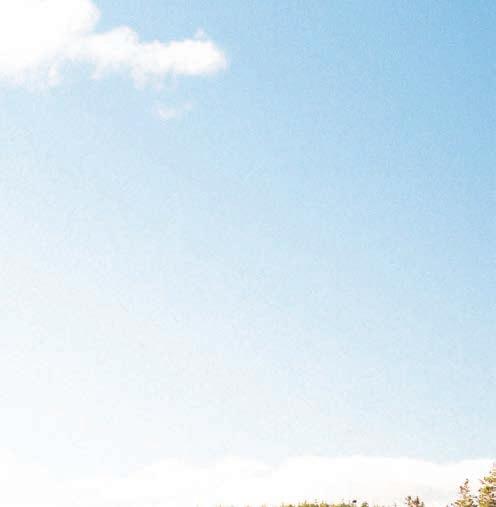

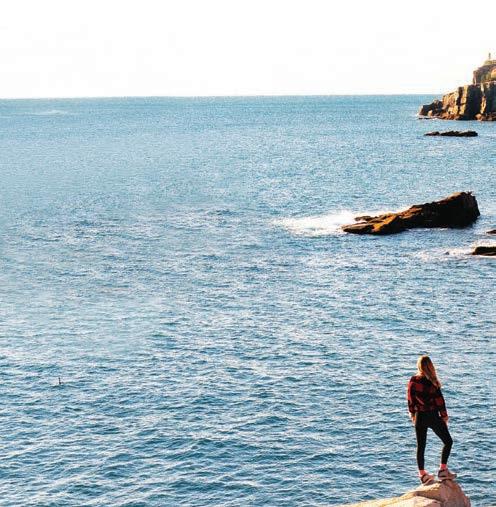

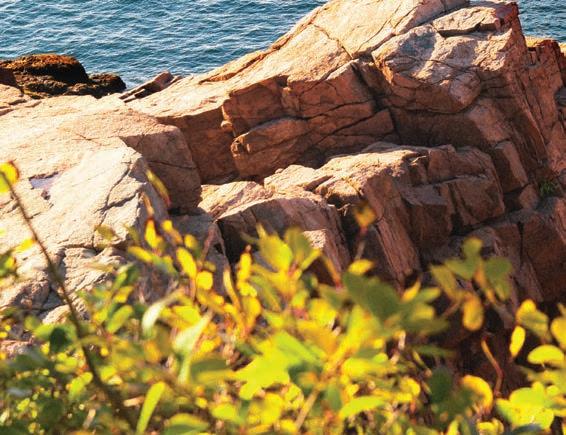


24 /// Ghost Story
How the stately Victorian mansion became the blueprint for haunted houses.
By Bruce Irving32 /// Open Studio
Vermont artisan Miranda Thomas crafts pottery that holds a world of expression.
 By Jenn Johnson
By Jenn Johnson
36 /// House for Sale
These turnkey properties can unlock anyone’s dream of luxury farmhouse living.
By Joe Bills40 /// The Great Pumpkin
Sweet and savory recipes showcase one of fall’s most versatile ingredients.
 By Amy Traverso
By Amy Traverso
46 /// In Season
A bit of garlic puts fresh autumn produce in a whole new light. By
Amy Traverso50 /// Weekend Away
New Hampshire’s beacon of summer, Lake Winnipesaukee, shines just as bright when the leaves turn. By
Richard Adams Carey58 /// The Best 5
Offering warm hospitality and glorious surroundings, these updated inns are ready for leaf peepers. By
 Kim Knox Beckius
Kim Knox Beckius
60 /// Refresher Course
The perfect pairing for a New England fall road trip: top-notch local breweries and cideries. Compiled by Bill Scheller
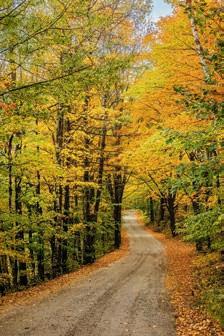
By Mel
AllenBy Ian Aldrich







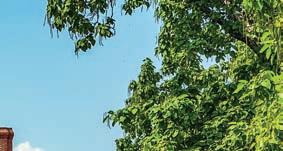
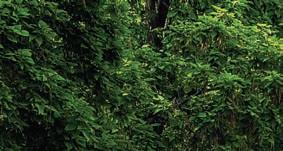
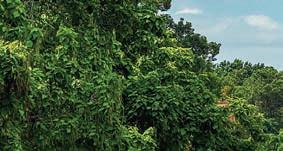
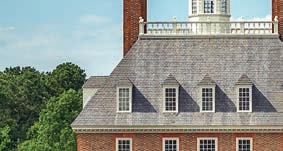
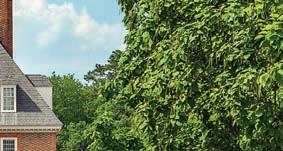

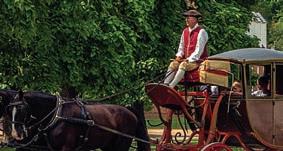

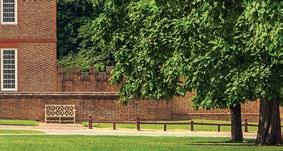
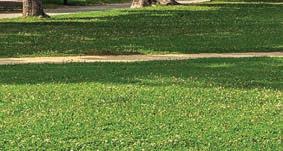




































 Freedom 375
Freedom 375
EDITORIAL
Editor Mel Allen
Managing Editor Jenn Johnson
Senior Features Editor Ian Aldrich
Senior Food Editor Amy Traverso
Senior Digital/Home Editor Aimee Tucker
Travel Editor Kim Knox Beckius
Associate Editor Joe Bills
Associate Digital Editor Katherine Keenan
Contributing Editors Sara Anne Donnelly, Annie Graves, Ben Hewitt, Rowan Jacobsen, Nina MacLaughlin, Julia Shipley
ART
Art Director Katharine Van Itallie
Photo Editor Heather Marcus
Contributing Photographers Adam DeTour, Megan Haley, Corey Hendrickson, Michael Piazza, Greta Rybus
PRODUCTION
Director David Ziarnowski
Manager Brian Johnson
Senior Artists Jennifer Freeman, Rachel Kipka
DIGITAL
Vice President Paul Belliveau Jr.
Senior Designer Amy O’Brien
Ecommerce Director Alan Henning
Marketing Specialists Holly Sanderson, Jessica Garcia
Email Marketing Specialist Eric Bailey
YANKEE PUBLISHING INC.
ESTABLISHED 1935 | AN EMPLOYEE-OWNED COMPANY
President Jamie Trowbridge
Vice Presidents Paul Belliveau Jr., Ernesto Burden, Judson D. Hale Jr., Brook Holmberg, Jennie Meister, Sherin Pierce
Editor Emeritus Judson D. Hale Sr.
CORPORATE STAFF
Vice President, Finance & Administration Jennie Meister
Human Resources Manager Beth Parenteau
Accounts Receivable/IT Coordinator Gail Bleakley
Assistant Controller Nancy Pfuntner
Accounting Coordinator Meg Hart-Smith
Executive Assistant Christine Tourgee
Maintenance Supervisor Mike Caron
Facilities Attendant Paul Langille
BOARD OF DIRECTORS
Ralph Carlton, Andrew Clurman, Daniel Hale, Judson D. Hale Jr., Renee Jordan, Joel Toner, Cor Trowbridge, Jamie Trowbridge
FOUNDERS
Robb and Beatrix Sagendorph
Publisher Brook Holmberg
ADVERTISING
Vice President Judson D. Hale Jr.
Media Account Managers Kelly Moores, Dean DeLuca , Steven Hall
Canada Account Manager Cynthia Fleming
Senior Production Coordinator Janet Selle
For advertising rates and information, call 800-736-1100, ext. 204, or go to NewEngland.com/adinfo.
MARKETING
ADVERTISING
Director Kate Hathaway Weeks
Senior Manager Valerie Lithgow
Specialist Holly Sloane
PUBLIC RELATIONS
Roslan & Associates Public Relations LLC 212-966-4600
NEWSSTAND
Vice President Sherin Pierce
NEWSSTAND CONSULTING
Linda Ruth, PSCS Consulting 603-924-4407
SUBSCRIPTION SERVICES
To subscribe, give a gift, or change your mailing address, or for any other questions, please contact our customer service department:
Yankee Magazine Customer Service
P.O. Box 37900 Boone, IA 50037-0900
Online NewEngland.com/contact-us
Email customerservice@yankeemagazine.com
Toll-free 800-288-4284
Yankee occasionally shares its mailing list with approved advertisers to promote products or services we think our readers will enjoy. If you do not wish to receive these offers, please contact us.
Yankee Publishing Inc., 1121 Main St., P.O. Box 520, Dublin, NH 03444 603-563-8111; editor@yankeepub.com

































































Want more Yankee? Visit our website, NewEngland.com, for more recipes, travel tips, and the latest foliage updates.






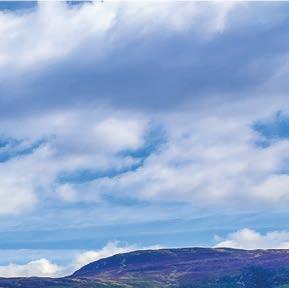
































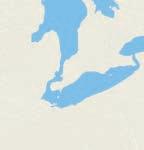
began my life at Yankee on October 1, 1979. The new October issue had just arrived at the homes of tens of thousands of readers. The cover showed a painting of a church with its white steeple pointing toward a blue sky mottled with white puffy clouds, and in the background is a forest filled with the colors that define autumn.
Since then, 44 autumns have come and gone, and now this issue celebrates my 45th. For all these years the question has always been: How does Yankee truly show a foliage season that is unequaled anywhere?

Sometimes I speak to the media about New England in autumn, and a phrase I often use is “this is our Mardi Gras”—a brief, intense time when visitors from all over arrive to be part of something unique, something that feels larger than ordinary life. But I am wrong to say that. Because Mardi Gras is created by people, its roots going back centuries and coated with religious symbolism. It does not really belong to everyone. But fall—these colors, the bracing air, the play of leaves falling into flowing rivers or reflected in tranquil lakes— that happens without us. We play no part except for awestruck observer.
The other day I sat in our office’s small library, where we keep every Yankee since the first one in September 1935. I wanted to see how our covers spoke about fall. Just in recent years: “Autumn Beauty,” “The Best Fall of All,” “The Most Scenic Drive of All,” “Autumn A to Z,” “Chasing Color,” “Fall Comes to the Hill Towns,” “Days of Wonder.” Each cover displayed the most beautiful, most beguiling image we could find. And still, as I turned the pages, year after year sliding by,
I realized we could never do it justice, really. Any more than we could capture the bite of an apple fresh from the orchard, or the sound of leaves underfoot in the forest, or—and this is the point—the look of a hillside in October after a morning rain, and the sun has come out and the color is something you feel and not just see. But we keep trying the impossible.
And looking through those old issues, I was again humbled to read what Ben Rice, then Yankee ’s editor, wrote in the October 1945 issue. To call it an issue is not quite right: The war had just ended. Paper was scarce. He had 12 pages, no photos. But he had something to say on his editor’s page about autumn and what he saw for these all-too-brief weeks, and it came from his heart and to me it has not been equaled. In these pages, we do our best to bring to life what Ben Rice felt, all those years past, about a time when the sounds of war had finally stilled and color slid across the hillsides, and what he saw then is what we see now:
The slow fire spreads from the blazing maples to the gold of the birches on our high slopes. The threat of winter is not yet upon the land, but rather a sense of awakening from the sultry bondage of summer—and the Red Gods call. The smell of burning leaves in the still dusk, the bells of night-wandering cattle, brittle limbs on enormous moons, mists aglow in the valleys— these and a hundred such will always be New England October. And to them even the dullest heart must make some answer.
Mel Allen editor@yankeepub.com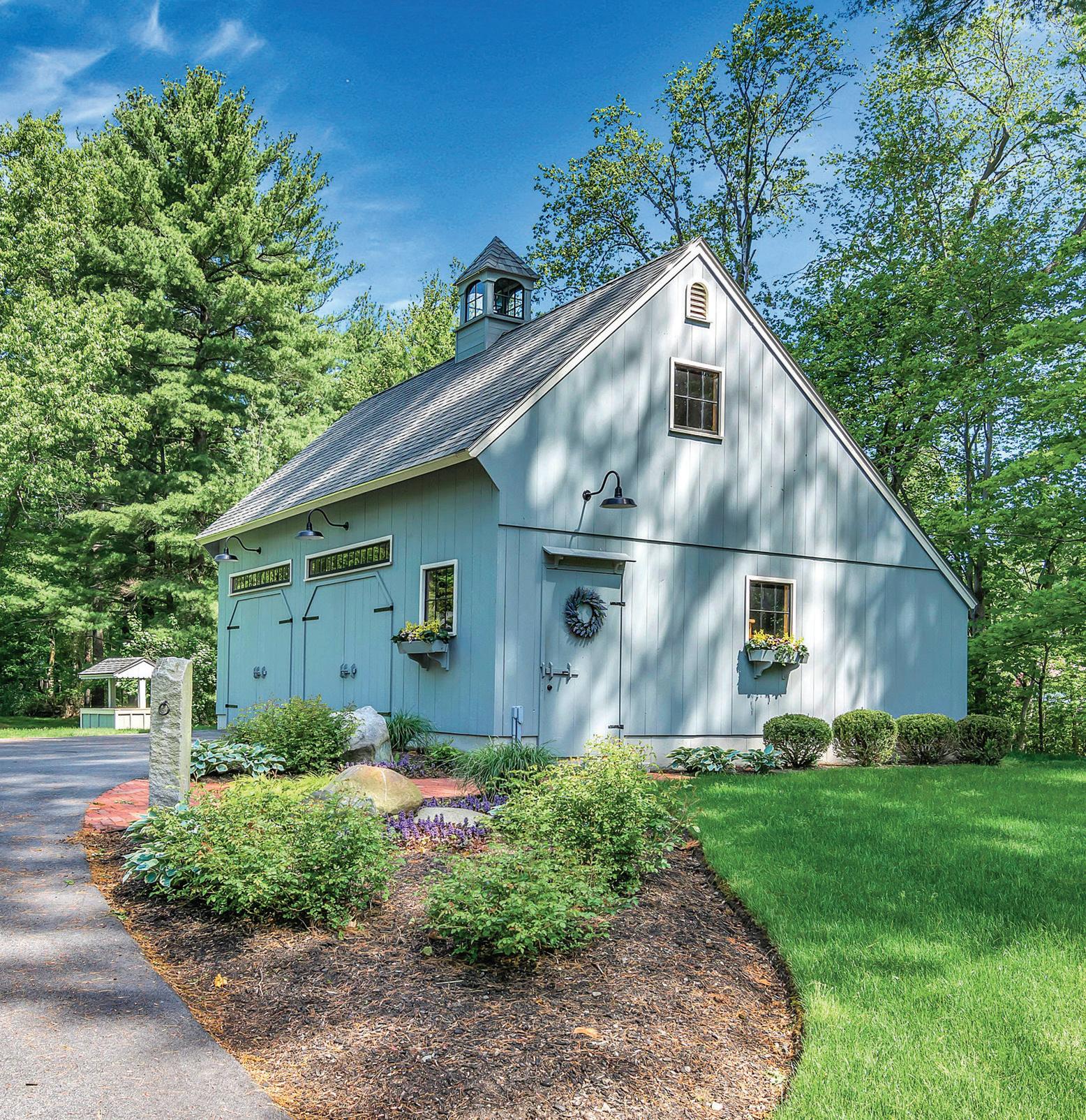

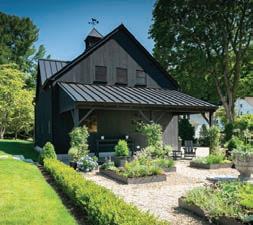

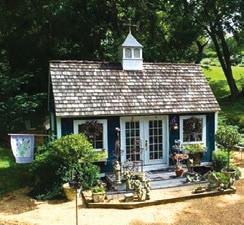


OLIVER PARINI
One highlight of Parini’s latest Yankee assignment [“Fall Comes to the Northeast Kingdom,” p. 64]: getting to meet fellow Vermont photographer Richard Brown. “He’s been an inspiration to me since I first picked up his book, Pictures from the Country: A Guide to Photographing Rural Life and Landscapes, as a budding photographer,” says Parini, whose images have been featured in The New York Times, AARP The Magazine, and The Wall Street Journal
NINA MACLAUGHLIN
“How did I not know about Hubbard Brook before?” marvels MacLaughlin, a Massachusetts-based author and Boston Globe books columnist [“These Tree Say So Much,” p. 82]. “Here is this mighty, buzzing, hugely important experimental forest, with scientists doing research of global importance, tucked into a swatch of woods in New Hampshire. I’m so glad I do know about it now, and glad I get to share some of it with Yankee readers.”
MICHAEL D. WILSON


After moving to Maine nearly a decade ago, this Chicagoarea native has amassed a photography portfolio filled with stunning New England travel images, including a celebration of Lake Winnipesaukee fall foliage for this issue [“Weekend Away,” p. 50]. The assignment not only “rekindled my joy for this particular time of year,” Wilson says, but also introduced him to Moulton Farm’s cider doughnuts—which he’s been thinking about ever since.
CASSANDRA KLOS

To bring visual life to the UFO feature “Are We Alone?” [p. 88], Yankee turned to Klos’s arresting photography project “The Abductees, 1961,” about the Betty and Barney Hill incident. The project aims to “provide an alternative visual library of what the Hills saw,” Klos explains. “The authenticity of a photograph creates a moment bound in truth, building a layer of validity to the Hills’ story that they did not receive during their lives.”
JOE BILLS

With a knack for covering the offbeat, Yankee’s associate editor has written about everything from Silly Putty to roadkill auctions to competitive lobster roll eating. In this issue, he takes readers on a tour of UFO history in New England [“Are We Alone?” p. 88]—which he describes as “trying to wrangle the incredible juxtaposition of sightings, science, and conspiracy theory that all comes smashing together around this subject into a single story.”
LISSA GOLDSTEIN
Interviewing local growers and food artisans for the photo essay “Market Value” [p. 76] was a natural fit for Goldstein, a Maryland native who became interested in farming at an early age. After spending her 20s working on farms in Alaska, California, and Oregon—not to mention British Columbia and Kenya—today she runs a small fruit and vegetable farm in upstate New York called Wild Work Farm with her partner, Steve Wyatt.
After Tropical Storm Irene hit Vermont in August 2011, uprooting countless lives and costing more than $800 million in property damage, the character of the state revealed itself to the world: resilient, rebuilding day by day, neighbor helping neighbor. And it was thought that since Irene was a once-ina-century event, the rivers would not rise that high, that quickly, again.
I write this in mid-July as we are going to press with Yankee ’s fall issue, which happens to celebrate the beauty of Vermont’s Northeast Kingdom. Just this week we have seen “once-in-a-century” devastation return to Vermont after only a dozen years. Photos and videos of the inundated capital, Montpelier, and of bridges washed out and roads like rivers, have touched the nation. But alongside these images, we see reports of Vermont undaunted. Already the largest road reconstruction effort in the state’s history is under way. Vermont will recover.
What this summer’s floods will mean for Vermont’s vital fall tourist season is still unclear (though Yankee ’s expert has some thoughts, below). But in the meantime, there are many ways to help our neighbors in the Green Mountain State. A good place to start is the Vermont Community Foundation, which has established a flood relief fund and compiled additional charitable and informational links on its website: vermontcf.org/vtfloodresponse.
 —Mel Allen
—Mel Allen
Looking back on Vermont’s fall color in the wake of Irene, Yankee foliage expert Jim Salge sees signs of hope for this year’s season. “The color was late in 2011,” he says, “but once the show got going, it was good as ever.” He believes that the rains that caused this summer’s flooding may even result in a longer color season. “Red swamp maples always turn earlier when their feet are wet, so they could start as soon as August this year. And on the later end, the foliage lasts longer on trees when there’s been no drought.” To see Salge’s seasonal reports and the rest of Yankee’s foliage coverage, go to newengland.com/fall-foliage.
Who says kids should have all the fun? At The Baldwin — an all-new Life Plan Community (CCRC) — we say this is your time. Make a splash in the pool. Dance, stretch, lift, and box in the tness center. Learn for the love of it. Take to the nearby trails, then top o your day at the local brewery. De ne life on your terms and do whatever you choose — whether that’s everything or nothing at all.

Opening fall 2023!
To learn more, call 603.404.6080 or visit TheBaldwinNH.org today.


My son Dan was born in late September 1985, on the day that Hurricane Gloria howled through southern New England, drenching us on its way north, leaving two million people without power. The windows of the small New Hampshire hospital were boarded up, and no light peeked through from the outside during my wife’s 20 hours of labor. (A nurse wondered if maybe the baby knew a hurricane was afoot.) I crushed ice and drizzled honey over it to keep us going, and then in the early afternoon, Dan’s first cries signaled the storm inside the room had ended. A week or two later, I carried him in the tiny pack I wore on my chest and walked through the tree-lined neighborhood where we lived. The leaves were so scarlet and yellow, it was as if you could breathe the color.
I scooped a handful of maple leaves and held them close to his eyes. This is fall, I said. You will never see it like this anywhere else. You will never forget it.

Dan lives now in Hawaii, and his younger brother, Josh, lives in Colorado. During their childhood they spent summers at a nature camp called Roots & Wings. Like many parents, I wanted them to spread their wings and reach for whatever and wherever their hearts took them. I just never expected it to be so distant.
We had over 20 autumns together, and now nearly as many apart. I think about fall with my boys when the leaves begin to change color seemingly overnight, and then after a couple of weeks, a few fall, then more, and then a cascade, drifting down in their twirling dance, draping the yard. We would rake together in the cool
air, the mounds of leaves becoming a playground, their dog, Scout, leaping in with them. Now when I rake, I drag dozens of acorns along with the leaves. For the chipmunks that dart across the grass, this is takeout service. Many mornings I enter the woodshed to find their hoard tucked between pieces of wood, hidden in corners, filling their pantry against the coming cold.
I think about fall with my boys when the black walnuts drop with a thud in the backyard. The walnuts are green and look like limes; their scent is akin to citrus, and when I scoop them by the dozens to take to the composting heap at the recycling center, my hands are fragrant with walnut. The small stone wall that separates the backyard from the church parking lot next door is littered with broken shells, the aftermath of red squirrel picnics, as if the animals had been shelling peanuts at a ballgame.
Because Dan’s birthday is in late September, every year I send him a gift of home in a box. I buy a quart of maple syrup and a hunk of cheddar and bars of local chocolate, and I lay them on a layer of newly fallen leaves as if they were wrapping paper. My sons’ generation does not hold on to nostalgia and sentiment the way mine does.
I know autumn is a paradox. We love it even more because it is so fleeting. We hold it close, and then it is gone, the trees bare and brown. “A time of good-byes,” my wife once said.
As I write this, I remember a walk after a storm when I carried my son against my chest and showed him flaming red leaves and said, You will never see it like this anywhere else. You will never forget it. It goes so fast, and one day becomes 38 years.
Remember, I remind myself, look at the leaves while they hold on.




For fifteen minutes, for a half hour — sun, orange-yellow-gold — breaks horizon in the East. Light sweeps across hundreds of miles of ocean to strike our shores. The amber light begins to return color to the land as the sun rises. The sun melts the shadows, warms the air, chases fog away, and makes dew drops on spider webs sparkle, then vanish, of course there is darkness six, eight, ten hours while we sleep, dreaming, tossing, turning, reaching for our lover, trusting we are safe, and that a new day will come again. Orange, yellow citrine is pure magic and the promise of a new day.




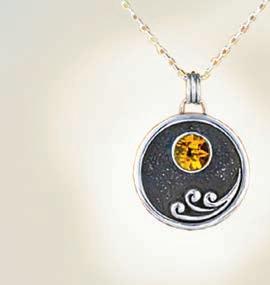



farewell to summer with a plunge into New England’s premier whitewater rafting scene.

 BY IAN ALDRICH
BY IAN ALDRICH
We were a good 10 miles into our pad dle on Maine’s Kennebec River when we decided to abandon ship … sort of. It was really more like departing with aban don. The big rapids were in the rearview mir ror, and before us lay a stretch of calm waters that invited a swim. A couple from Portland were the first to leap in, the boyfriend whoop ing as he plunged underwater repeatedly. That was the only invitation needed for my 11-yearold son, who did his best cannonball, then stretched back in his life jacket to allow the slow currents to float him a good 100 yards from our raft. Now it was my turn.
“What are you waiting for?” my son called out. It was a fair question. I ran a hand through the water, then looked over at our guide, Will Bastian, who from his perch on the back of the raft gave me a grin and a You’re gonna regret it if you don’t jump in expression. A few seconds later, I was floating toward my son. The water was unexpectedly warm in early September, while around us the first tinges of autumn
color had begun to hit the shoreline’s hardwoods. For long stretches it felt as if we had the typically busy Kennebec all to ourselves.
Surprises like that, in fact, framed much of our four-hour trip on the river that morning. We had surfed rapids with names like Big Mama, White Washer, and Taster. We’d stopped at Dead Stream Falls and took turns
sitting behind a rushing flow of water. We’d yelled and laughed, even when it felt as if the whitewater might consume us. And we’d lingered on our backs in the lower river, soaking in what was sure to be the last bit of true summerlike weather.
There are other areas of the Northeast where you can go whitewater rafting, but

nothing truly compares to what you find in Maine. The sport got its start here after the last log drives in 1976, and in the nearly half century since, it has given rise to one of the elite whitewater rafting centers in the United States. The advantages are clear: Maine boasts more whitewater than the rest of New England and New York combined, and on account of

scheduled dam releases, it’s also the only state in the Northeast with guaranteed water flows every day. That means consistent paddling from spring all the way into autumn, when foliage is at its peak.
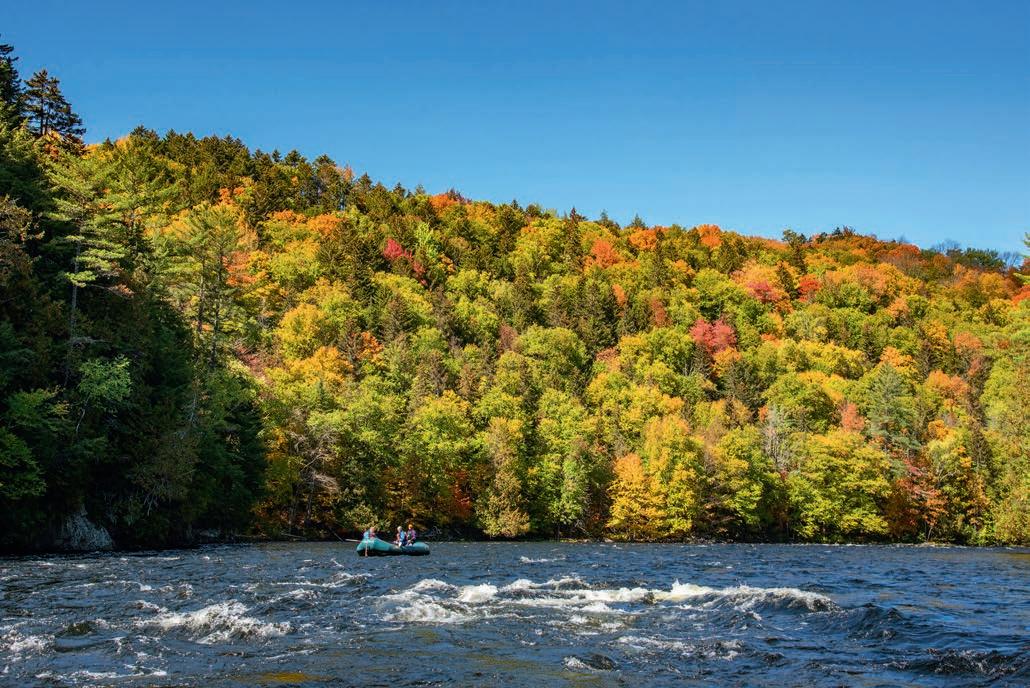
Much of that fun is based out of The Forks, which sits at the intersection of the Dead and Kennebec rivers. As such, there are seemingly almost as many guides and rafting operators in the region as pine trees. Our outfit was Three Rivers Whitewater, which first started leading trips in 1997 and today boasts a campus that includes a big restaurant and a store, as well as a spread of cabins and tent sites that are within earshot of the rushing Kennebec.
Rafting, of course, is not a passive endeavor. And if you’ve got the right guide it only feels as though you’re riding the edge. In Bastian, a burly Long Islander who found his real home on Maine’s rivers and ski slopes a decade ago, we had the perfect captain. From the moment we put in at the base of Harris Station, the state’s largest hydroelectric dam, we were thrust into the thick of it. Within the first quarter mile we navigated a mix of Class III and IV rapids. As
Bastian yelled out directions like “All ahead!” and “Hold on!” any nerves we had quickly dissipated as we dealt with what was right in front of us.
“We’ll get these families who come here, and it’s not an easy place to get to,” Bastian says afterward. “They’ve probably come some distance, and you can see it in their faces that some of them have really ventured outside their comfort zone. But then they get into it, they get through those first couple of rapids, and they are just beaming. They look and feel like a million bucks.”
That’s certainly how my son and I felt as we floated on the Kennebec on that early September morning. A blue sky hung overhead, and as the currents pushed us forward, we, too, felt part of a river that had powered so many before us.
Come along on a rafting trip down the Kennebec in season three of Weekends with Yankee , at newengland.com/waterwater-rafting, and find out how to watch the latest season of our show at weekendswithyankee.com.
Professionally guided excursions, many of them led by Registered Maine Guides, offer the best and safest way to explore Maine’s whitewater rafting scene. Here are some time-tested outfitters to try.
CRAB APPLE
WHITE WATER, The Forks; crabapple whitewater.com
MAGIC FALLS RAFTING CO., West Forks; magicfalls.com
MOXIE OUTDOOR ADVENTURES, The Forks; moxierafting.com
NEW ENGLAND OUTDOOR CENTER, Millinocket; neoc.com
NORTH COUNTRY RIVERS, Millinocket & Bingham; northcountryrivers.com
NORTHEAST
WHITE WATER, Shirley Mills; northeast whitewater.com
NORTHERN OUTDOORS, Millinocket & The Forks; northernoutdoors.com
THREE RIVERS
WHITE WATER, The Forks; threerivers whitewater.com


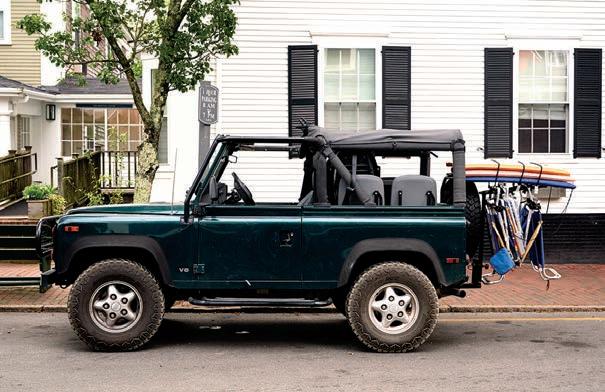

More than 40 years ago, a powerful dream came to Vermont sculpture artist Jim Sardonis. “I was standing on a beach looking out [at the ocean] and saw these two whales’ tails emerge from the water,” he recalled in a 2019 interview with Seven Days. “I woke up thinking, I’d like to make that.”
It was a dream Sardonis simply couldn’t shake. He envisioned it as the centerpiece of a proposed project for a museum in Anchorage, Alaska, but as things turned out, it would be in his own hometown of Randolph that the whale tails first came to life.
Sardonis was commissioned to create a grand entrance piece for a planned conference center on a patch of Randolph farmland overlooking Interstate
89. While construction on the center never commenced, Sardonis’s sculpture of two massive whale tails, standing about 13 feet tall and carved from 36 tons of African black granite, was installed on the site in 1989.
Named Reverence, the sculpture of two whales diving into the Vermont landscape was meant to be a symbol of Earth’s environmental fragility. Its grand scale, however, also made it a local landmark—and Randolph residents felt a deep sense of ownership of the whale tails, even after they were sold in 1999 and relocated to a 177acre business park off I-89 in South Burlington.
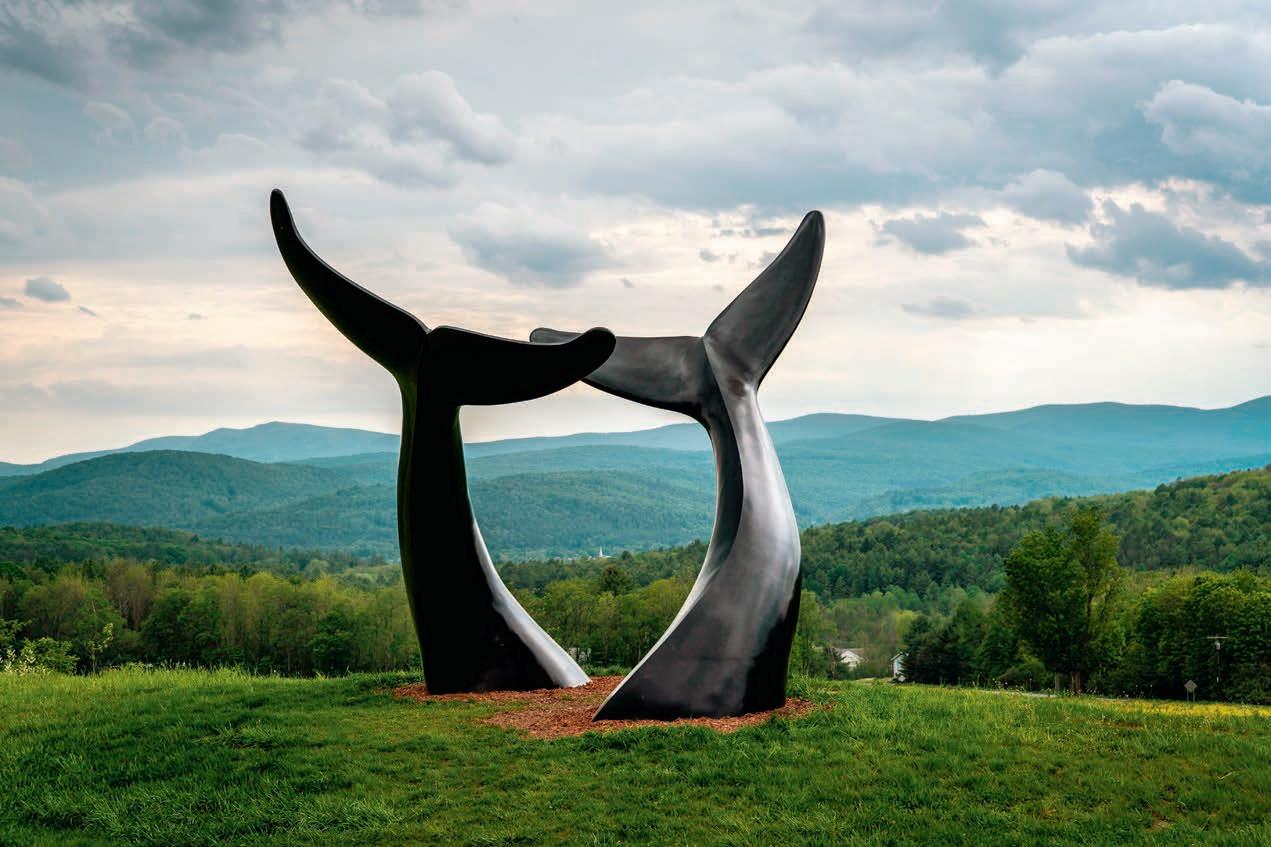
So it was with considerable fanfare that in 2017 the Preservation Trust of Vermont and the Vermont Community Foundation purchased the original site of Reverence and commissioned Sardonis to make his dream a reality once more.
Installed in July 2019, the 16-foot sculpture is the tallest piece ever completed by Sardonis, whose other work can be seen at such places as the New England Aquarium, Yale University, and Dartmouth-Hitchcock Medical Center. But unlike “Reverence,” this second version, called Whale Dance, is made of bronze. And in his view, that gives these whales a slight advantage over their South Burlington brethren.
“Bronze is strong, so I could make things bend and twist and lean a little more than I could with the stone,” he said. “I could make the whales dance.”
—Ian AldrichTo learn more about Jim Sardonis and to see a short documentary about “Whale Dance,” go to sardonis.com.
For years, drivers on I-89 in Vermont have pulled over to marvel at a sculptor’s outsize environmental vision.ALEXANDER ROYCE/ALAMY STOCK PHOTO Call it double vision: Vermont is home to not one but two massive whale-themed sculptures by Jim Sardonis, the most recent being Whale Dance [SHOWN AT LEFT] in the artist’s hometown of Randolph.
take






Bridge

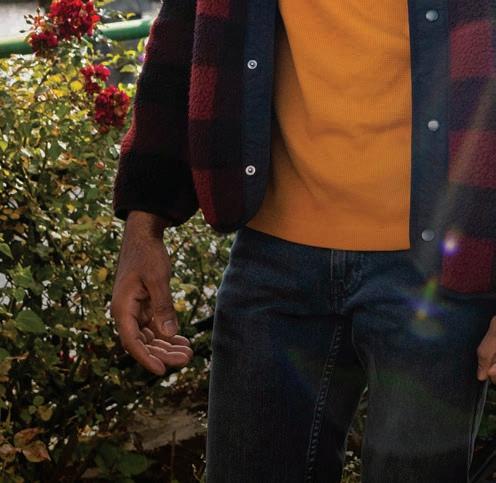
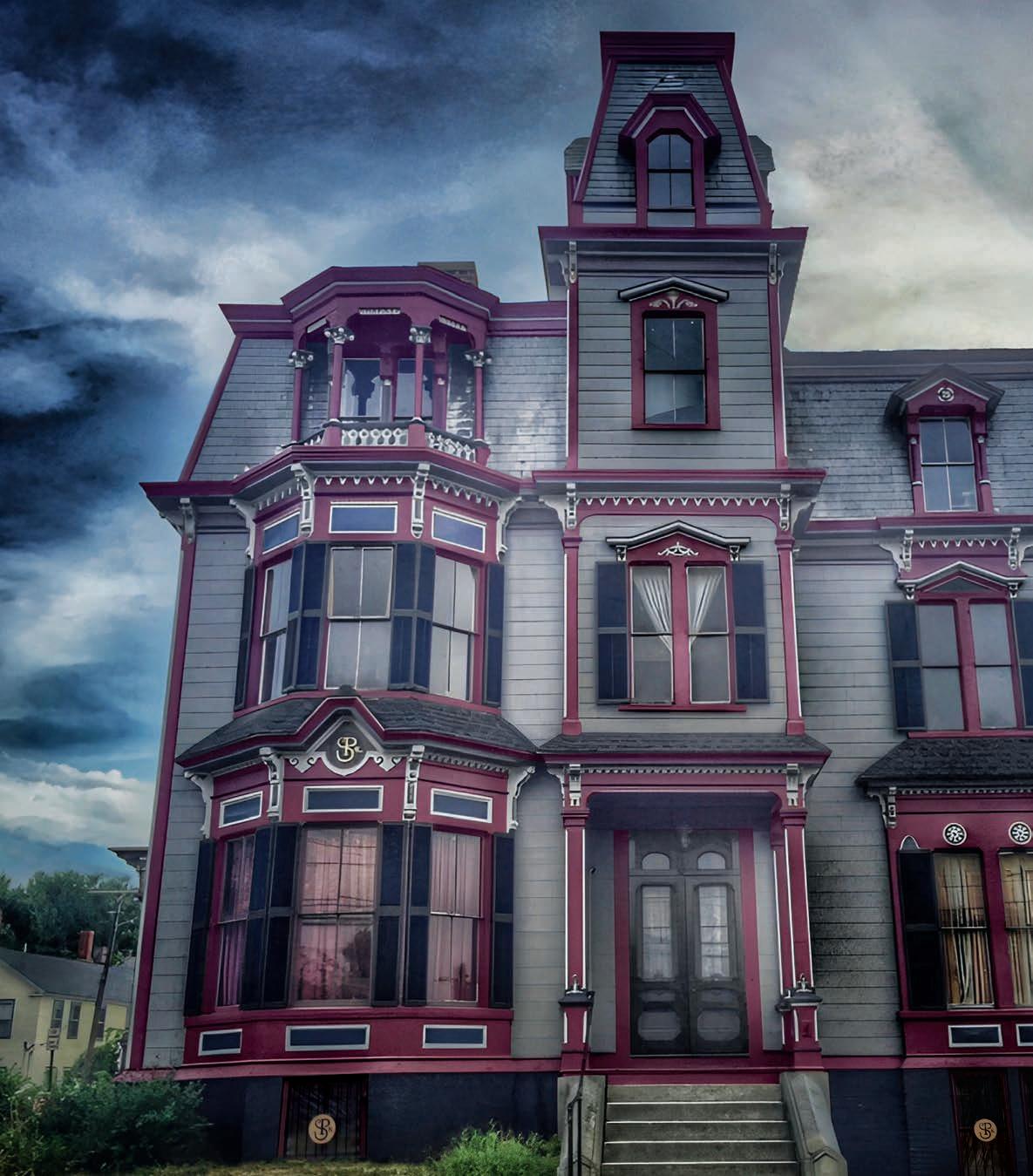
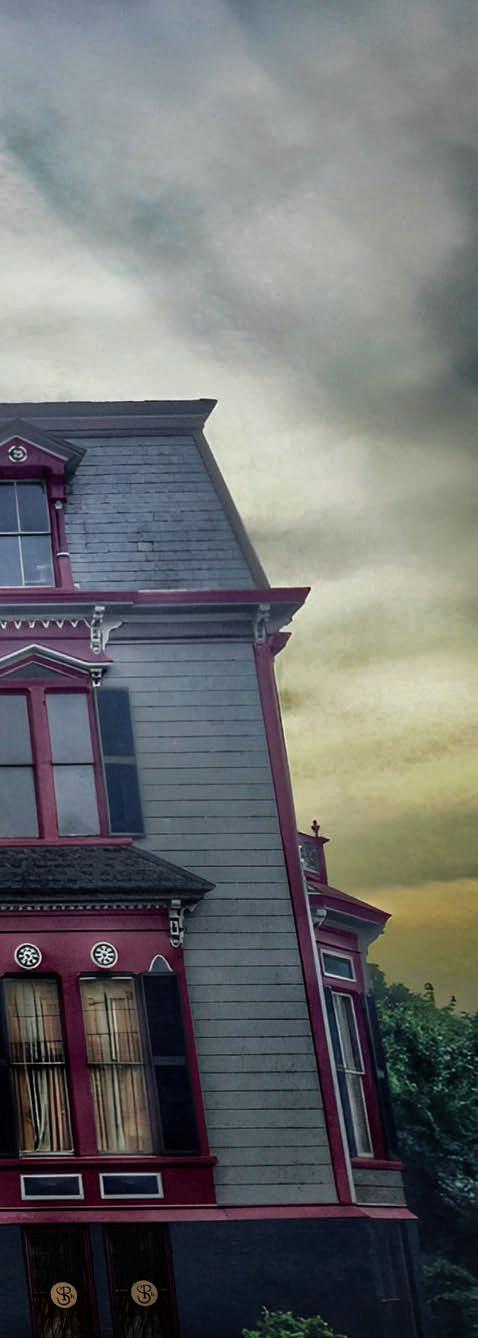 BY BRUCE IRVING
BY BRUCE IRVING
guarantee that if I asked you to close your eyes and imagine a haunted house, you’d see a Victorian of some sort. Not a cozy little Cape, not an elegant Federal, not a cookie-cutter ranch, but a decaying, turreted, looming Victorian manse.
Why? How did this archetype work itself into the American imagination so thoroughly?
The genesis of the spooky Victorian is an amalgam of technology, fortunes made and lost, fashion, home repair, and the grip of art and popular entertainment on the public mind. The story is at times conjectural, full of generalizations though occasionally specific, and, like the architecture itself, fascinating.
The middle of the 19th century saw an unprecedented growth of industry: Factories cranked out increasingly sophisticated goods, the marketplace encouraged innovation and rewarded the latest-and-greatest, and railroads expanded across the land to deliver
all the new goods. The availability of machine-cut, standard-dimension lumber and wire nails to hold it together brought huge changes to American architecture and construction.
Whereas heavy timber frames once necessitated simple, boxy forms for all but the most opulent structures, this new lightweight “stick” framing eased the construction of corners, making all sorts of overhangs, bays, porches, and other exuberances possible. The availability of factory-made doors and windows, casings, trim, decorative spindles and fretwork, and even roofing and siding meant that the building palette was broader than ever before.
So what to build? As more and more people amassed wealth in the gangbuster capitalist economy, many sought to display it—and what bigger way than through a house? Architects, once a rarity, rose up in their (usually threenamed, always male) multitude, promulgating the latest style, often with European historical roots, that allowed their clients to announce their arrival.
Many were inspired by Andrew Jackson Downing’s 1842 Cottage Residences , one of the first books to endorse several different architectural forms, each with different antecedents—Greek Revival, Gothic Revival,
Italianate—opening the way for a kind of what’s-next mindset in architecture that mirrored the “new and improved” approach of the factories.
Soon enough came the Queen Anne and the Stick styles, with some Tudors, Egyptians, Orientals, and octagons thrown in, and the mansarded Second Empire, straight from the fashionable boulevards of Paris. They were built to be impressive, with tall asymmetric exteriors, towers and wings and off-center porches, and multiple special-function rooms that reflected the social formality of the era. Interiors dripped dark wood paneling and elaborate moldings. In nearly all cases, lavish display overshadowed strict historical precedent, the better to show off what was now technically possible, to take advantage of all the products available,
and, not incidentally, to outshine the Joneses’ place across town.
But fashion has a tortured twin and—over time and through a variety of economic booms and busts—many of these exuberant homes became, alas, unfashionable. In some cases they symbolized past excess; in others, the money that built them evaporated. Often, the times and the occupants simply moved on.
Perhaps there was a fatal flaw lurking in their very facades all along. Aristotle believed that “the chief forms of beauty are order and symmetry,” something borne out in modern research. Interviewed about her 1999 book Survival of the Prettiest, Harvard psychology professor Nancy Etcoff said that regardless of culture or ethnicity, “the more symmetry a body has, the more attractive it is. We find
something ‘wrong’ with even slight asymmetries.” If that’s true, it’s understandable that distaste and unease eventually worked their way into the public perception of Victorians.

And as every homeowner knows, miss a few maintenance cycles and you’ll be sorry. Any lack of upkeep on Victorians—with their vast expanses of articulated wood and abundant corners and seams courting rot and leaks— quickly drags the structures down the road to decrepitude. And if, God forbid, an occupant had not moved on but continued to live in such a decaying pile at the edge of town, its formal gardens now gone to seed … well, therein was a recipe ripe for the baking.
In a delightful online article on the haunted nature of Victorian houses, Archipanic.com describes how the
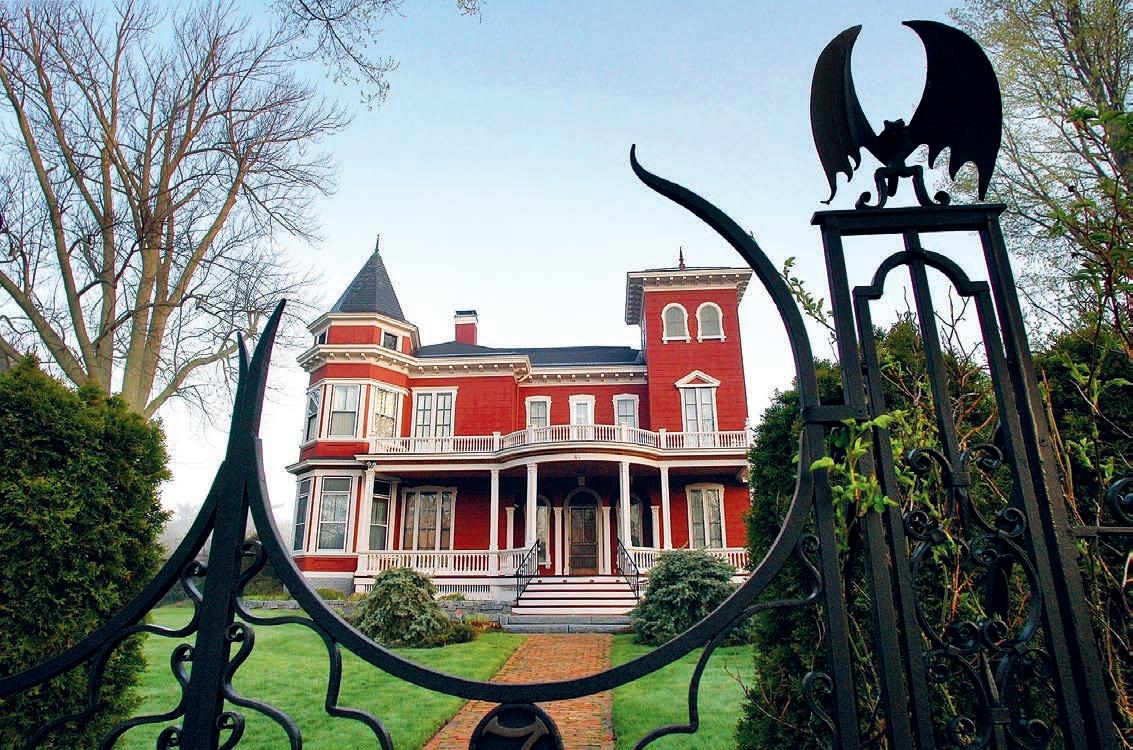
There are things we feel around us. Crisp air. Warm sunlight. A cozy sweater. And then there are things we feel within us. Curiosity. Exhilaration. Belonging. This is the place to savor the beauty around you. Reawaken your senses, right here in Maine.










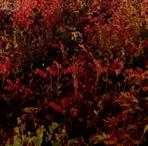
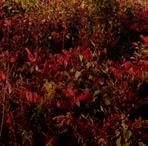





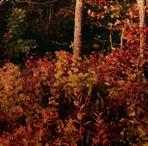


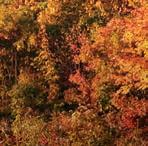





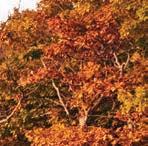
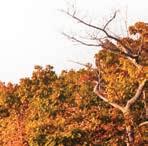
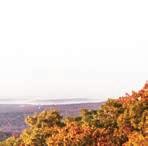
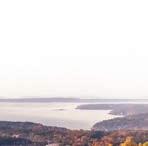




















 Mount Battie
Peaks-Kenny State Park
Scratch to release the scent of Maine.
Mount Battie
Peaks-Kenny State Park
Scratch to release the scent of Maine.
style went “from a symbol of wealth to a symbol of dread.” An early intimation of disquiet came in Edward Hopper’s 1925 painting House by the Railroad , depicting a lonely, eerie, turreted Second Empire in Haverstraw, New York. The great photographer Walker Evans did a series on Victorian houses starting in 1930, including a pair of Gothic Revivals firmly in the grip of desuetude in Dorchester, Massachusetts. In 1938, New Yorker cartoonist Charles Addams published the first view of what would become the Addams Family: a creepy couple being pitched by a vacuum cleaner salesman in the gloomy receiving hall of their Victorian home.
After that, Hollywood and television took over. Starting with 1959’s House on Haunted Hill —which starred Vincent Price and, according to Archipanic.com, “features a mix and match of different styles, including 1890s narrow Victorian corridors, dark furniture, gas chandeliers, and sconces”— and continuing on through Psycho (1960), The Haunting (1963), Dark Shadows (1966), Beetlejuice (1988), It (2017), and season four of Netflix’s Stranger Things (2022), the screen has provided a steady diet of sinister Victorian backdrops. Heck, horror writer supreme Stephen King and his wife, Tabitha, lived for years in an
For those who prefer their Victorians without an overtly spooky vibe, the Park-McCullough Historic Governor’s Mansion in Vermont offers visitors a look inside one of New England’s best-preserved examples of that era, incorporating Second Empire, Gothic, and Italianate styles.
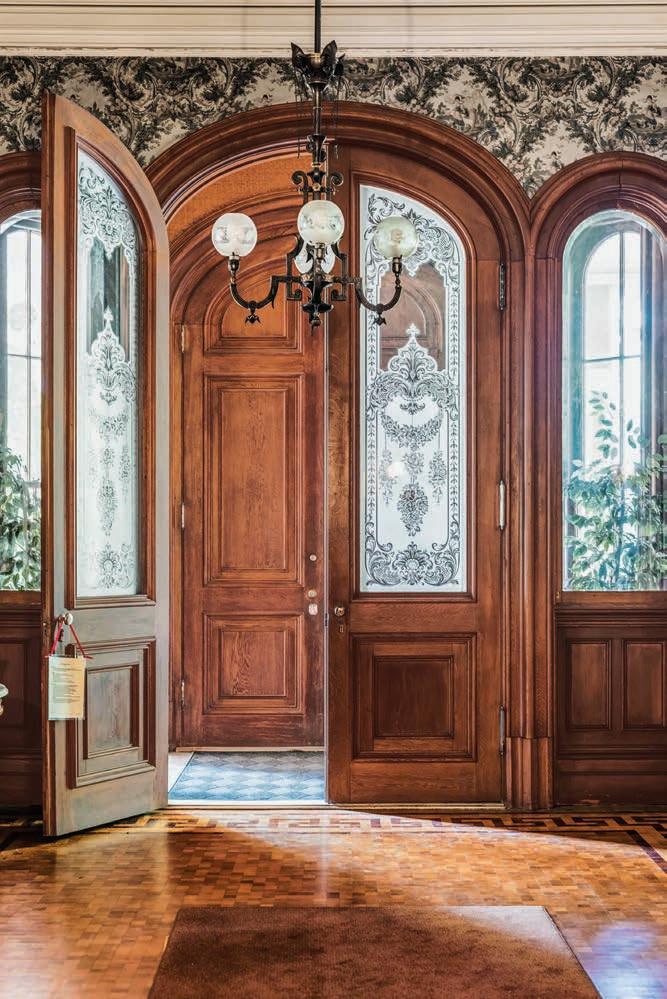
1858 Victorian in Bangor, Maine; they recently repurposed it to house their charitable foundation.
Of course, someone always has to zig when the culture is zagging. In 1979, public television’s This Old House debuted, taking on, as if out of central casting, a c. 1860 Second Empire slowly rotting on a hill in Boston’s Dorchester neighborhood. Over the course of 13 episodes, the crew brought it back to rehabilitated vibrancy, completely erasing its spooky ambiance.
But don’t despair! Those craving their fix of the macabre can head out to Gardner, Massachusetts, where an imposing 1875 Second Empire home, aka the “S.K. Pierce Haunted Victorian Mansion,” awaits. The building was purchased in 2015 by New Jersey dentist Robert Conti. He says the previous owner became convinced that his wife had been possessed by a spirit in the building and wanted to sell. “I learned about it on Facebook, noticed that it was zoned commercial, promised the sellers I’d keep it as original as possible, and bought it sight unseen,” says Conti.
Since it opened to the public in 2022, caretakers of the property have led hundreds of visitors on $25 60-minute tours of the mansion, and Conti is weighing the idea of hosting overnight guests (more than 3,000 are on the waiting list). The staff has counted a total of 14 different ghosts on-site; at least five people died in the house, the last being boarder Eino Sauri, a World War II vet who in 1963 died of smoke inhalation at age 49 when his mattress mysteriously caught fire.
“I wasn’t a believer when I bought the place,” Conti says, “but I definitely have smelled a whiff of smoke when I enter his room.”






EXTERIOR: Decorative belvederes (seen here), cupolas, or towers
ROOF: A low-pitched design with deep overhanging eaves with highly decorative cornices and brackets




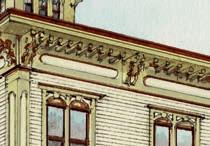







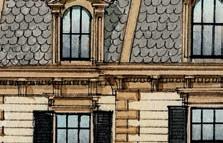







Channeling the romance of a rural Italian villa, the Italianate house leaves behind the rigid stuffiness of the past for a rambling and relaxed floor plan with the flair of a low-pitched roof, deep and decorative eaves, arched windows, and decorative cupolas for admiring the natural view.

Time Period: 1840–1885
Characteristics: Low-hipped roof, arched windows



Famous Example: Maine is home to two fine examples: Stephen King’s spooky Bangor residence and the house museum Victoria Mansion in Portland
Where to Find Italianate
WINDOWS: Tall and narrow, with rounded or arched tops

The Second Empire home is like a square Italianate that went to France and came back with a modern and stylish hat. The distinctive dualpitched hipped roof, named for 17th-century architect François Mansart, was enjoying a revival during the reign of Napoleon III (France’s Second Empire), which then spread across the Atlantic.
Time Period: 1855–1885
Defining Characteristic:




Mansard roof

Famous Example: Boston’s
Old City Hall and Providence
City Hall
Where to Find: Throughout the Northeast, as both residences and public buildings
PAINT: House and trim are two shades of the same color, with dark shutters




Homes: In established but still prosperous and growing cities along the northeast coast



ROOF: A classic dual-pitched mansard roof
EXTERIOR: Decorative details including cornices under the eaves and quoins at the corners
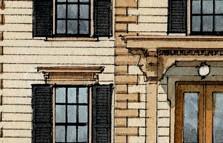
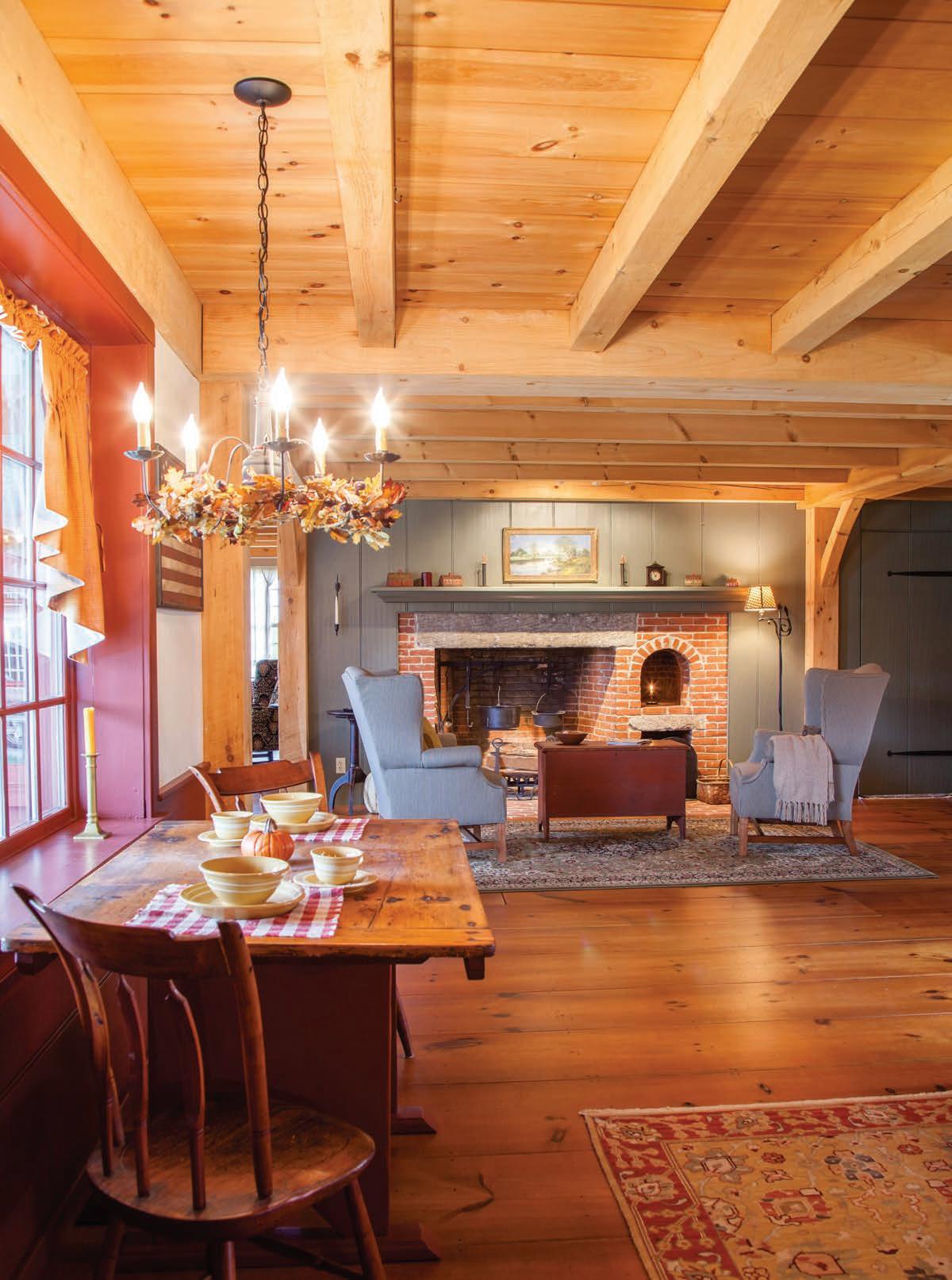
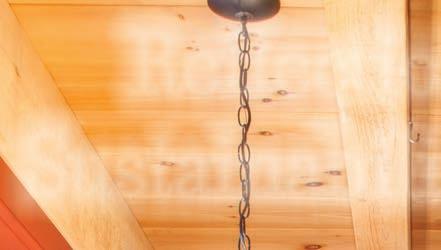
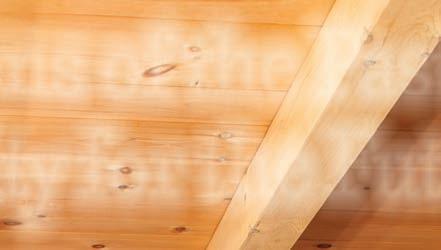
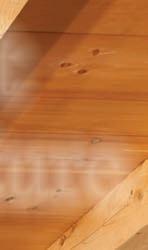




Miranda Thomas has a voice made for a good chat. There’s a com plexity to it, with vowels and inflections shaped by both her British parentage and her years spent living in Australia, England, Italy, and America. There’s a warmth, as well, that flows from her love of bring ing things into the world, be they children or gardens or works of art. It’s a voice of someone you could imagine welcoming into your home.
Her pottery has a voice, too. From the blue and white of the Netherlands to the lustrous gold of the Middle East, it carries the accent of many lands; at the same time, its techniques speak of centuries of human culture. But to really hear what it has to say, Thomas believes, you need to touch it.
“Imagine you have a mug, and you’re putting your lips to it or your hands to it or just sort of resting it against your cheek,” she says. “And if it’s been made by hand, you can feel those very slight variances in the surface. It’s just as if you’re having a conversation with it. It’s another form of your senses being coaxed alive.”
Making things by hand—and putting them directly into the hands of others—is a calling that Thomas has long shared with her husband, the furniture maker Charlie Shackleton. After having met at an art and design school in England, the two crossed paths again in Vermont, where they worked for the famed Irish artisan Simon Pearce. Before long they were married and working for
themselves, and today they preside over their joint workshops, ShackletonThomas, which has been headquartered in the same 19th-century mill building in Bridgewater for much of their company’s threedecade-plus history.
The couple’s mediums are different, but their designs are complementary—in the showroom, her quiet, elegant pottery sits alongside his classic wood furniture. And their point of view is a shared one.
“We both love putting life into an inanimate object,” Thomas says. “[Handcrafting] takes a particular sort of mixture of material, observation, skill, many things that culminate from your very hands, and it’s something the machine can’t do.
“There’s a famous saying, I’m pretty sure by Pascal: What is it that puts life into an inanimate object? For is that not what man is? And if you think about it, we’re the same as the rocks and the trees and everything around us, but there’s a little bit of magic that we instill [in the clay and the wood], and that’s what gives them life.”
Thomas first realized her affinity for pottery (which she affectionately calls “cooking with rocks”) when it was introduced at her high school in Australia. “It was the most surprising thing, at the age of 16, to look down and see a bowl just appearing underneath your hands,” she recalls. “I loved it immediately, like I loved surfing. So I just kept doing it.”
She honed her craft with a bachelor’s degree in ceramics as well as learning directly from master potters in

England, notably Michael Cardew. Thomas’s distinctive style emerged early on: strongly decorative but not ornate, with an emphasis on universal symbols of nature, like fish and rabbits, trees and flowers, painted or carved onto the clay.
Thomas was already well into making pottery under her own name—which she had begun doing in 1984—when she found herself taking commissions from, of all places, the White House. In 1998, on a whim, she had sent President Bill Clinton a “rudimentary, really simple little pot” as a gift in appreciation for the country’s recent and notably long stretch of peace. What came back was a thankyou note … and then a request for 16 turquoise and gold pots to be given to Middle Eastern dignitaries … and then a request for a very large white porcelain bowl carved with a peace dove design, to be Clinton’s personal gift to Pope John Paul II.


(About the Pope’s bowl: Because of the tight deadline, Thomas actually made six of them simultaneously in hopes that just one would sit absolutely true, its glaze pristine and incandescent. And just one did. As for the rest, she says, “President Clinton heard about the bowls that didn’t come out perfectly and he wanted them any -
way, because he felt he himself wasn’t perfect. And he gave some of those as gifts as well.”)
Thomas has had several other highlevel commissions since then, including bowls for the United Nations to present to Kofi Annan and Ban Ki-moon, but much of what she makes is meant for everyday people to use in everyday life. And for Thomas, her lasting legacy isn’t about who buys her pottery, anyway. It’s about the next generation who are working alongside her.
“We have this incredible flow of people across our workshops here who want to learn to be either craftsmen or designer craftsmen, and we’ve created a home or a sanctuary for them for a while,” she says. “When you
teach somebody skills, it’s like passing the torch. It’s a wonderful, wonderful thing. And human beings need those skills to be happy. So it’s the one thing I can do for the human race, I think. Working with people and working on those skills and sharing that language—it really places you on a long, long timeline.”
Editor’s note: Like many homes and businesses across Vermont, the historic mill building in Bridgewater that houses ShackletonThomas was flooded by record rainfall as this issue was going to press. As repairs continue, the web store featuring Miranda Thomas’s pottery and Charlie Shackleton’s furniture remains open for orders, via shackletonthomas.com.
For Thomas, her lasting legacy isn’t about who buys her pottery—it’s about the next generation whoare working alongside
her.LEFT: Work in progress on a bowl featuring slip carving, a technique that creates a raised design on the pottery. BELOW: Thomas’s hand-painted limitededition “Imbibe” beakers. BEN FLEISHMAN (POTTER); CLARA FLORIN (BEAKERS)

Harking back to simpler times, farmhouses speak to so much that we love. And while many farmhouses share some basic traits—coziness, functionality, and simplicity of design, all set on spacious acres—each becomes something unique to its place, a compounding of the virtues of the land to which it is inextricably connected. Today, farmhouses still beckon to us, even as they take on new, more upscale lives. Here are five contemporary variations on this classic theme, each ready for the growth of new roots.
Chatham, MA
Once a working farm of the Chatham Bars Inn, this extraordinary estate has been owned by the same family for more than 70 years. Nestled on a south-facing lot with stunning views of Oyster Pond and a mile-long stretch of the Oyster River, the main home, built in 2004, features plentiful windows, a finished basement, a two-car garage, a detached barn, and, best of all, an expansive wraparound deck perfect for watching birds, boats, and sunsets. Price: $9,995,000
• Square Feet: 1,786
• Acres:
1.44
• Bedrooms: 2
• Bathrooms: 2.5 (Rick Smith, Gibson Sotheby’s International Realty, 508-945-0000, rick.smith@sothebysrealty.com)
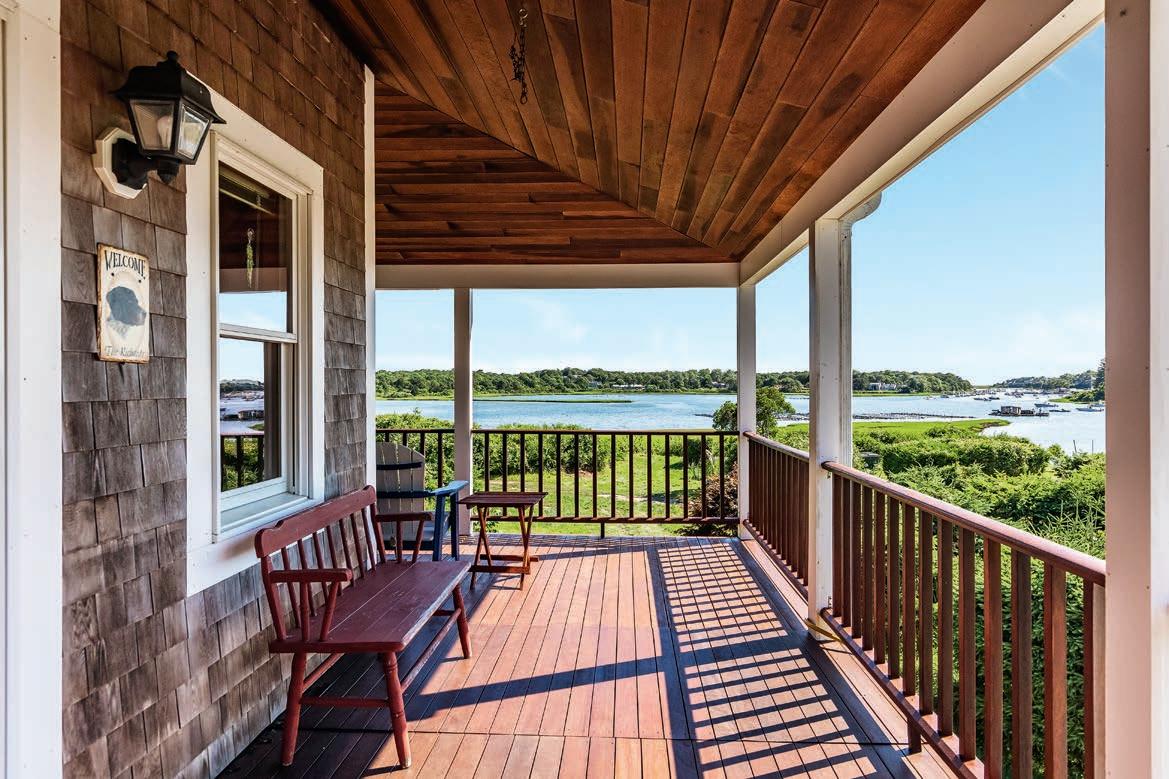
Turnkey properties that unlock your dream of agrarian elegance.









NOTHING Stops a DR ® Field & Brush Mower





• Up to 2X THE POWER of the competition
• CUT 3" BRUSH & tall eld grass with ease









• WIDEST SELECTION of deck sizes and features








• GO-ANYWHERE power steering and hydrostatic drive options


Devour Brush
Piles with a DR ® Chipper Shredder

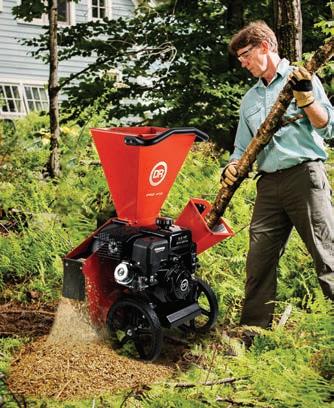
PLUS Tow-Behind, Commercial, and
• CHIP & SHRED with power to spare

• BIGGER ENGINES beat the competition
• BUILT USA TOUGH
Tow-Behind
• #1 in vacuum power and capacity
• NEW PRO MAX model holds up to 450 gallons
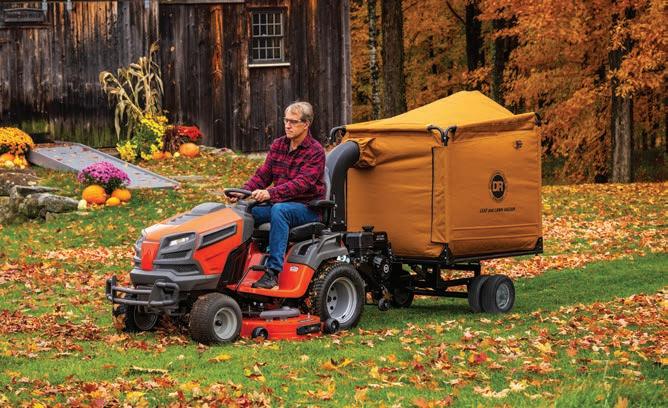
• All models newly redesigned with up to 20% more capacity




Walk-Behind
• NEW PILOT XT models ll paper leaf bags for curbside pickup


• Collects & mulches up to 50 lbs of leaves

• Includes onboard caddy for extra bags

IRON HORSE SALT FARM
77A Watsons Reach, Sullivan, ME
Is perfection attainable? This bucolic saltwater farm, with panoramic views of both Flanders Bay and the mountains of Acadia National Park, will make you a believer. The sunny four-bedroom farmhouse, which has been extensively remodeled, anchors a gated estate that includes a spacious barn with four horse stalls, an artist’s studio, a boathouse, and multiple garages, as well as the remnants of a seaside manor house. With plenty of space, a half mile of water frontage, and easy access to some of the most beautiful scenery in the world, the possibilities are endless. Price: $3,600,000 • Square Feet: 2674 • Acres: 53
• Bedrooms: 4 • Bathrooms: 3.5 (Jamie O’Keefe, Landvest Real Estate, 207-299-8732, jamieokeefe67@gmail.com)
LEWIS FARM
144 & 232 Town Farm Road, Woodstock, VT
This quintessential Vermont farmstead, which has been in the Lewis family since 1940, offers 130 acres of picturesque hayfields and woodlands along a Kedron Valley hillside near the village of South Woodstock. In addition to the three-bedroom brick farmhouse, the property features a spectacular restored barn, a light-filled twobedroom contemporary house, and a south-facing studio tucked into the hillside. There is also a pond, a riding ring, a tennis court, a smokehouse, and plenty of trails to explore. Price: $2,800,000
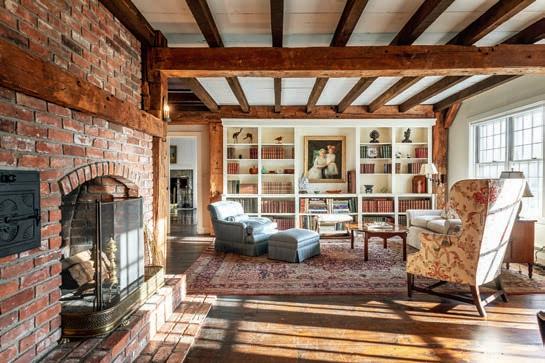
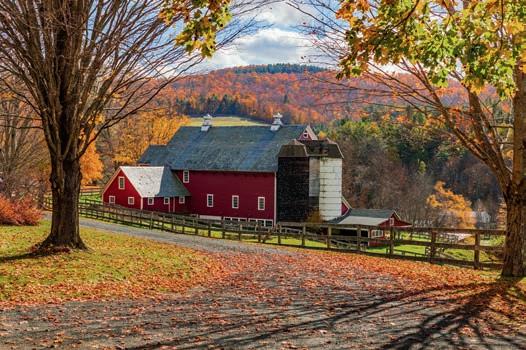
• Square Feet: 3,748 • Acres: 130 • Bedrooms: 8 • Bathrooms: 5 (Story Jenks, Landvest Real Estate, 802-238-1332, sjenks@landvest.com)
141 Shearer Road, Washington, CT
This converted dairy barn was relocated to its present location from New York state, but its exposed beams and natural woodwork might well have sprouted from this picturesque property, just an hour and a half from New York City. The farm’s four acres are beautifully landscaped with specimen trees and evergreens, and the land immediately adjacent is protected. The house’s spacious foyer features a grand fireplace, while the great room combines library, living, and dining spaces under a cathedral ceiling. There’s a fireplace in the master bedroom, too. Price: $1,950,000 • Square Feet: 3,146 • Acres: 4
• Bedrooms: 3 • Bathrooms: 2.5 (Maria Taylor, Klemm Real Estate, 860868-7313, ext. 126, mtaylor1800@aol.com)
72 Bartletts Landing Road, Mount Desert, ME

Owning this private saltwater farm on the “quiet side” of Mount Desert Island, overlooking Pretty Marsh Harbor, is a once-in-a-lifetime opportunity. The four-bedroom house, built in 1818, is surrounded by perennial gardens, acres of pasture, and a private shoreline. It boasts wide-plank floors, exposed timber rafters, and plenty of modern amenities cleverly worked in so as not to distract from its rustic charm. Still not convinced? Figure in a heated three-bay garage, an attached barn, and easy access to the wonders of Acadia National Park. Price: $6,295,000 • Square Feet: 3,123

• Acres: 12.28
• Bedrooms: 4 • Bathrooms: 3.5 (Marika Alexis Clark, Legacy Properties Sotheby’s International Realty, 207-780-8900, marika.clark@sothebysrealty.com)
A beloved Nantucket icon
Forrest Pirovano’s painting “Sankaty Head Light” shows a brick and granite cylindrical tower overlooking the ocean

The shoals off the eastern coast of Nantucket have a long history as a hazard to navigation. Sankaty Head Light, on the eastern shore of Nantucket Island was erected in 1849 as an aid to navigation. Situated high on a bluff just north of the town of Siasconset, this red and white striped lighthouse is visible 25 miles out to sea, flashing its light every 7.5 seconds. It was converted to electric in 1933 and fully automated in 1965. The lighthouse is owned by the US Coast Guard and managed by Sconset Trust. This beautiful limited-edition print of an original oil painting, individually numbered and signed by the artist captures the majestic appearance of this world-famous lighthouse.
This exquisite print is bordered by a museum-quality white-on-white double mat, measuring 11x14 inches. Framed in either a black or white 1½ inch deep wood frame, this limited-edition print measures 12¼x15¼ inches and is priced at only $149. Matted but unframed the price for this print is $109. Prices include shipping and packaging.

Forrest Pirovano is a Cape Cod artist. His paintings capture the picturesque landscape and seascapes of the Cape which have a universal appeal. His paintings often include the many antique wooden sailboats and picturesque lighthouses that are home to Cape Cod.
P.O. Box 1011 • Mashpee, MA 02649



Visit our studio in Mashpee Commons, Cape Cod
All major credit cards are welcome. Please send card name, card number, expiration date, code number & billing ZIP code. Checks are also accepted.…Or you can call Forrest at 781-858-3691.…Or you can pay through our website www.forrestcapecodpaintings.com

Sweet and savory recipes showcase one of fall’s most versatile ingredients.



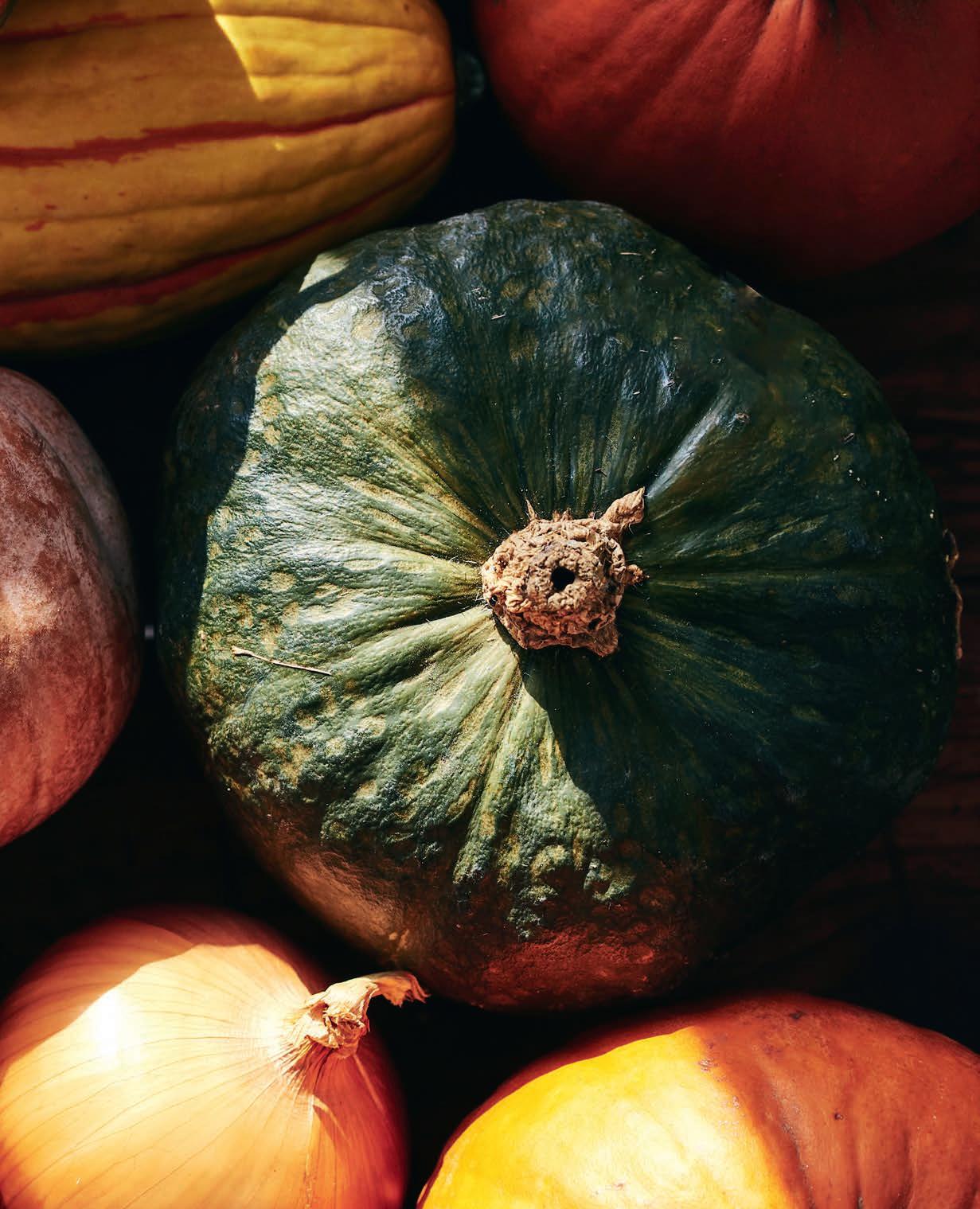 BY AMY TRAVERSO | PHOTOS BY KRISTIN TEIG & LIZ NEILY
BY AMY TRAVERSO | PHOTOS BY KRISTIN TEIG & LIZ NEILY

There are carving pumpkins and there are eating pumpkins and there are squashes that look and act like pumpkins and there’s pumpkin in a can. Most of us stick with the first kind for decorative purposes and the canned stuff for convenient cooking. But in the 300-plus identified pumpkin varieties >>


>> that are grown commercially in the U.S., there’s plenty more good eating to be had.
At the same time, I don’t like writing recipes with ingredients that you have to search high and low to find. The following dishes make ample use of pumpkin puree, which shows up in the cake bars, muffins, snickerdoodles, and chili, a hearty vegetable stew flavored with chili spices and garnished with avocado, sour cream, and cilantro. There’s also a recipe for roasted sugar pumpkin wedges, which are a tasty way to enjoy pumpkin in its prepureed form; you’ll find these edible pumpkins at many supermarkets and most farm stands. Plus, the pumpkin chili also makes delicious use of kabocha, a Japanese winter squash variety with wonderfully sweet, velvety flesh that is also available at most grocery stores. If you haven’t tried kabocha, you’re in for a treat: When cooked, the skin becomes so tender that you don’t even have to peel it. Happy pumpkin season!
For recipes, turn to p. 92




’m playing a bit with the seasonality of this column, because as any garlic grower knows, you harvest bulbs in the summer, not in the fall. But! Garlic takes a few weeks to cure, so homegrown cloves will be ready to eat right now. Also, fall is the season for planting garlic, which is just about the easiest thing you can do in a garden: Take a clove and stick it in the ground, let it overwinter, and watch the scapes come up in the spring. You do want to source your garlic cloves from a local farm, because the bulbs at the supermarket aren’t meant for our climate. And be sure to feed your soil with good compost, as garlic is a hungry plant. But that’s about all you have to do, so get out there and plant your own for next year.

Once you have some ripe garlic on hand, use it in the following recipes. Both are easy weeknight picks. One is a vegetarian take on shrimp scampi made with mushrooms, white beans, spinach, and lots of minced garlic. The other is a sheet pan supper with chicken thighs, cauliflower, shallots, and whole garlic bulbs that you trim and roast until caramelized. Serve the meal with a crispy baguette and smear those silky cloves on your bread. Heaven!

A bit of garlic puts fresh autumn produce in a whole new light.Mushroom, White Bean, and Spinach “Scampi,” recipe p. 48

Book





Earth has seven Blue zones. Seven places where people live longer with vim and vigor. A Blue Zone is not just about more time, it’s more time with a true quality of life. The Blue Zone mindset is about time for discovery, wisdom and work.


Blue Zones are not merely magic places on the globe. Rather, they are places with a population of people who believe in wellness, people who never stop thinking, participating or creating. They subscribe to a lifetime of art and imagination, a lifetime of discovery.
A Blue Zone is not just about place, although these places exist within our world. Blue Zone is really about attitude, belief and philosophy.Yes, it would be nice to live in a place where everyone lived a very long time. Blue Zone living is easier than you might imagine. It’s a decision you make, a decision that exists inside of you. It’s a shift of your consciousness.
Blue Topaz is an amazing gem. It occurs in various shades of blue. At Cross, we choose the prettiest shades of pastel blue, they are the colors in the middle. Our Blue Sky Topaz is the third hardest gem after diamond which means it’s highly resistant to scuffing and scratching. Blue Topaz has a high refractive index (jeweler talk) which means that when a gem is cut properly, it’s the most sparkly bright brilliant pastel blue gem in nature!
Your new Blue Topaz is with you every day to remind you of the guiding principles of what is truly important.



Blue is the color of health and well-being. Blue is the color of youth and vitality. Blue is the color of peace and happiness.
1 teaspoon kosher salt, plus more for the pasta water
1 pound linguine, uncooked
5 tablespoons olive oil, divided, plus more for drizzling
1 pound sliced white mushrooms, oyster mushrooms, or “baby bellas,” or a combination
5 ounces baby spinach
8 large garlic cloves, minced
½ teaspoon red pepper flakes
2 (15 ounce) cans cannellini or other white beans, rinsed and drained
1 cup vegetable or chicken stock
²⁄ 3 cup white wine
2 tablespoons lemon juice
5 thin lemon slices
Minced parsley and freshly grated Parmesan cheese, for garnish
Bring a large pot of water to a rolling boil. Add a palmful of kosher salt, then add the linguine and cook according to package instructions. After the pasta is cooked and drained, do not discard the cooking water.
Meanwhile, in a very large sauté pan over medium-high heat, warm 4 tablespoons olive oil, then add the mushrooms and 1 teaspoon salt. If adding all the mushrooms at once crowds your pan, cook them in batches (when the pan is crowded, the mushrooms will steam rather than brown).
Stir the mushrooms with the salt and oil, then let them cook, undisturbed, until browned on one side, 2 to 3 minutes. Stir, then cook until the mushrooms are browned all over, 2 to 3 minutes more. Remove the mushrooms with a slotted spoon and set them aside. Add the remaining 1 tablespoon oil to the pan, then add the spinach, garlic, and red pepper flakes. Cook, stirring often, until the spinach is wilted. Add the beans, stock, white wine, and lemon juice. Scrape the bottom of the pan with a wooden spoon to pick up any yummy browned bits.
Add the pasta to the sauté pan, along with ½ cup of the cooking water. Add the reserved mushrooms and lemon slices, and toss together in the pan. If the mixture seems dry, add more pasta water. Transfer the pasta to a serving bowl. Garnish with parsley, a generous shower of Parmesan, and a drizzle of olive oil. Yields 6 to 8 servings
ROASTED SHEET PAN CHICKEN WITH SHALLOTS AND GARLIC

2 large heads garlic
3½ tablespoons olive oil, divided
1 large head cauliflower, cut into 2-inch pieces and florets
12 medium to large shallots, peeled and quartered
2 teaspoons fresh thyme leaves, divided
1½ teaspoons kosher salt, divided, plus more for sprinkling
¾ teaspoon freshly ground black pepper, divided
4 large (or 6 medium) skin-on, bone-in chicken thighs
½ teaspoon garlic powder
Fresh thyme sprigs, for garnish Baguette, for serving
Preheat your oven to 425°F and set a rack to the middle position.
Trim the tops of the garlic heads just enough so that most of the bulbs are exposed, about ¼ inch. Set the bulbs on a piece of aluminum foil. Sprinkle with a pinch of salt and drizzle with ½ tablespoon olive oil. Wrap the garlic up with the foil, set on a large rimmed baking sheet, and transfer to the oven for 15 minutes.
Meanwhile, in a large bowl, toss the cauliflower and shallots with 2 tablespoons olive oil, 1 teaspoon thyme leaves, ¾ teaspoon kosher salt, and ½ teaspoon pepper.
When the garlic has cooked for 15 minutes, pull out the baking sheet and arrange the cauliflower mixture in a single layer on it. In the large bowl, toss the chicken with 1 tablespoon olive oil, 1 teaspoon thyme leaves, ¾ teaspoon kosher salt, ¼ teaspoon pepper, and the garlic powder. Nestle the chicken thighs, skin side up, among the cauliflower and shallots and return the tray to the oven. Bake until the thighs are browned and crisp and the cauliflower is nicely browned, 25 to 35 minutes, depending on the size of the thighs. Garnish with thyme sprigs and serve, giving everyone a few garlic cloves to squeeze out and spread on slices of baguette. Yields 4 servings.
Located along the Southern Maine coastline, our active, engaged community combines worry-free independent living with priority access to higher levels of on-site care—all for a predictable monthly fee.
Residents enjoy apartment, cottage, and estate home living in a community of friends, with all the benefits of Maine’s first and only nonprofit lifecare retirement community.
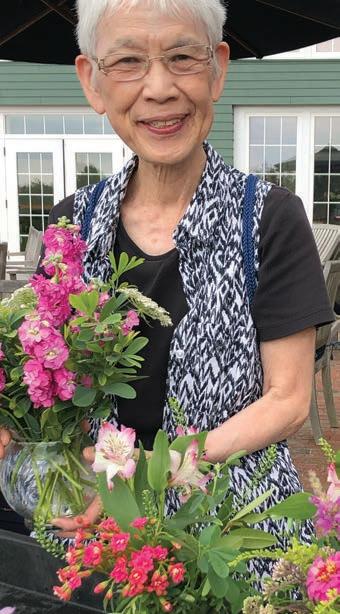
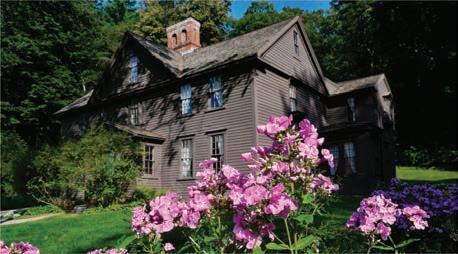
(207) 883-8700 • Toll Free (888) 333-8711 15 Piper Road, Scarborough, ME 04074 • www.pipershores.org


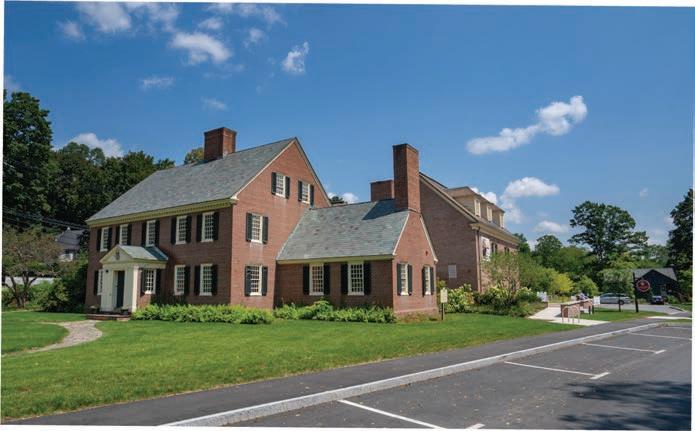
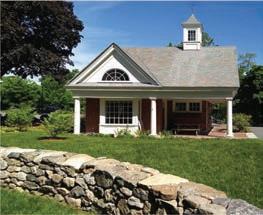


NEW HAMPSHIRE’S CLASSIC SUMMER GETAWAY SHINES JUST AS BRIGHT WHEN THE LEAVES TURN.


 BY RICHARD ADAMS CAREY • PHOTOS
BY RICHARD ADAMS CAREY • PHOTOS
 BY MICHAEL D. WILSON
BY MICHAEL D. WILSON
OPPOSITE, CLOCKWISE FROM TOP LEFT: The landmark 1950s-era Weirs Beach sign; the historic Busiel-Seeburg Mill in Laconia; exploring the corn maze at Meredith’s Moulton Farm; Shannon Pond at Castle in the Clouds; seasonal treats at Moulton Farm; the town dock in Center Harbor. THIS PAGE: Downtown Meredith takes on a rosy glow in the wake of an autumn thunderstorm.

But it never had to be summer for Lake Winnipesaukee to be a destination. Try it during New England’s fall foliage season, when all the local businesses are still bustling, and the vast lake and its surrounding mountains—the Belknap, Squam, Sandwich, and Ossipee ranges—are never more beautiful.

We’ll start in Wolfeboro, where Mitt Romney keeps a second home. Main Street runs the length of the waterfront, and if you stay at the Pickering House Inn on Main, you’ll find yourself in the newly—and immaculately—restored Federal home of Daniel Pickering, one of the town’s leading citizens in the 1800s. Innkeepers Peter and Patty Cooke offer gourmet breakfasts, sunny rooms that blend the historic and the contemporary, and a wraparound porch overlooking lush gardens, the campus of Brewster Academy, and Wolfeboro Bay.
A 10-minute stroll down Main brings us to Lydia’s Café, where the French toast comes heaped with tiny wild blueberries, sandwiched with cream cheese, and dolloped with whipped cream. Right next door is Made on Earth, a fair trade–certified boutique where naturalfiber women’s clothing is complemented by herb teas, scented smoke bundles, fine jewelry, and shelves of books on Eastern spirituality.
Through mid-October, the 205-foot M/S Mount Washington plies the lake daily between Wolfeboro, on the east shore—and past some of Winnipesaukee’s 300-plus islands—to Laconia’s Weirs Beach on the west. “The Weirs” once hosted a dance hall where the likes of Duke Ellington and Count Basie played; today its boardwalk hums with shops, restaurants, a tavern, a penny arcade, and the bumpbump of bumper cars.
In 1763, New Hampshire Governor John Wentworth built a summer home on the shores of a lake whose name—in one translation from the Abenaki— means “Smile of the Great Spirit.” That home was in the village of Wolfeboro, which on that basis claims the title of “The Oldest Summer Resort in America.”
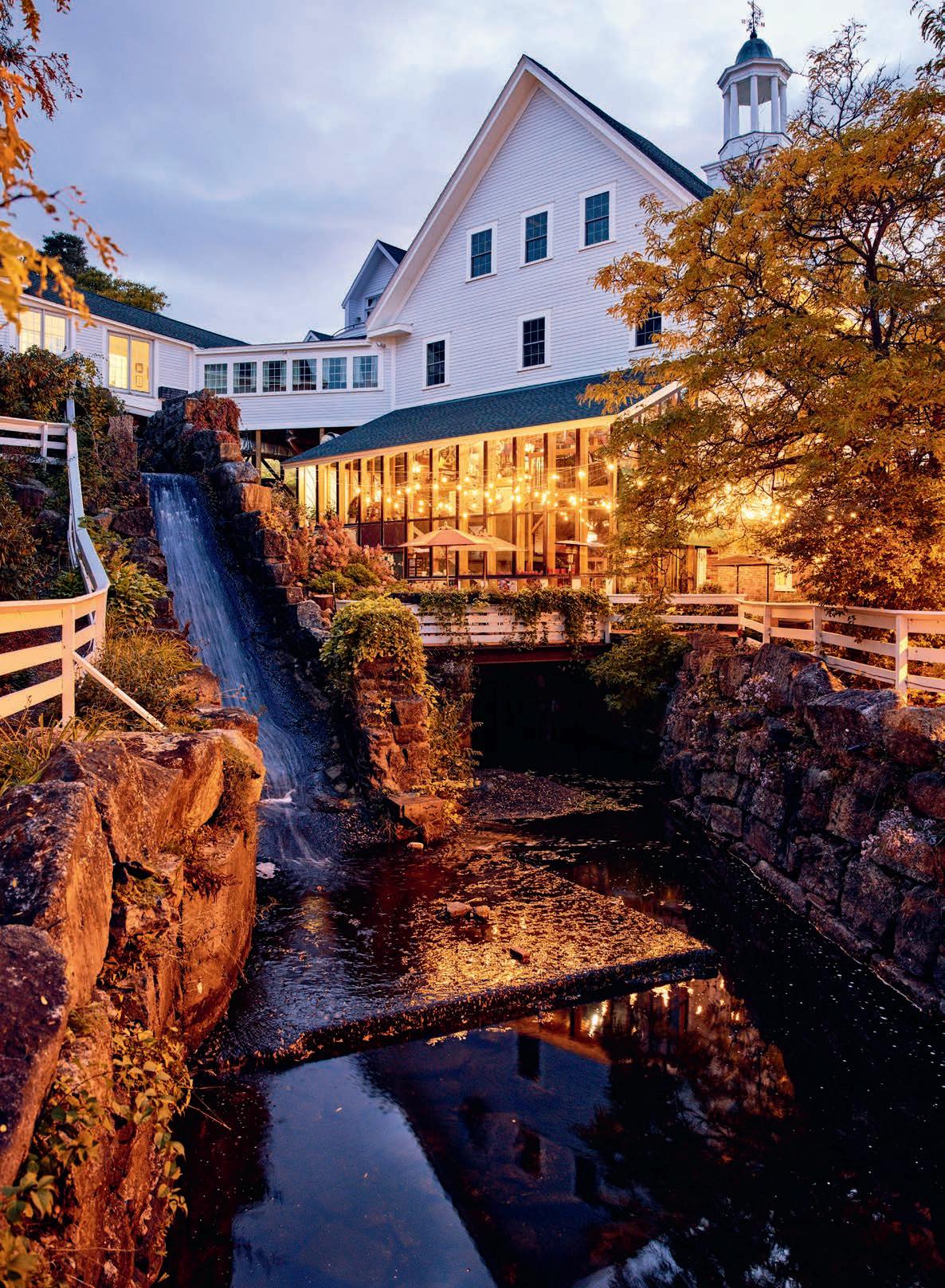
EAT & DRINK
Canoe, Center Harbor: Five dining areas and a threeseason porch with lake views to enjoy while tucking into lobster mac and cheese, among many other offerings. canoe centerharbor.com
Laconia Local Eatery, Laconia: Dogs are welcome at outside tables at this upscale farm-to-table establishment where all food (organic whenever possible) comes from within 140 miles. laconia localeatery.com
Lydia’s Café, Wolfeboro: A small café with an outsize following for its all-day breakfasts, especially pancakes and omelets, as well as lunch. Facebook Moulton Farm, Meredith: A garden center, a farm stand, a bakery, and an array of homemade foods to take home, all on land farmed since the 1890s. A corn maze and a pumpkin patch round out the all-in-one outing. moultonfarm.com
Trillium Farm to Table, Laconia: Supplied by nearly a dozen local farms and breweries and even a mustard maker, this Middle Eastern/ Mediterraneaninspired eatery is one of the prime lunch and dinner spots in the region. trilliumnh.com
Yum Yum Shop, Wolfeboro: A local bakery landmark for seven decades whose signature frosted gingerbread men, doughnuts, pastries,
OPPOSITE: Passengers congregate on the upper deck of the M/S Mount Washington as it prepares to cast off for a sightseeing cruise. THIS PAGE: The Marketplace at Mill Falls at the Lake, Meredith.If a proper car is handy, drive into Laconia for lunch at Trillium Farm to Table, a bright café that partners with local organic farms in its offerings. Wine, craft beers, and hard cider are available, but for a different take on a nonalcoholic fruit drink, try a cantaloupe shrub.

Your car will also prove handy for the 77-mile loop of roads around the lake and linking its towns. To the north of Laconia lies Meredith, where the League of N.H. Crafts-
men keeps a shop stocked with unique handwrought items made with as much artistry as craft. At the heart of the town lies Mill Falls, with its 40-foot waterfall and an elegant array of shops, restaurants, and lakeside lodgings. Keep going north on Route 25 to the Moulton Farm stand: sustainable agriculture, a corn maze and pumpkin patch, and apple cider doughnuts as light as croissants.
Center Harbor, at the lake’s north end, was a favorite haunt of poet and abolitionist John Greenleaf Whittier. It was also the site of America’s first intercollegiate sporting event: the Harvard-Yale regatta of 1852. Winnipesaukee is surrounded by excellent restaurants, but Canoe is my choice today—say yes to the lobster mac and cheese, or the sweetand-sour calamari—and is as lakeside as the Mount Washington . The Sutton family estate once dominated Center Harbor, and today the Suttons’ refurbished Victorian mansion is a homey B&B beautified by a Lisa Nelthropp mural of town history.
and ice cream have linked generations of sweet tooths. yumyumshop.com
Ames Farm Inn, Gilford: A low-key family resort on 135 acres on Winni’s southern shore, with its own quartermile beach. Open through Columbus Day Weekend. amesfarminn.com

Ballard House Inn, Meredith: At this c. 1784 inn, views of lake and mountains and homemade country breakfasts are enhanced with complimentary wine sipped while sitting on the backyard swing. ballardhouseinn.com
The Inn at Mill Falls, Meredith: Part of a cluster of four inns that helped revive Meredith as one of the main destinations in the Lakes Region, this one is dog-friendly, with designated doggie trails, pet beds, and a treat bag. millfalls.com/stay/ the-inn-at-mill-falls
Long Island Bridge Campground, Moultonborough: Sites for RVs, trailers, as well as pop-ups and tents within a stone’s throw of Winnipesaukee. Canoe and kayak rentals available. Open till midOctober. longisland bridgecampground nh.com
Pickering House Inn, Wolfeboro: A now-restored c. 1813 local landmark, this 10-room inn is made for sitting on the porch overlooking the bay. pickering housewolfeboro.com
Start your journey at the Lexington Visitors Center, now open daily. Check out our revolutionary history room and famed diorama, or shop for unique gifts. Book a Liberty Ride Trolley Tour or Guided Battle Green Walking Tour, and see where it all began on April 19, 1775.
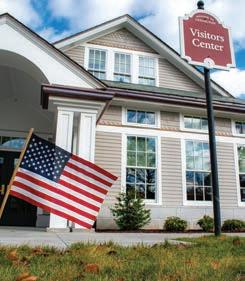



Tours are available seven days per week! All tours depart from the Lexington Visitors Center: 1875 Massachusetts Avenue, Lexington MA GIFT


To book a step-on guide and custom tour scan here

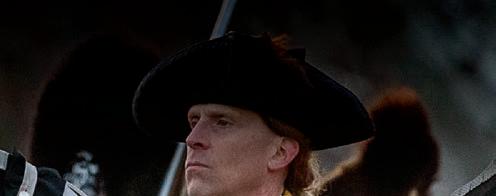
TourLexington.us


Add us to your summer itinerary, and prepare for adventure in the Greater Merrimack Valley! visit merrimackvalley.org

We begin to round back to Wolfeboro through Moultonborough, where the Old Country Store & Museum dates back to 1781. Its floor space and shelves are jam-packed with vintage and contemporary items recalling that name-it-we-got-it ethos of, well, old country stores. Then turn down Route 109 toward a jewel hidden high in the Ossipee Mountains: Castle in the Clouds, which began as Lucknow, a 6,300-acre estate and mansion—no, castle— built in 1913 by shoe magnate Thomas Plant. The builder eventually ran out of luck and went broke, but his restored home provides a window into the human spirit, a taste of a bygone opulence, and magnificent views south over the lake and north to the Sandwich Range. Maybe you prefer to go on foot to where bald eagles soar. Drive through Wolfeboro down to Alton Bay, the lake’s southern tip. Go four miles up Route 11 to the trailhead for Mount Major. A moderate, hour-and-fifteen hike will reward you with a vista no less stunning than Mr. Plant’s. You’ll know how he felt, because you might want to stay forever.

Sutton House B&B, Center Harbor: A pet-friendly Victorian mansion featuring nine guest rooms within a sixminute walk of Lake Winnipesaukee, which you’ll want to take after your sumptuous homemade breakfast. sutton-house.com
Wolfeboro Inn, Wolfeboro: The historic Wolfeboro Inn comes with its own private beach on Lake Winnipesaukee and a pub serving New England comfort food alongside upscale options and an extensive beer list. wolfeboroinn.com
PLAY
Castle in the Clouds, Moultonborough: Autumn is made for chasing views, and one of the best in the Lakes Region is seen from this c. 1914 mansion perched on a mountainside. Tour the estate, and stroll its miles of walking trails. Through October 22. castleintheclouds.org
Mount Major, Alton: The summit of the 1,786-foot mountain provides a stunning photo op—colorful forest, expansive lake, and islands—via a 1½-mile hike that suits everyone. forestsociety.org/ property/mountmajor-reservation
Mount Washington Cruises, Laconia: The M/S Mount Washington departs from Weirs Beach daily and offers a grand tour of Winni, stopping at five ports along the way. Sunset dinner and scenic specialty cruises. Through mid- October. cruisenh.com









Peterborough, NH
Chef-owner Carolyn Hough composes multicourse breakfasts like a jazz improvisationalist. The “notes”? All plucked from her garden and nearby farms. Come fall, homemade yogurt and granola might be followed by caramel-glazed apple hand pies and just-laid eggs topped with Swiss chard pesto. You’ll burn calories on trails that begin right from the 83 acres surrounding this exquisitely nurturing inn. Hike to Cranberry Meadow Pond, then on to the summit of Pack Monadnock. cranberrymeadowfarminn.com
The Old Mill Inn
Hatfield, MA
hospitality and glorious surroundings set these updated properties apart.
BY KIM KNOX BECKIUSs the leaves turn, we’re celebrating New England’s changing lodging landscape, too. These five inns have turned over a new leaf in the past few years—and if you stay at them all, it will be one epic fall-foliage journey.

Camden, ME
Stately trees in fiery fall dress are all that separate this 1886 castle from the sea. Step through the doors and you’ll want to applaud, even if Brett Haynie isn’t singing by the baby grand. His eye for posh, exuberant style and architect owner Will Tims’s desire to preserve this landmark while injecting it with contemporary personality
have transformed The Norumbega into a place ready for its next century. Five of the 11 rooms have fireplaces. norumbegainn.com
Waitsfield, VT
The gentleness here exceeds the sum of the parts assembled by innkeepers Mick and Karen Rookwood, with an assist from Mother Nature. Set on 20 acres, with front-door access to mountain biking and hiking trails that plunge into the Mad River Valley’s bright-hued woodlands, this is a place to feel cared for—from sunup’s elaborate, hyperlocal breakfast until bedtime, when you collapse into a feathery cloud. featherbedinn.com
Arriving after dark? You’ll still be dazzled by color. Not the fall foliage— that can wait until morning, when you sit on the reconstructed covered porch with locally roasted coffee and a secretrecipe biscuit (a specialty the café sells out of daily). At night, sapphire-blue spotlights illuminate the waterfall that once powered this 19th-century mill. It’s a white-noise machine now, ensuring sound sleep for those in riverside rooms. oldmillinn.us
The Kent Collection
Kent, CT
A decade-plus after Yankee named the sophisticated rural town of Kent best for leaf peeping, the Kent Collection’s Garden Cottages, Victorian, and Firefly Inn make this an even more attractive autumn home base. Waterfall and covered bridge photo ops, a scenic stretch of the Appalachian Trail, and the state’s best farm-to-table dining are close at hand, but returning to the spaces co-owner Lulu McPhee has designed, with an eye for both architectural preservation and modern aesthetics, may be your favorite thing of all. kentcollection.com
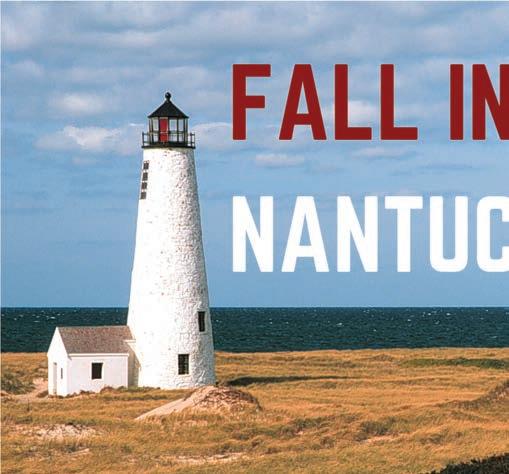



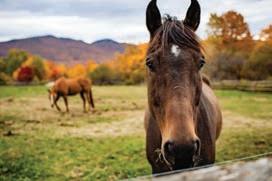


Local breweries and cideries pair perfectly with a fall road trip in New England—here are 40-plus favorites to get you started.
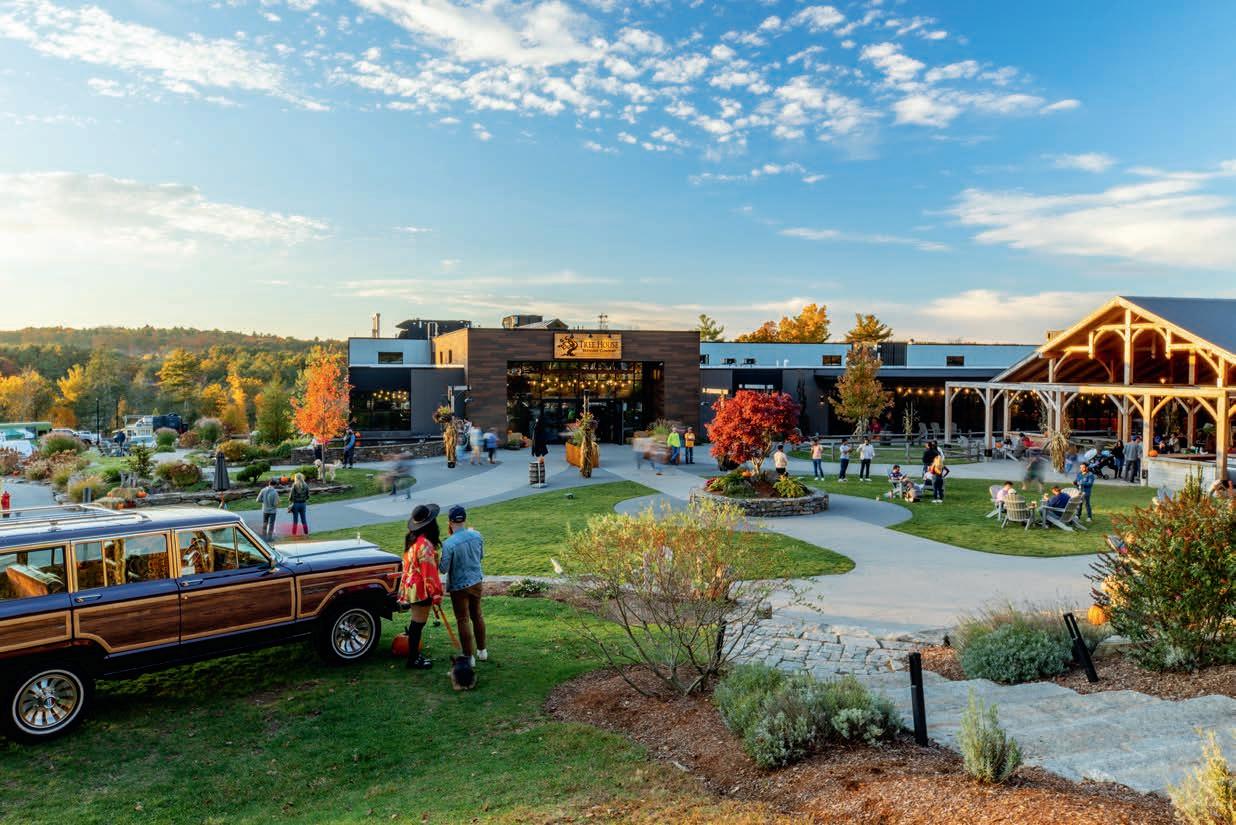 COMPILED BY BILL SCHELLER
COMPILED BY BILL SCHELLER
ANONYMOUS BREWING, Rowley. There’s micro, nano … and hypernano, which is how Anonymous describes its size ranking in the indie beer world. The North Shore outfit runs a one-barrel brewhouse and keeps its offerings simple and straightforward: single and double IPAs, British ales, and lagers, plus occasional limited editions. The kid-and-dogfriendly taproom (they keep dog biscuits on hand) occupies a rehabbed car-repair shop hung with work by local artists. anonbrew.com
BARRINGTON BREWERY, Great Barrington. This is the home of solar-brewed beer, with PV panels powering the operation. The beer list skews British, with brown ale, stout, and porter, although there’s more than a nod to the citrusy IPAs New Englanders crave. Unlike many bar food–oriented breweries, Barrington offers full lunch and dinner menus, with locally sourced meats and homemade desserts, and a cheddar ale soup that’s sourced, of course, on the spot. barringtonbrewery.net
CAPE COD BEER, Hyannis. The year-round beer garden (indoors in winter) showcases an impressive variety of brews. Tradition is
the watchword here, with all the hallowed bases covered—blond and red ales, IPAs, porter and stout, hefeweizen—though perker-uppers like chilies and coffee make an occasional appearance. A BBQ food truck, along with Dollar Wing Thursdays and Fish Fry Fridays, helps keep patrons off a strictly liquid diet, and there’s plenty of live music. capecodbeer.com
CARR’S CIDER HOUSE, Hadle y. Cider isn’t the half of it at this Pioneer Valley orchard and cidery, which produces hard and soft versions but also supplies apples
(Continued on p. 98)
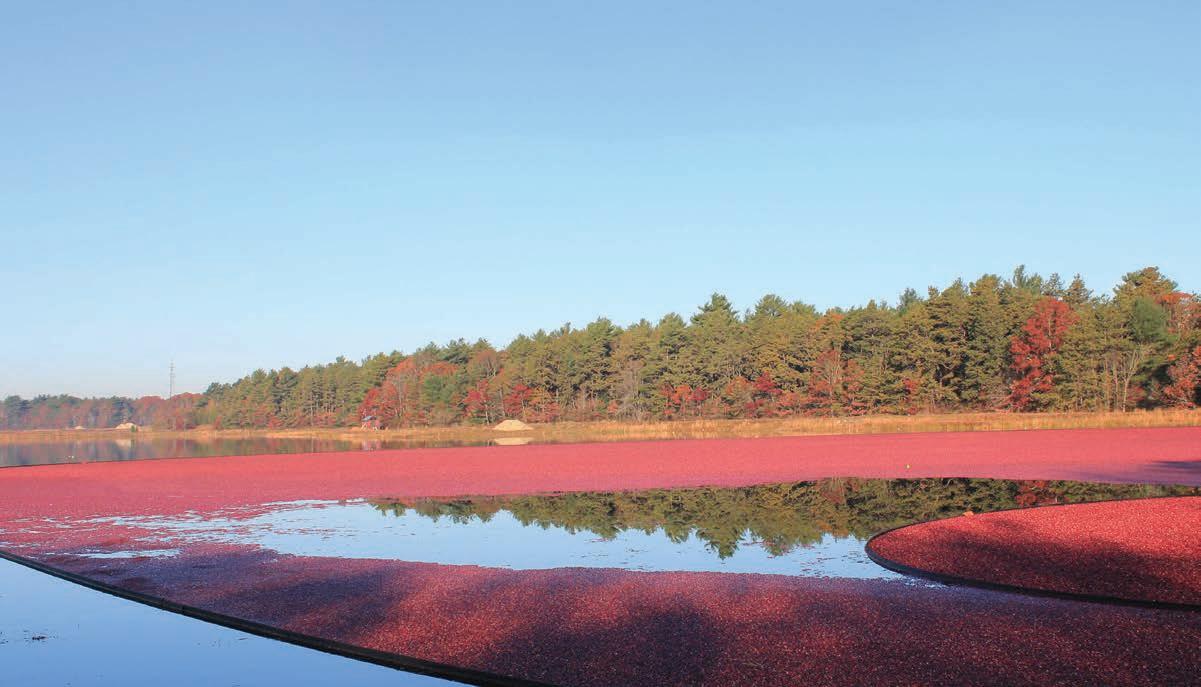













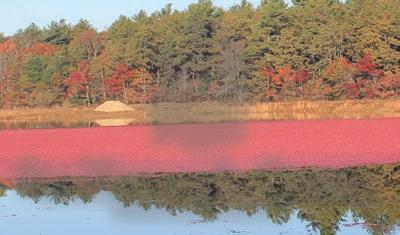
























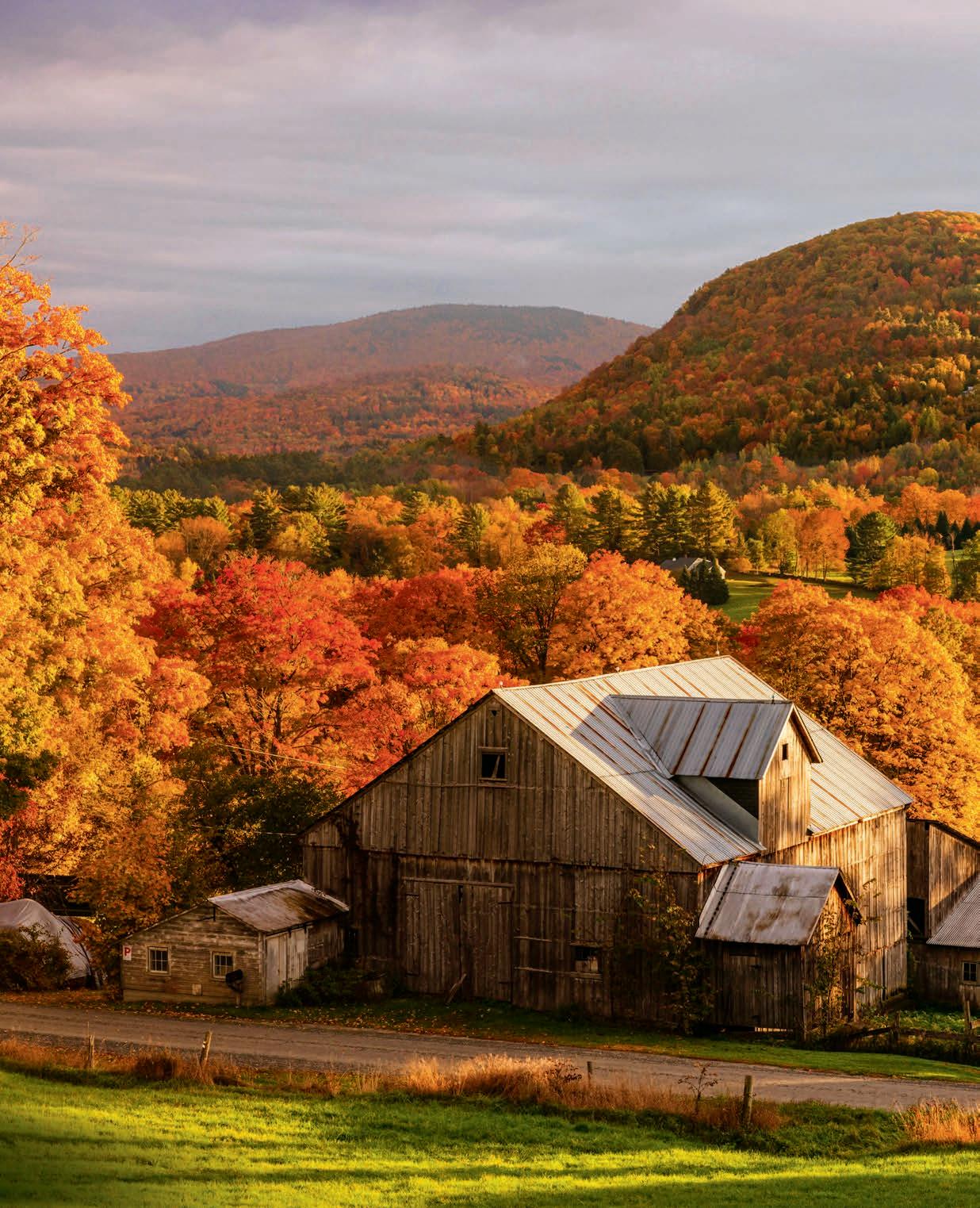
 BY BILL SCHELLER | PHOTOS BY OLIVER PARINI
BY BILL SCHELLER | PHOTOS BY OLIVER PARINI
tI’ve always liked to take what I think of as my “back road” into the Northeast Kingdom, Vermont’s Vermont, hunkered hard against New Hampshire and Quebec. It starts when you turn off Route 100, just south of Lake Eden, and climb into high country on East Hill Road.
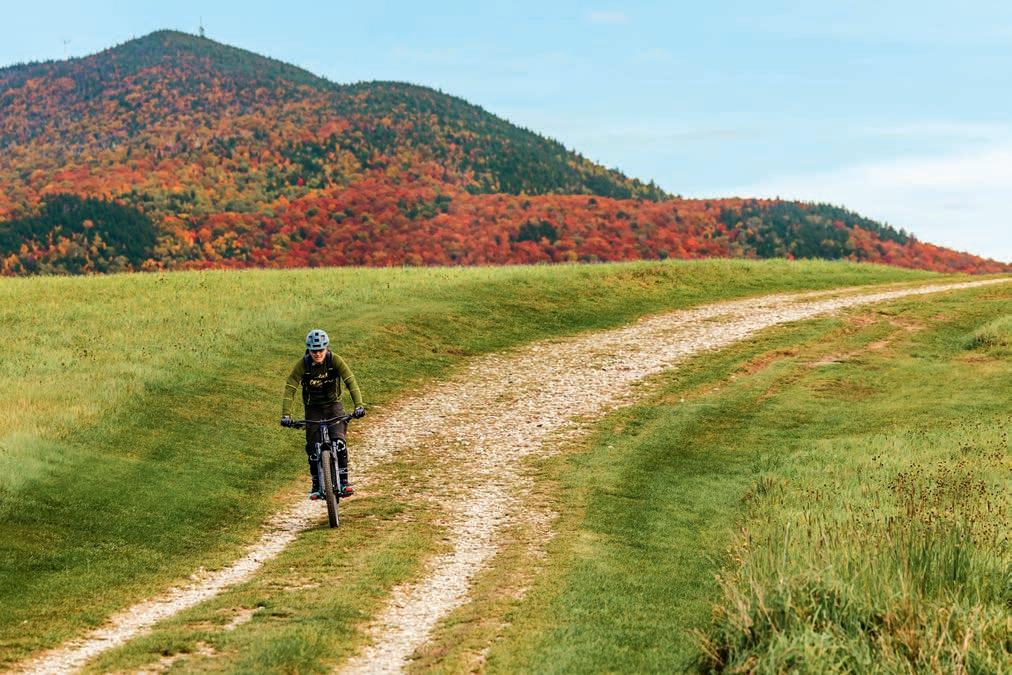
My wife, Kay, and I took this back road on a day in early fall, when the Kingdom starts to spill color down into the rest of the state. The still-green woods around the lake gave way to all the hues that autumn brings to red and orange, with yellowing birches for counterpoint. After a crest in the road and the opening of an eastward vista, we came to a well-remembered sign of entry into the Northeast Kingdom: the distant white spire of Craftsbury Common’s United Church.
In a state where settlement generally followed river valleys, Craftsbury Common is unusual. It floats high up on a ridge and clusters around a village green—the eponymous common—out of all proportion to its size. Reaching the village just as its tiny museum was opening, we helped docent Nancy Frohwein mount the flagpole on the porch. Then we headed inside to view relics that dated back to the time of Ebenezer Crafts, who was granted the town in 1780


by the legislature of the Vermont Republic. Ten years later, he and his son Samuel, a future Vermont governor, came to settle here. If it looked on their arrival anything like it did on this luminous autumn morning, they must have thought they’d been granted a morsel of paradise.
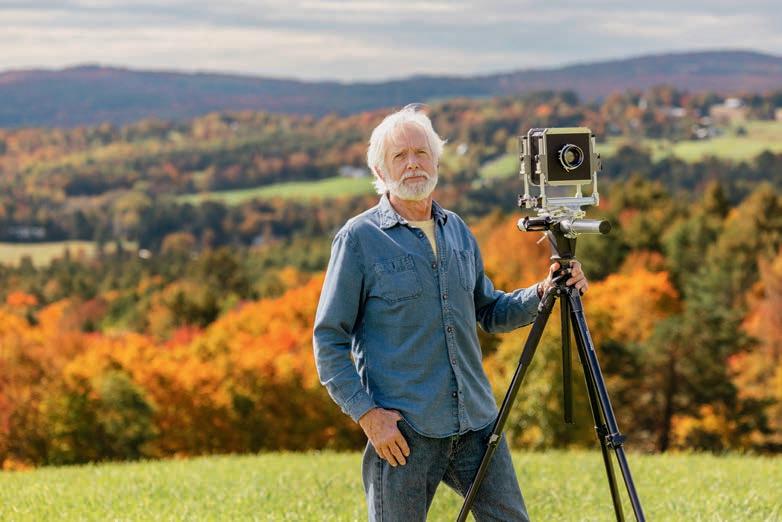
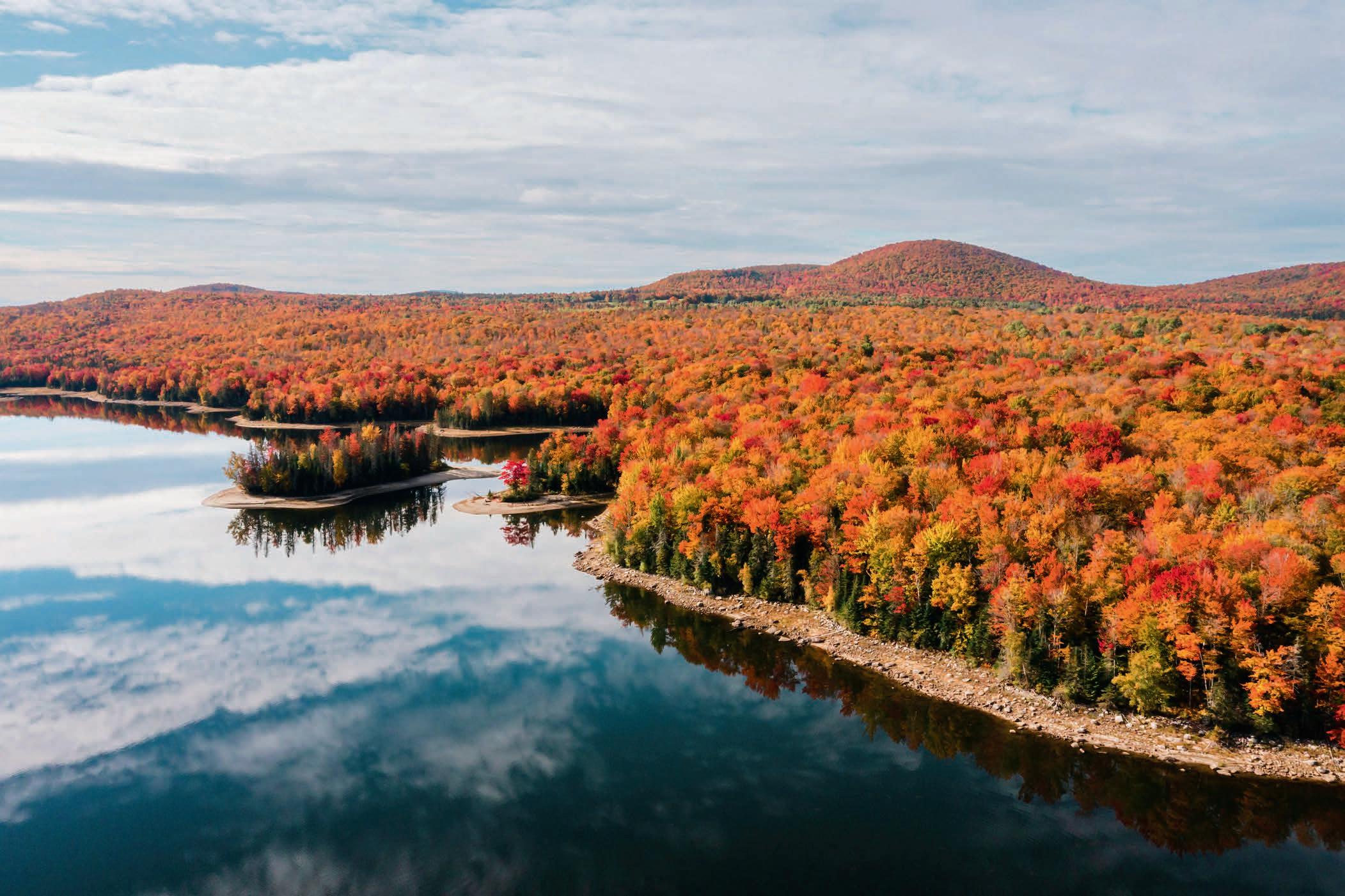
Driving down from Craftsbury Common through Craftsbury to East Craftsbury (Vermonters hate to give up a name as a road leaves town), we looked for a turnoff onto a fragment of the Bayley-Hazen Road, that never-completed 18th-century route for a contemplated invasion of Canada. Having driven this portion years ago, I remembered it as an unpaved fall foliage superhighway. But a librarian in East Craftsbury—every village we passed had its library, because this is New England—told us it had been rutted into impassability, probably by ATVs. So, we took a no less lovely blacktop down to Greensboro, on Caspian Lake.
Since it was too early to settle into our quarters at Greensboro’s Highland Lodge, we continued—after a stop at Hill Farmstead Brewery, where it wasn’t too early for a pint—south to Danville, cutting across Route 2 to reach Peacham on the day of its Fall Foliage Festival. Actually, it was day five of a Kingdom-wide celebration of the season, as each year the festival makes the rounds of seven area towns, putting a different spin on “a movable feast.”
Peacham is an anomaly among country towns in Vermont, particularly those in the state’s more hardscrabble corners. The little café at the village crossroads serves cappuccino; the music playing as we ate our homemade blueberry cake wasn’t Garth Brooks, it was Harry Belafonte. And there’s an electric vehicle charger at the library.
We soon saw that Peacham itself was the festival. It’s a pleasantly walkable town, with every event venue just minutes from the crossroads where Church Street meets the local shard of the Bayley-Hazen Road: library and its book sale on one side, café and Peacham Corner Guild craft gallery on the other; historical association a few yards up, past local cooks preparing the evening’s Italian supper at the


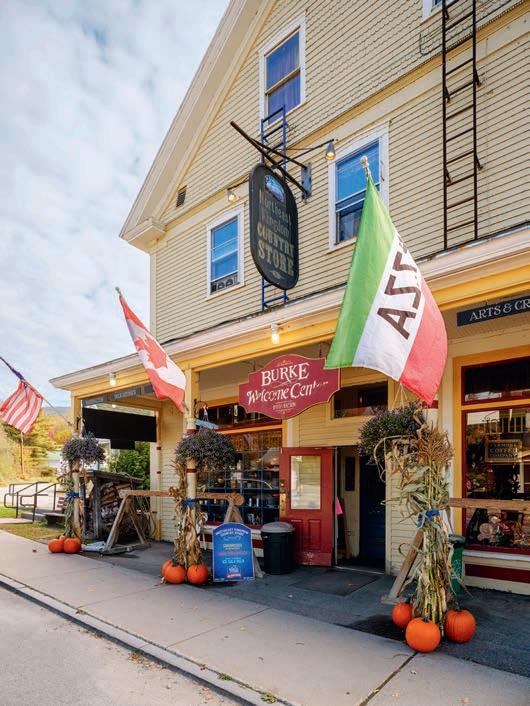




Congregational church. We joined locals and visitors alike on the way to the Peacham School, where pupils served an outdoor lunch of homemade quiche, corn chowder, and apple pie. Afterward, we walked up a hill behind the school to the Northern Skies Observatory, where amateur astronomers take advantage of the Kingdom’s dark night skies.
One of the day’s events was an exhibit of prints by local photographer Richard Brown. He started documenting life in the Northeast Kingdom 50 years ago, and his book The Last of the Hill Farms depicts a place where he found “a world of Jersey cows and Belgian work horses, woodburning Glenwoods, and dirt-floored basements full of canned applesauce, mustard pickles and stewed tomatoes in glinting rows on sagging wooden shelves. Autumn mornings, when the sharp fragrance of wood smoke and rotted manure laced the air, when the frost was thick on the land, and the maples began to blaze, I thought I’d died and gone to photographer’s heaven.”
I met up with Brown at the modest headquarters of the Peacham Historical Association, where his prints were on display, and we talked about the town he’d come to in the days when “there was an invasion of people like myself,” back-to-the-landers who “didn’t know what the hell we were doing.” But he and the other newcomers found Vermonters, fifth- and sixth-generation and beyond, who did know what they were doing, and were doing it in the receding twilight of the 19th century. Brown spent years chronicling the lives of his neighbors, having, as he once wrote, “always been drawn to the closeness of Vermont’s past.”
Brown built on the legacy of an earlier photographer who had also been entranced by Peacham: European émigré Clemens Kalischer, who chronicled the town during the 1950s and ’60s. His pictures so poignantly captured the essence of life in a midcentury Vermont village that their appearance in Life magazine, Vermont Life, and a Time-Life book about New England helped establish the state as the quintessence of bucolic Yankeedom, living proof that there really is something the Germans call fernweh —a longing for a place one has never seen. I imagine it must have afflicted more than a few of the folks we sauntered through town with on that festival day.
AFTER PEACHAM, KAY AND I SWUNG UP PAST ST. JOHNSBURY to Lyndonville—where I narrowly resisted killing the afternoon at a favorite spot, Green Mountain Books—and sought out a road we’d never traveled. It runs through deep Technicolor autumn woods to Greensboro Bend via the village-less towns of Wheelock and Stannard, and is punctuated by a marker that states: “In honor of Horace C. Goss who built this road over Wheelock Mountain in 1868.” (We assume Mr. Goss had help.)
Returning to Greensboro, we checked in at Highland Lodge, a rambling and venerable inn that made us feel as



if we’d arrived at Grandma’s big, comfortable house in the country. Our room’s name, though, paid tribute to someone Grandma might not have heard of. It was the Federico Suite, honoring Spanish poet Federico Garcia Lorca, who in 1929 spent time over on Lake Eden with his friend Philip Cummings. Cummings’s family were founders of Highland Lodge. A photo of the two young men hung in our room. I looked at Lorca, in his natty tennis sweater, and wanted to tell him to stay here, instead of going back to Andalusia to be killed by Franco in 1936. The futile warnings of hindsight call to others, as well as to ourselves.
Caspian Lake has long been a quiet summer getaway for people of accomplishment and means, the types who would avoid the Hamptons like the plague. The late U.S. Chief Justice William Rehnquist had a place here, as did author John Gunther, who wrote of the “lollipop” moon shining over Caspian. After a canoe paddle around the east shore, where the lake was a mirror splashed with color, we tucked in too early for moonrise. We woke to a morning of heavy mist over Caspian, the distant call of the loons, and the Dopplered gabble of a southward flock of Canada geese.
The mist cleared during breakfast, and it was time to continue our drive through the autumn Kingdom with a run up Route 16 for stops at two very unusual destinations in the town of Glover. The Museum of Everyday Life occupies a former barn on the roadside, and a quirkier, less formal … well, more everyday museum likely doesn’t exist. Per a note tacked by the door, you turn on the lights when you go in, and turn them off when you leave. What’s inside? Keys and keyholes, alarm clocks, a violin made of matchsticks, a book on how to sharpen pencils, a curtain made of safety pins, toothbrushes, shopping and to-do lists (with a map showing where on the streets of New York they were found), and a collection of notes discovered in library books. The separate Milk House Gallery houses rotating exhibits; when we were there, the theme was bathrooms and their equipage, from replicas of tools the Romans used to wipe away bodily grime, to faucet handles and shower heads, to rubber duckies and a recording of a young Bette Midler singing at a New York bathhouse.
Just up the road, we turned off to visit a much older and more politically inclined institution, the Bread and Puppet Museum. Here, on the property where artist Peter Schumann and his late wife, Elka, once hosted their “Domestic Resurrection Circus,” a cavernous 150-yearold barn is home to the enormous puppets that Schumann and his assistants crafted to dramatize the social and political struggles of the past half century. Dimly lit halls are crowded with both oppressors and oppressed, stylized as
though, is somehow subsumed in the sheer artistry of it all.
BACK IN THE LIGHT OF THE AUTUMN DAY, WE DROVE NORTH through Barton to Orleans, where we bought the makings of a picnic lunch to enjoy at one of my favorite places in Vermont. The village of Brownington is best known for the Old Stone House, the remarkable granite edifice built by the Rev. Alexander Twilight, the state’s first AfricanAmerican college graduate, for the boys’ academy he directed. But just across the road from the Stone House is a pillowy meadow topped by a far less grand but nonetheless captivating structure: a two-story wooden observatory that offers views reaching from Lake Memphremagog into Quebec, to the sugarloaf peaks framing Lake Willoughby, to the Green Mountains to the south. If there is a better

We meandered east on the back roads, keeping an eye out all the while for a surprising recent phenomenon in Vermont demographics. Migrating northeast from their Pennsylvania redoubts—motivated, some say, by exasperation over years of serving as photo opportunities for too many tourists—a number of Amish families have brought their agricultural know-how and 18th-century technology to the Brownington area. After seeing a caution sign bearing the silhouette of a horse and buggy, we started watching out for the real thing. None were spotted, but we were pleased to reflect on the fact that in the realm of farmland preservation, the Keystone State’s loss is our gain. And the Amish must realize by now that they’ve moved to a realm of more spectacular fall foliage (sorry, Pennsylvania).
Poking along Hudson Road in East Charleston, we came upon that quintessential foliage drive stop, the perfect roadside stand. The Devaney Farm Stand, a splash of architectural color that challenged the trees, offered the traditional cornucopia of fall fruits and vegetables, includ-

ing a Vermont oddity: plums. “They’re from just across the border, in Quebec,” proprietor Sharyl Devaney told us. We bought a box, glad to find that plums were finding their way over the border, but the real taste treat of the afternoon was Devaney’s ice cream sandwiches, inch-and-a-half-thick treats built around chewy homemade cookies.
Sated till supper, we browsed the curio shop, where shelf after shelf bulged with antique housewares, bottles with half-forgotten brand names, vintage toys, and a cast-iron pig trivet we just had to have. “My husband goes to a lot of auctions,” Devaney told us.
She also told us about a place to check out if we were continuing on to Island Pond, which was our plan. “It’s called Cucina di Gerardo, and Gerardo is from Italy. I had one of his calzones last night—delicious!”
ISLAND POND IS A NORTHEAST KINGDOM OUTPOST. IT DOES stand alongside a pond—more of a lake, really—with an island in it, and is known by Vermonters mainly as a snowmobilers’ haven. Beyond here is the Silvio O. Conte
National Fish and Wildlife Refuge, 40,000 acres of wilderness reaching to the New Hampshire border. Despite the refuge’s name, Island Pond is one of the last places we’d ever expect to come across an Italian restaurant run by a native Italian. But there it was.
I found Gerardo Grieco busy in his kitchen, on a day when his place was closed, and he was happy to talk about how he’d brought la bella cucina to this corner of Vermont. He hails from the southern Italian town of Avellino, and was surprised to hear that my own Italian ancestors came from a paese not 50 miles distant.
Grieco, a veteran of the Boston restaurant scene, first came to the Northeast Kingdom more than 30 years ago. Every bit the picture of an Italian chef, he ran his own places in Lyndonville and St. Johnsbury before opening his small trattoria in Island Pond. He’s a self-proclaimed “pizza man,” but his menu goes way beyond that. It’s the cuisine of
Naples and environs, and the ingredients, Grieco says with pride, “are all imported from Italy.” Locavore dining is fine, but you just can’t grow San Marzano tomatoes in Vermont. I wished we could stay in Island Pond until the next day, when Gerardo’s place would be open, but we had reservations at the WilloughVale Inn, on the northeast shore of fjord-like Lake Willoughby. We got there by way of Hinton Ridge Road, which winds down from Route 105 and crests, high above the lake, at Sentinel Rock State Park. The colors were perhaps a shade past peak up there, which meant they’d be at their pinnacle along the lake. We reached the inn early enough in the afternoon to aim a couple of its kayaks south, toward the lake-framing mountains Pisgah and Hor, and we paddled up appetites for dinner on the WilloughVale’s porch. There, as we finished our wine in the gathering dusk, our own lollipop of a moon rose over the Pisgah foothills, shimmering on the cobalt lake.
in between. misslyndonvillediner.com
n The Parker Pie Co., West Glover: The Northeast Kingdom’s premier pizzeria stays where it started, in back of a country store. Poutine? Nachos? They’re on the menu, but the site-made dough and impressive choice of toppings (e.g., Bayley Hazen blue cheese) make pizza the star. parkerpie.com
Eat & Drink
n Bentley’s Bakery, Danville: Owner Tarah Fontaine’s baked goods with fresh-roasted Vermont coffee is a favorite eye-opener for locals, who then head back for the lunchtime sandwiches. bentleysbakeryvt.com
n Cucina di Gerardo, Island Pond: Chefowner Gerardo Grieco offers the authentic cuisine of his southern Italian homeland, including a large selection of pizza and calzones. cucinadigerardo.com
n Hill Farmstead Brewery, Greensboro Bend: Many cultures regard beer as essential food, and simply put, the best handcrafted beer in the world is right here. hillfarmstead.com

n Hobo’s Café, Island Pond: Hobo’s serves breakfast all day but is best known for slowcooked BBQ and smoked baked beans that tempt diners to lick their plates. Facebook
n Miss Lyndonville Diner, Lyndonville: For nearly a half century, the most beloved eatery in this college town has served up traditional diner fare, from buttermilk pancakes to meat loaf, and everything
n Peacham Café, Peacham: Today’s modern country store now features sandwiches and plates inspired by local fresh produce, and this café exemplifies that. peachamcafe.org
n Willey’s Store, Greensboro: The famed cheeses of Jasper Hill Farm are made in deep vaults right in Greensboro, and their “unofficial” retail outlet is this local countrystore landmark. Pick up fresh cheese to rival any in the world, then head up to Hill Farmstead to pair it with fine beer. Facebook
Stay
n Essex House, Island Pond: A surprising small-town find: a vintage hotel, smartly renovated with accommodations ranging all the way up to a full-kitchen suite. A hearty array of lunch and dinner specialties are served in a casual tavern atmosphere. essexhouseandtavern.com
n Highland Lodge, Greensboro: There’s a timeless, homey feel to this rambling inn, which boasts 10 comfortable rooms, four all-season cabins, and a dining room serving traditional fare with an innovative touch. Canoe and kayak on Caspian Lake, then settle into the cozy pub. highlandlodge.com
n WilloughVale Inn, Westmore: With eight handsomely furnished rooms and suites in the inn and three lakeside cottages, this is the only full-service place to stay on Lake Willoughby. The Robert Frost Tavern (Frost camped here in 1909, and mentioned Lake Willoughby in a poem) serves burgers, sandwiches, and tacos alongside wine, spirits, and Vermont beers. willoughvale.com
Play
n Bread and Puppet Museum, Glover: The enormous masks and puppets that highlighted decades of Bread and Puppet Theater’s parades, demonstrations, and celebrations fill an ancient barn to the rafters. breadandpuppet.org
n Dog Mountain, St. Johnsbury: A 150acre mountaintop retreat and dog chapel created by artist Stephen Huneck and his wife pay tribute to the canine world. Few visit the chapel, with its photos of pets who have passed on, without tears but also joy when they see the living dogs romping just outside. dogmt.com
n Kingdom Trails, East Burke: Mountain bike enthusiasts know these hundreds of miles of interlocking trails to be among the best in the country. Bikes to rent, food, lodging—they’re all here. kingdomtrails.org
n Museum of Everyday Life, Glover: “Glorious obscurity” is the self-proclaimed mission of this quirkily curated collection of things we all know and use, but seldom think about. museumofeverydaylife.org
 Autumn hues roll down toward the turquoise waters of Caspian Lake in Greensboro.
Autumn hues roll down toward the turquoise waters of Caspian Lake in Greensboro.


































Held in the heart of Vermont’s biggest city, the Burlington Farmers’ Market has been operating from May through October every year since 1980, save for a pandemic pause. Its nearly 100 vendors offer a huge variety of produce, prepared foods, crafts, and beverages, and each Saturday this bounty draws a few thousand customers amid a Queen City humming with locals and visitors alike. The market offers a place to gather with friends or meet new people, grab a quick bite, and collect groceries for the week.
The vendors have backgrounds as diverse as
the products they sell. Some are in their second or third careers and finally giving that long-held dream a shot. Others are making their first foray into entrepreneurship, or taking on the family business. During my visits to the market last fall, I spoke with some of them about what they grow or make—something I rarely make time for on my own busy market days as a produce vendor. And I found that, like me and many others who choose to do this work, they share both the desire to live out their dreams and the understanding that real human connection—the kind you find at the farmers’ market—is what makes it possible.
“We do this for love.”
teby Lis Golte


JASON ELBERSON, 3, AND CAITLIN ELBERSON, 3 CHARLOTTE, VT
MARKET VENDOR SINCE: 25
PRODUCTS: SMALL-BATCH

FERMENTED VEGETABLES AND KOMBUCHA

JASON: “We source most of our produce from organic Vermont farmers. We also raise chicken and sheep. This is our ninth year selling fermented food. We started out selling vegetables and wanted to grow most or all of what we process. We quickly found it was easier and better for our business to spend most of our time in the kitchen and then become a customer instead of a competitor to the other organic farmers in the region.
“What I like about being here is that as the owner of the business, I can really talk about it. You know, since we’re not certified organic we can’t put that on our label, so I like being able to explain that and introduce people to our product.
“During Covid, a lot more people felt drawn to supporting local farmers, which is still happening and is great. Vermont’s been doing a good job with that for years.”
CAREY KOLOMAZNIK, 4 SOUTH BURLINGTON, VT
MARKET VENDOR SINCE: 23
PRODUCT: POT STICKERS

“The market has a lot of regular customers who come back every week. I love to see them. People start as a customer, and then after many years they become a friend, and then later on, family.
“We’ve had very strong supporters since day one. I had no idea how great they were until this spring, when I was raising money to open a food cart on Church Street. The opportunity came on quick, and I kind of panicked because I didn’t know where to start. Our customers just said, ‘I’ll help you do a fundraiser.’ After we started the fundraiser, I just realized people love me! I was like, ‘Thank you, guys!’ I’d never asked for help. I was so touched.”

GRACE MEYER, 3; JUSTINE BELL LAMBRIGHT, 3; AND KATHLINE CHERY, 3 FLETCHER, VT







MARKET VENDOR SINCE: 22
PRODUCT : WINE









GRACE: “We started a year and a half ago. Our first harvest and our first year producing wine was 2021. This is our first vintage, and now we’re harvesting and producing for our second vintage.

“We very intentionally started as a worker cooperative. We’d all worked in the food and wine industry. One of my partners is the winemaker, and her background is in farming and wine making. My other partner is kind of the face of the business—they do most of the sales and PR. And I am more administrative. But we all had seen a lot of the problems that came with food and bev, and the power structures, and the limitations of getting into the business if you don’t already have money. So we wanted to form this cooperative as a way to break in and also keep it equitable.
“All the grapes we grow are hybrid grapes that have been bred to succeed in cold climates. With climate change, that’s pretty much the only way anyone is going to be able to grow grapes. We’re seeing that in Europe and California; it’s just not working anymore with Vitis vinifera. So we’re passionate about hybrids. But for the longest time in Vermont, people were taking hybrids and trying to make wines that replicated California cabernets, things like that, but they’re really their own thing! There’s this whole new world of flavor out there with hybrids if you just let them do what they want to do.”








“I went to the University of Vermont for undergrad, and I always wanted to come back. I’m a marine ecologist and worked for consulting companies over my professional career, and I also teach environmental science at Champlain College. I used to do coastal restoration projects in marine systems around the world. And then about 20 years ago I started my oyster farm in Duxbury, Massachusetts, and did both simultaneously.
“I started selling oysters up here seven years ago and developed new relationships.... [for instance] I used to set up an oyster bar at Foam Brewery. I moved up here full-time four years ago. I had to build out a calf barn to build the aquaculture components, which took me about five or six months. The first year of production was 2019.
“My plan had always been to start a farm that was a little smaller. I can produce about 100 pounds per week, and it sells out within a few days. The market’s growing.”
BROOKE GIARD, 3, AND BRADEN LALANCETTE, 2 BURLINGTON, VT



MARKET VENDOR SINCE: 20
PRODUCT: CUT FLOWERS














BROOKE: “I have a background in floristry and Braden had a background in farming, so: flower farming. Every year our business has grown. This is the year that we’re not just thinking about how to get through the day. We have full-time employees now, and we know where our markets are. We were kind of dabbling in things, but we finally figured out what we want to do and are getting better about doing that. It’s nice having employees. We love our crew.”


KYLE DODA, 3, AND BETSY SIMPSON, 2 BROOKFIELD, VT
MARKET VENDOR SINCE: 25




PRODUCTS: EGGS, MUSHROOMS, VEGETABLES, FRUIT


KYLE: “This is a great market. We’ve been doing it for eight years, and every year has gotten better. At the moment, we’re watching these drastic fuel price increases and seeing the cost of food in the grocery stores go up. I haven’t changed the price of our vegetables at all, because my margins are still good. And it’s really attracting customers. A lot of farmers are realizing, hey, let’s take this moment to encourage people to shop locally and see that the value they get is in the quality of food. So those conversations have been happening with customers at the market, and they’ve been responding well. And now I have customers that I wouldn’t normally have, and they’re coming every week. That probably won’t change— usually once we get regulars, they stay. I would say that the Burlington market is thriving.”
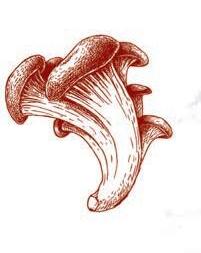





“I worked for Macy’s in New York City for about 10 years. I was a business manager at the end, before I left to come to Vermont. We had just had our son, and our parents had been living here for a long time. We used to come up to camp and ski, and we always felt like it was calm and laidback. When we found out we were pregnant, our parents wanted us to be close so they could see their grandchild. We felt like this was a good place to raise a family.
“I’ve always wanted to start my own business, so I felt like moving was kind of a blessing in disguise. My wife and my mom make really good Nepalese food, so we talked about combining my business background and their food background. But I didn’t want to do a restaurant business—I wanted to do something new. Being in New York City, you can find restaurants from 10 different ethnicities in one block. So we kind of saw an opportunity, because I didn’t see any Nepalese food in stores.
“The market was really important in getting started, just for the exposure. Momos are a very new product here. The first year was all about educating, letting customers know what the food is, where the food came from, and the culture behind it. In 2015 it was just the farmers’ market, and slowly the word started getting out. And then we got into one of the stores here, City Market, and people started making the connection between the farmers’ market and our branding.”
CATHY VADNAIS, 6, AND LEO MAGUIRE, 9 MILTON, VT MARKET VENDOR SINCE: 28
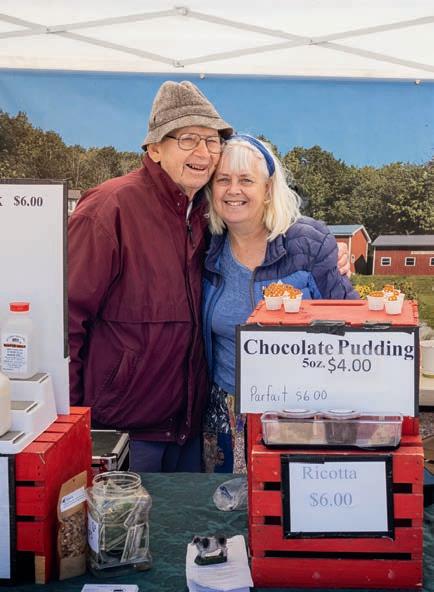
PRODUCTS: MILK, YOGURT, FRESH CHEESE PRODUCTS, CHEESECAKE











“I moved here in ’79. We’re a microdairy—we have three cows. I have a creamery on the premises, and I make everything from the milk that our cows
“This is a very good market. It really puts us over into the profit making. And not that there’s a lot of profit! We do this for love.
“I think one of the biggest parts of our business here is my dad; he’s 90 and he sold auto parts for 60 or 70 years. He takes the bus to the market from Essex and meets me here each week, and he just loves it. The people love him too, and he’s good for sales.”
“You know, everybody loves food. Milk is one of the oldest products in the world, and you can do so much with a couple of cows and the milk products. One of the surprises for us has been the reaction to our kefir for dogs, the Kanine Kefir. It’s a terrific product for dogs because it’s good for the tummy and it’s also a nice treat.”
Nurbu SherpaJULIAN HACKNEY, 3


BURLINGTON, VT
MARKET VENDOR SINCE:



PRODUCT: GINGER BEER





22




“This was a passion project for a long time. I started selling it to friends and coworkers as a hobby, and I was just watching the beverage scene grow and seeing a lot of nonalcoholic beverages take off. We’re in a place where everyone is very enthusiastic about craft beer—there’s a trend happening where people are getting away from alcohol but maybe want the same experience.
“Working at [Burlington co-op] City Market provided the groundwork for what I’m doing now. I could see the industry and got a gauge for where I could fit into it and also got experience dealing with local vendors: Working in the receiving department, my job was to check people in, so I was the first face to interact with them. But I started having sleepless nights worrying that I was doing the wrong thing—I wasn’t pursuing my dreams. Once I got to that point, I was like, OK, I have to make a change.
“When I found out I was accepted into the farmers’ market, that’s when I gave my notice. I just knew that I was going to be too busy. When you’re juggling a lot of things, you’re bound to drop a ball and this was not a ball I was willing to drop.”
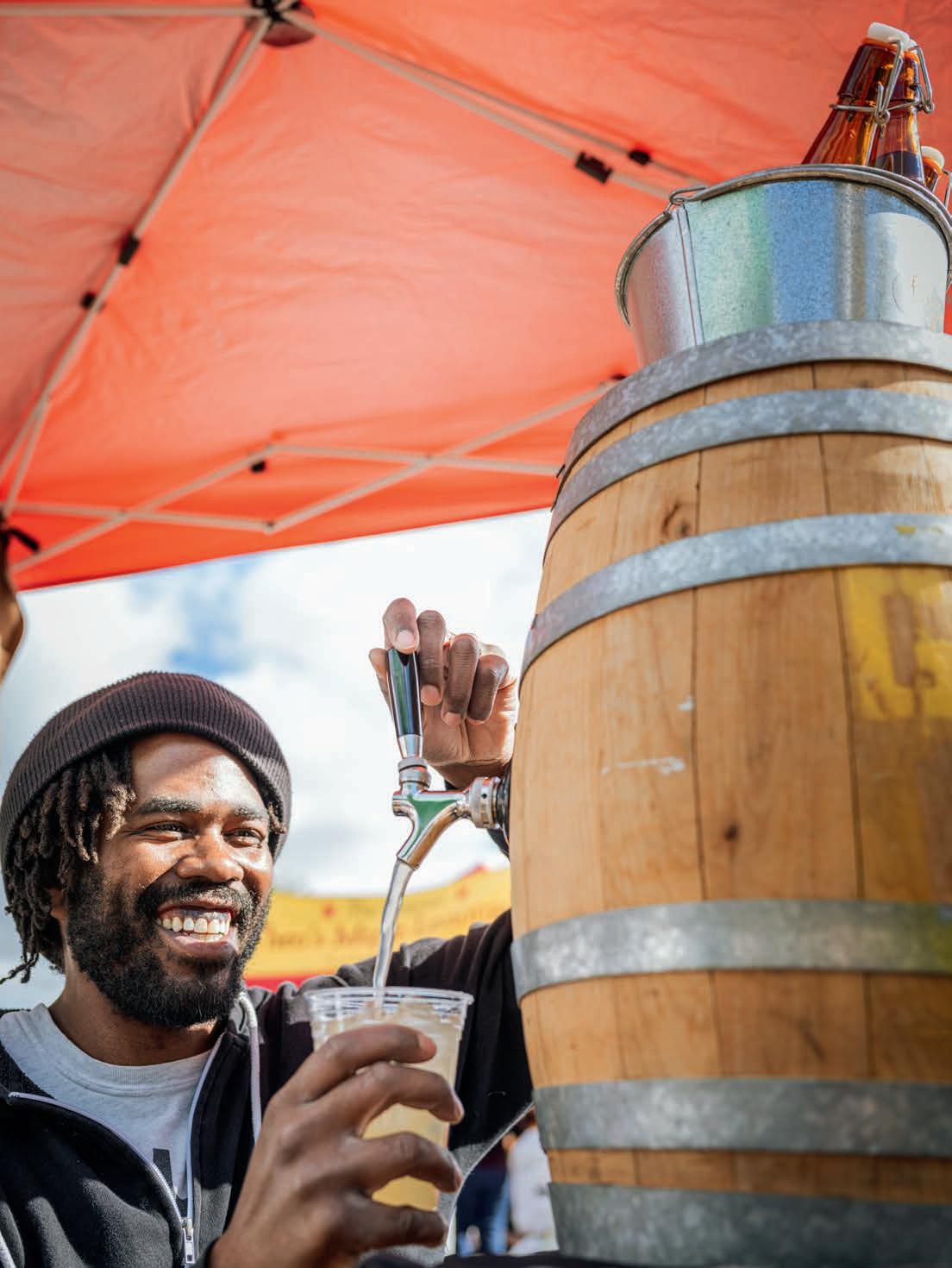

arly afternoon, high summer, and a blazing sun lights a span of the White Mountains in North Woodstock, New Hampshire, and it glows a deep green-gold. Then shadow washes across the mountainsides, as though someone has pulled a curtain on the day. The clouds aren’t cottony fluffers on their easy way, but heavy, thick, with eggplant underbellies and gray-cream tops carrying threat of storm. So it shifts, between beaming sun and shadow, back and forth, raising a question only time would answer.
I slip into the forest. Out from under open sky, the canopy eclipses most of what’s above, save a patchwork brightness. It’s cooler in the woods. Moss throbs off rocks, turns earth to pillow, softens the edges of the path. A sweep of ferns ruffles a bank around a corner. To the left, unseen but heard, the chuckling of a brook, water bouncing downhill over rock. The trees, thick and thin, uncowering, stand as bridges between the dark wet soil below and the sky above. The air has a floral smell, lilies and vanilla, and below that, the lactic tang of decay, that autumnal scent, aggressive but not unappealing, like a challenging cheese, musky, rotting, and seductive all at once. A hawk skreee s from somewhere up the hill. A chatter of round little chickadees bounces between low branches. Forest air feels more nutritious to breathe in. You’ve felt this, too, maybe, the way the blood answers to it differently. We take the woods inside of us and it changes what we’re made of, an experience easier sensed than understood.
What we sense, what we know, what we wonder and try to find the answers for—the forest stirs it in us. We sense: a great net of relationships and connections, invisible strands aglow above

us and below. We know: that’s paper birch, that’s goldenrod, that’s toad, salamander, slug. And we wonder: how long has it been here, how’s it changing, what’s happened, what’s happening, what’s going to happen?
Those questions drive the scientists and researchers at Hubbard Brook Experimental For est, one of the longest-running research forests in the country. It looked that day like the forests that I know, familiar in its New England way, the birch and beech and honeysuckle, the now-andthen scurry of a chipmunk or a squirrel, puddles of light on the leafy floor. A forest like other for ests, and unlike any forest anywhere. Its 7,800 acres—nearly 10 times the size of Central Park— and the trees, soil, birds, beetles, microbes, leaves, lichens, rock, and water that it holds have been under the watchful, patient eyes of an inter national and intergenerational team of scien tists and researchers for nearly 70 years. These are some of the most scrutinized woods on the planet, and the span and depth of data collected here impacts environmental policy, land management, fire safety, recreation, the way weather is reported, logs are harvested, laws are passed. And it informs what we know—and, more important, what we don’t—about our changing climate.
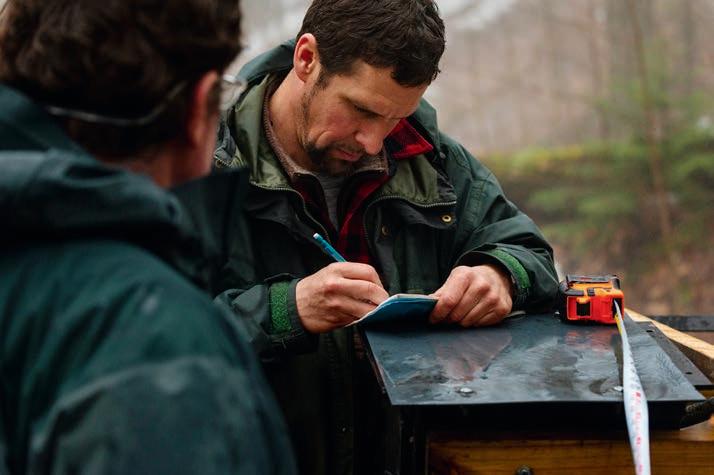
NOT A LOT OF PEOPLE KNOW ABOUT THE place. Did you know Hubbard Brook is where acid rain was discovered in North America? I didn’t. On a July day in 1963, a rainwater sample
taken there raised the eyebrows of the scientists. The pH levels were between 10 and 100 times more acidic than what would be expected for the region. What was causing it? Was it specific to this area or something more widespread?
Nine years of research later, Hubbard Brook published a paper on the issue. The initial hypothesis, that acid rain was caused by the combustion of coal and oil in electrical plants, gave way as they discovered it was much more so the result of nitrogen oxide emissions from cars and trucks. Which led to another question: Will acidity lessen if we


reduce emissions? The Clean Air Act in 1970, and its amendments in 1990, proved that yes, it will, directly and significantly. None of this happened overnight. “It required 18 years of continuous measurement from the beginning of the Study before a statistically significant downward trend in acidity at Hubbard Brook was observed,” as Richard Holmes and Gene Likens write in Hubbard Brook: The Story of a Forest Ecosystem . “For enthusiasts of monitoring, this is sobering. But it shows the critical value of long-term data.”
Part of what’s involved in the long-term data at Hubbard Brook is the handing down of information to younger generations, the sharing of data and wisdom, allowing new questions and new experiments to rise from what’s come before; it’s a palpable spirit of the place. At the annual cooperators meeting last summer, Hubbard Brook scientists, students, and researchers gathered in person for the first time in two years, filling round tables in a large conference room at Plymouth
State University. Sport sandals, hiking boots, pants with ample pockets—it was a wardrobe that suggested a group more comfortable tromping through woods than sitting in a conference room under drop ceilings around laminated tables, but spirits were high, and an energy of support and collaboration apparent.
Nicholas LoRusso, 31, grew up on the Saint Lawrence River, swimming, fishing, having conversations with his father and his grandparents about water levels, pike populations. That connection to the outdoors animated his research at Hubbard Brook, studying the processes of dissolved organic matter within calcium-treated watersheds at the forest. He spoke about the evolution of the work being done. “One generation has their ideas; interests grow and become interconnected.” A complex ecosystem of collaboration and connection develops among ecologists, biologists, entomologists, geologists, chemists, policy makers, musicians, artists.


For LoRusso, who was about to start a job at Harvard, this forest “builds love and community like no other place that I’ve experienced.” Everyone does their specific work, and all the work connects, overlaps, grows, not unlike the forest itself.
“WE’RE CHANGING THE SEASONS,” SAYS Lindsey Rustad, research ecologist and U.S. Forest Service team leader for Hubbard Brook who’s been studying the forest since 1997. We’re in the forest on that summer day as the sun comes in and out of clouds. Lightly freckled, in a dark green Forest Service shirt, Rustad speaks with her whole body and moves with nimble ease through brush and over forest tangle, with a spark that often lights the eyes of people who spend a lot of time outdoors. She looks younger than 64, in part for the enthusiasm, the almost kid-like glee, she has when she explains what’s afoot in these woods.
Weather conditions are being manipulated here, something that ends up being both simpler and more complex than one might expect. To accelerate the arrival of spring warmth, snow cover is shoveled off a particular section and heaped somewhere else. To approximate a drought, a translucent platform is built over a plot of forest; sun gets in, rain does not.
Tucked away in another corner, researchers are studying what happens when the forest soil warms. Plastic laundry bins sit here and there upside down. Certain trees wear belts of metal. To an outsider’s eye, it looks haphazard—messy yard as opposed to science lab. NASA, it is not. But the simple-looking above-ground tools belie a sophisticated and long-running study. Underneath the surface, Rustad explains as we step through this area, heating coils warm the earth the way radiant heat warms a kitchen floor. This experiment began in 2014 and required a year of careful monitoring and measuring before the switch was flipped and the coils were turned on. How is the forest system responding? What’s changing in the make-up of the soil, the growth of the trees, the chemistry of the leaves? “It doesn’t look bothered now,” Rustad says, “but at some point it’ll make a difference.”

At what point? When? And what will “bothered” look like? Rustad uses the word “resilient” to describe the forest again and again, and each time it comes from her mouth with a sense of reverence, almost awe. But it’s resilient to a point. “Our concern is not having knowledge of what the tipping points are.” That’s one of the things they’re trying to figure out.
Researchers clear-cut a swath of forest to see
how that altered the water. Nitrogen levels rose 50 times higher. But in three years, raspberry, pinchberry, and birch grew; the zone biochemically reinvented itself, and normal levels returned. “When you’re measuring over 50 years, you see how fast the forest regulates itself,” Rustad says. In another forest section, they powdered areas with calcium to see what it did to growth; elsewhere, they lit fires and let land burn. Life came roaring back.
Extremes are part of what drives the work in the woods. Storms are getting bigger, stronger, longer. There are more droughts and fires and floods. Heat waves and hurricanes. For the northern forest, it’s the ice storm that has the potential
to become more intense, and more damaging, as warm air travels farther north and bashes against polar air drifting down from the Arctic. Back in the late ’90s, Rustad and her team wondered, Can we manufacture an ice storm? The answer: yes. On a series of frigid nights, using firefighting equipment, they sprayed three sections of the woods, each the size of a basketball court, seeing what would happen with less than a quarter inch of ice, a half inch, and three-quarters of an inch.
They wanted to see how much the forest could take. In the quarter-inch section, there’s almost no noticeable difference. Walk to the half-inch section, and you’ll see some trees arched and bent
as though picking up a sock or bowing down in prayer. We move toward the three-quarter-inch section. Light starts to shift on the forest floor. “Look up,” Rustad says. Open sky. A great gap in the canopy, not a patchwork of light through leaves, but raw blue, up and up. It’s as though a bussize meteor burned a hole through this one section of the woods. Limbs cracked. Trees downed. “After half an inch of ice,” Rustad says, “is when it starts to get catastrophic.”

They don’t just look at what happens the day after, or week, or month. This experiment began
(Continued on p. 106)

that has deep ties to New England—is closer to being answered than ever before.
By Joe Bills
 Betty and Barney Hill’s 1961 UFO incident is re-created in The Arrival, an image from the exhibit “The Abductees, 1961” by Bostonbased photographer, writer, and curator Cassandra Klos. Another of Klos’s images, Stargaze, appears on the previous spread.
Betty and Barney Hill’s 1961 UFO incident is re-created in The Arrival, an image from the exhibit “The Abductees, 1961” by Bostonbased photographer, writer, and curator Cassandra Klos. Another of Klos’s images, Stargaze, appears on the previous spread.
THERE’S A HILLSIDE NOT FAR FROM MY NEW Hampshire home that is ideal for stargazing. Within a few minutes, distant worlds start to show themselves—a phenomenon, I know, that’s caused by my eyes adjusting to the dark. But it feels somehow personal, like a confidence shared, as the sky gradually fills.
Last year, however, any illusion that I had special access to the cosmos was erased by the glorious images beamed back by the new James Webb Space Telescope. Able to capture light that’s traveled millions of years, it reveals things that have never before been glimpsed by human eyes.
As stunning as those visuals are, they too have been overshadowed. This year, another space story has caught the media’s, and the public’s, attention: UFOs. Even the Webb’s extraordinary pictures pale against headlines such as “U.S. Jet Shoots Down Flying Object Over Canada” (The New York Times, February 12, 2023) and “U.S. Urged to Reveal UFO Evidence After Claim That It Has Intact Alien Vehicles” (The Guardian, June 6, 2023).
Recent technological advances, political revelations, and seemingly credible sightings have moved UFOs—or, as the U.S. government now prefers, UAPs (unidentified aerial phenomena)—from the supermarket tabloids into the mainstream media. And while most scientists remain dismissive, both the public and the government are intrigued.
Whether you believe we’re being visited by some mysterious Other or think everything in our skies is either natural or man-made, getting answers would seem to be in our universal best interest. After all, as the late J. Allen Hynek, the astronomer who investigated (and some say quashed) UFO sightings for the U.S. government for decades, was fond of pointing out, the important question is not whether an object is unidentified, but rather, “Unidentified to whom?”
born on a farm, so you may pretty much ignore all those titles and regard me as a farm boy….”
In Extraterrestrial, Loeb the scientist indulges his farmboy sense of wonder, speculating that the first interstellar object observed within our solar system, an oddly behaved “comet” dubbed ‘Oumuamua (a Hawaiian word that translates loosely as “first distant messenger”), may have been our first glimpse of alien technology. That suggestion landed Loeb at the center of a media storm and earned him the ire of many fellow scientists, who—while agreeing that ‘Oumuamua was unlike anything seen before—insisted that its origins were natural.
When astronomers spotted ‘Oumuamua in 2017 using a massive telescope located atop a dormant volcano on the Hawaiian island of Maui, the object, estimated to be between 100 and 400 meters long, was 21 million miles distant and moving away at a speed of about 85,000 mph.
“It didn’t look like a comet or an asteroid, the type of rocks that we have seen before within the solar system,” Loeb tells the audience. “Its brightness changed by a factor of 10 as it was tumbling, implying a very extreme shape.” A widely circulated artist’s rendition shows ‘Oumuamua as a cigarshaped rock, but Loeb’s calculations suggested more of a pancake-like object. Other astronomers, Loeb says, “were not happy with that interpretation, because nature doesn’t make such thin objects. It implies that perhaps it is artificial.”
Those extreme dimensions, paired with no evidence that ‘Oumuamua was emitting the gas or dust typical of a comet, led Loeb to speculate that it could be a solar sail—a device built to be so nearly weightless that light reflecting off it could propel it the same way that wind propels a sailboat.
BRINGS ME, ON AN OCTOBER evening in 2021, to the Coolidge Corner Theatre in downtown Brookline, Massachusetts, where Avi Loeb is speaking before a showing of Close Encounters of the Third Kind
As I take my seat, Loeb, clean-cut and dapper in a gray jacket with no tie, sits at a table signing copies of his recently published book, Extraterrestrial: The First Sign of Intelligent Life Beyond Earth. A few minutes later, the theater’s director of development and marketing, Beth Gilligan, reads off his accolades as she introduces him: chair of Harvard’s astronomy department, director of the Institute of Theory and Computation at the Harvard-Smithsonian Center for Astrophysics, founding director of the Black Hole Initiative, author of four books and more than 700 scientific papers, one of Time magazine’s 25 most influential people in space science in 2012.
Stepping to the podium, Loeb smiles. Raised in Israel, he speaks in clear but deeply accented tones: “It is great to be here. Just a couple of anecdotes. Well, first of all, I was
“One thing I learned from practicing astronomy for several decades is a sense of cosmic modesty,” Loeb says. “And the reason is simple. About half of the sun-like stars in the universe have a planet the size of Earth, at roughly the same separation. That means that not only are we not in the center of the universe, as people thought thousands of years ago, but our backyard is not even unusual. We are not privileged in any way.”
Whatever ‘Oumuamua was, it was different. If it was indeed a manufactured object, who had made it? Had it been sent to our inner solar system intentionally, or was it random space litter? How long had it been traveling? Did the civilization responsible for it still exist?
As ‘Oumuamua tumbles through distant space, it seems likely that the little bit of data collected while it was visible to us is all we’ll ever have. The mystery will remain unsolved. But in the future, Loeb hopes, we can be better prepared to get answers.
It is our nature, Loeb says, to fit evidence to what we know. “Imagine a caveman finding a cellphone. The caveman, (Continued on p. 110)
(Continued from p. 44)
Some people say that pumpkin is the official flavor of fall—but that’s an insult to apples! So let’s call a truce by combining them into simple, flavor-packed muffins that you can whip up in less than an hour. Using pumpkin pie spice simplifies the ingredients list, but if you don’t have it on hand, substitute ½ teaspoon cinnamon ¼ teaspoon each of ginger and nutmeg, and a pinch of cloves.

1½ cups all-purpose flour
¹⁄ 3 cup granulated sugar
¹⁄ 3 cup firmly packed light brown sugar
1 teaspoon kosher salt
1 teaspoon baking powder
1 teaspoon pumpkin pie spice
¾ cup canned pumpkin puree
1 large egg
¹⁄ 3 cup vegetable oil
1 large firm-sweet apple (about 8 ounces), peeled, cored, and cut into ¼-inch cubes
1 teaspoon vanilla extract
Thin apple slices, for garnish
Preheat your oven to 375°F and set a rack to the middle position. Line a standard 12-cup muffin pan with paper liners or grease with butter.
In a large bowl, whisk together the flour, sugars, salt, baking powder, and pumpkin pie spice. In a medium bowl, whisk together the pumpkin puree, egg, oil, apple, and vanilla.
Add the wet ingredients to the dry and stir to combine. Divide the batter among 12 muffin cups, filling each about ¾ full, and top each with an apple slice, if desired. Bake until a cake tester comes out clean, 20 to 25 minutes. Let muffins cool on a rack for 15 minutes, then serve warm. Yields 12 muffins.
These sheet cake bars with cream cheese frosting have long been one of my mom’s signature desserts—reliably moist, perfectly spiced, supremely cozy.
FOR THE CAKE
4 large eggs
1²⁄ 3 cups granulated sugar
1 cup vegetable oil (e.g., canola)
1 15-ounce can pumpkin puree
2 cups all-purpose flour
2 teaspoons baking powder
1 teaspoon baking soda
2 teaspoons ground cinnamon
½ teaspoon ground ginger
½ teaspoon ground cloves
½ teaspoon ground nutmeg
½ teaspoon table salt
FOR THE FROSTING
½ package (4 ounces) cream cheese, softened
1 stick (8 tablespoons) salted butter, softened
1 teaspoon vanilla extract
2 cups confectioners’ sugar
Preheat your oven to 350°F and set a rack to the middle position. In a large bowl, using a stand or handheld mixer, beat the eggs, sugar, oil, and pumpkin puree together until smooth. In a medium bowl, whisk together the flour, baking powder, baking soda, spices, and salt. Add these dry ingredients to the egg mixture and mix just until combined. Pour the batter into an ungreased 10-by-15-inch rimmed baking pan.
Bake until the center is set and springs back when pressed, 25 to 30 minutes. Remove from oven and let cool.
Meanwhile, make the frosting: In a large, clean bowl, beat the cream cheese, butter, and vanilla extract until combined. Add the sugar and beat until fluffy, 2 to 3 minutes. When the cake is cool, spread the frosting over the cake and serve. Yields 8 to 10 servings.
These days I’m seeing sugar pumpkins for sale in every supermarket that I frequent. They can vary in size, but this recipe is flexible enough to work with any mediumish pumpkin. Flavors of maple, brown sugar, toasted walnuts, and rosemary are the perfect sweet-savory counterparts.
1 medium sugar pumpkin (also known as pie pumpkin)
3 tablespoons olive oil
3 tablespoons maple syrup
1¼ teaspoons kosher salt, divided
½ teaspoon freshly ground black pepper
¼ cup firmly packed brown sugar
¼ cup walnut pieces
1 teaspoon fresh rosemary leaves, chopped
Preheat your oven to 400°F and set a rack to the middle position. Line a large rimmed baking sheet with parchment paper.
Slice off the top ¼ inch of the pumpkin to remove its stem. Cut in half lengthwise and scoop out the seeds. Cut each half crosswise into wedges about 1½ inches wide at their widest point.
In a large bowl, toss the pumpkin slices with the olive oil, maple syrup, 1 teaspoon salt, and pepper. Arrange the wedges, skin side down, on the prepared baking sheet and transfer to the oven to cook for 15 minutes. Meanwhile, in a food processor, pulse the brown sugar, walnuts, rosemary, and remaining ¼ teaspoon salt until the mixture looks like wet sand with small pieces of walnuts.
Remove the pumpkin from the oven and sprinkle evenly with the brown









sugar mixture. Return to the oven and roast until the slices are golden brown and the walnuts are toasted, 10 to 12 minutes more. Yields 4 to 6 servings.

This vegetarian entree is really more of a stew than a chili, but the flavors and garnishes bring to mind a standard chili. And the effect is just as hearty and warming.

3 tablespoons olive oil
2 medium carrots, diced
2 celery stalks, diced

1 medium yellow onion, diced
2 teaspoons kosher salt, plus more to taste

½ teaspoon freshly ground black pepper, plus more to taste
2 large garlic cloves, minced

1 red bell pepper, seeded and diced
1 teaspoon chili powder
¾ teaspoon cumin

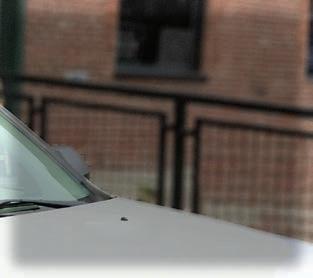



1 teaspoon dried oregano
1 cup pumpkin puree
1½ pounds kabocha squash, seeded (unpeeled) and cut into 1-inch chunks
2 15-ounce cans white beans, such as northern or cannellini, with liquid

3½ cups chicken or vegetable broth




Avocado slices, cilantro, and sour cream, for garnish
Warm the oil in a large Dutch oven over medium-high heat, then add the carrots, celery, onion, salt, and pepper. Cook, stirring often, until the onions are translucent, about 6 minutes. Reduce heat to medium. Add the garlic, red pepper, chili powder, cumin, and oregano and cook, stirring often, for 5 more minutes. Add the pumpkin puree and kabocha squash and stir to coat. Cook, stirring often, for 3 minutes. Add the beans and broth, bring to a low boil, then reduce heat to a simmer, stir, and simmer until the squash is tender, about 30 minutes more. Taste and add salt and pepper as needed. Serve hot and garnish with avocado, cilantro, and sour cream. Yields about 6 servings.










Whether you’re toasting a special occasion, celebrating a holiday, planning a date night, or simply craving an unforgettable meal, getting reservations at your local steakhouse is no easy feat. Luckily for you, we’ve got the insider tip you need to skip the waitlist and get the best seat in the house every time.



Your wallet is going to love this hack as much as your taste buds, because the hottest new steakhouse is in your kitchen and you’re always on the VIP list! Make the everyday extraordinary with a freezer full of world-famous, 100% guaranteed-perfect (or your money back) Omaha Steaks.

With gourmet proteins that are hand-selected and expertly trimmed by master butchers, extra-aged for more flavor and tenderness, and flash-frozen at their most delicious until you’re ready to enjoy, it’s never been a better time to bring the steakhouse home.

are HANDMADE using the finest quality ingredients, and are fully cooked before packaging. One dozen delicious pierogi are nestled in a tray, making a one pound package of pure enjoyment!



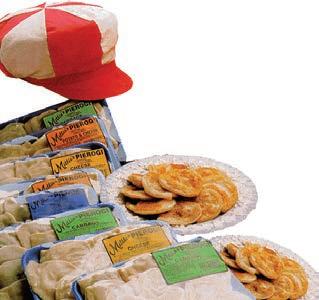
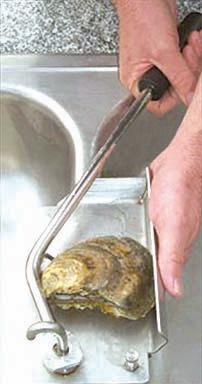
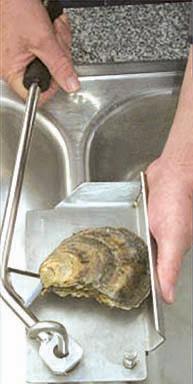

















"I've








mailed all over the world. Treat yourself or someone special today. 292





"Well



A truly memorable CHRISTMAS GIFT. First, we’ll send each person on your list a personalized parchment document a copy of an authentic 1890 TREASURY DEPT. lease, plus a GIFT CARD from you. During the harvest each lessee receives PROGRESS REPORTS full of facts & folklore, thus sharing in the adventure of sugaring. In April, when the sap has been processed, each Tree Lessee will get at least 60 oz. of the finest 100% pure woodfired MAPLE SYRUP in decorated jugs (at least 30 oz. guaranteed to Branch Lessees) – even more if Mother Nature is bountiful. We do all the work, your friends get the delicious results, and you get the raves!
A truly memorable CHRISTMAS GIFT. First, we’ll send each person on your list a personalized parchment document a copy of an authentic 1890 TREASURY DEPT. lease, plus a GIFT CARD from you. During the harvest each lessee receives PROGRESS REPORTS full of facts & folklore, thus sharing in the adventure of sugaring. In April, when the sap has been processed, each Tree Lessee will get at least 60 oz. of the finest 100% pure woodfired MAPLE SYRUP in decorated jugs (at least 30 oz. guaranteed to Branch Lessees) – even more if Mother Nature is bountiful. We do all the work, your friends get the delicious results, and you get the raves!
Tree Lease $69.95 + S/H
Tree Lease $69.95 + S/H



Branch Lease $59.95 + S/H Sale $ 4.95 + S/H 100% satisfaction guaranteed since 1979. Please visit our new website: RentMotherNature.com
Branch Lease $59.95 + S/H Sale $ 4.95 + S/H 100% satisfaction guaranteed since 1979. Please visit our new website: RentMotherNature.com
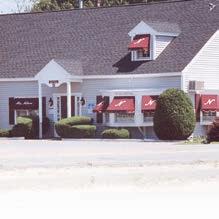


Phone (800) 232-4048
Phone (800) 232-4048


Forrest Pirovano, artist 781-858-3691



Mashpee Commons, Cape Cod forrestcapecodpaintings.com/pets.htm
for cider vinegar, jelly, syrup, and one of New England’s oldest potions, switchel (a vinegar-based quencher packed with electrolytes and treasured by farmhands of yore). On weekends, enjoy cider and handmade sodas at Carr’s cider garden, right at the farm. carrsciderhouse.com
CIDER HILL CELLARS, Amesbury. Three generations of the Cook family have nurtured the orchards on their North Shore farm, with 1,000 apple trees producing solely for cider. Cider Hill offers nine hard ciders, ranging from dry to semisweet and including berry and cherry blends—all made exclusively with apples grown on-site. On weekends, the cider bar offers a tasty lunch menu and live music. For kids, there are arts and gardening programs and, of course, sweet cider. ciderhill.com
TREE HOUSE BREWING COMPANY, Charlton. This tree house has grown into a small forest, with locations in Charlton, Tewksbury, Sandwich, and Deerfield, plus a cider outlet in Woodstock, Connecticut. A vast array of double IPAs, plus stouts, barley wine, strong Belgian ales, and more, has beer lovers buying tickets in advance, queuing up for drafts at 40-tap bars, and scoring cans on-site. Food trucks, all serving different specialties, can frequently be found on the scene. treehousebrew.com
TURTLE SWAMP BREWING, Boston
Brewing has a long history in Boston’s Jamaica Plain neighborhood, and Turtle Swamp keeps the tradition alive. Turtle Swamp’s taproom—one of the handsomest around, flowing outdoors onto a spacious brick patio—is an inviting spot to sample everything from light lagers to New England IPAs, and from powerhouse barley wine to imperial stout. Polish your palate with a guided tasting, catch a bluegrass jam, and even take a Pilates class (with beer to follow). turtleswampbrewing.com
WEST COUNTY CIDER, Shelburne. Several local orchards feed the presses for West Country’s cellar-fermented ciders, crafted to take advantage of an array of individual apple varieties. Heirloom Baldwins, for example, yield Dry Baldwin, a light, crisp cider expressive of the character of this native New England apple. Buy cork-andwire-topped 750 ml bottles or sample draft pours at the rustic tasting room; outdoors, there are hiking trails and an outdoor picnic area. westcountycider.com
BENT HILL BREWERY, Braintree. Climb a dirt road to this hilltop brewpub, where an eclectic beer selection complements a
vegetarian menu. Along with IPAs and weighty British ales, the brewers here play with flavorings such as blood orange, dill, rhubarb, currants, graham crackers, and, of course, maple—just the thing for washing down a black bean burger, cauliflower tacos, or aioli-dipped fries while enjoying a sweeping view from the deck. benthillbrewery.com
CITIZEN CIDER, Burlington. Citizen is the goliath among New England cideries, ubiquitous at convenience stores around the region and beyond. At its home-base pub and cider garden, though, the on-tap product is a neighborhood tipple. A good dozen drafts, some available in flights, cover just about every cider style; there’s a cider cocktail menu, too, and burgers, poutine, and a pork belly banh mi among the noshes. citizencider.com
EDEN CIDERS/SHELBURNE VINEYARD, Shelburne. The recent merger of Eden Ciders with winemaker Shelburne Vineyard brought the Newport cidermaker some welcome exposure at the vineyard’s tasting room on Route 7, just south of Burlington. Along with its line of still, sparkling, and herbal-infused hard ciders, Eden is known for its intensely flavored ice cider. Enjoy light snacks of Vermont cheeses and charcuterie, and special live-music nights. edenciders.com; shelburnevineyard.com
HILL FARMSTEAD BREWERY, Greensboro
When beer lovers make a pilgrimage to Vermont, it’s likely to this tucked-away corner of the Northeast Kingdom. On land the Hill family has farmed for seven generations, Danish-trained Shaun Hill crafts beer consistently voted the world’s best. Standards run from summer’s lagers to winter’s stouts, and from citrusy IPAs to powerful barley wines. Look also for brews with subtle fruit flavors, perhaps aged in bourbon, wine, or cognac barrels. The tasting room doesn’t serve food, so bring lunch to enjoy outdoors. hillfarmstead.com
LAWSON’S FINEST LIQUIDS, Waitsfield
The Mad River Valley is outdoor-sports central in Vermont. When hikers, skiers, and cyclists work up a thirst, they head to Lawson’s taproom for the brewery’s IPAs, Pilsners, porters, brown ale, and seasonal releases (in winter, look for powerful Maple Tripple), with light fare for pairing. Frequent live performances include jazz, blues, and folk. Occasional beer-themed dinners and popular Beer and Brats Wednesdays round out the schedule. lawsonsfinest.com
LONG TRAIL BREWING COMPANY, Bridgewater. “Take a Hike” says the Long Trail label, and a hike (or drive) to Bridgewater will lead to the brewery’s pub on the banks of the Ottauquechee River. Depending on the weather, taps

I can paint your pet.
beautiful oil painting on canvas by artist Forrest Pirovano ...with plein air wood frame.
(Continued from p. 60)










Follow
SEPTEMBER

to OCTOBER 29
might feature quenchers like Belgian White and Blackberry Wheat, or the chewy, chilly-day favorite Double Bag. Grab a burger or bratwurst (made with beer), take in the river views from the deck, and stick around for live music. longtrail.com
SWITCHBACK BREWING COMPANY, Burlington . Down in Burlington’s South End arts district, the Queen City’s heart of hip, Switchback has built a following around its eponymous flagship brew, an unfiltered amber ale that manages to be malty and hoppy at the same time. The pub crowd ventures beyond into IPAs, British-style Brown Ale, and specialties like Märzen lager while enjoying hot dogs, brats, vegan chili, and Friday-night live music. switchbackvt.com
WINDFALL ORCHARD, Cornwall.
The Champlain Valley is Vermont’s apple country, and Windfall takes full advantage of the local bounty. Up to 30 varieties, grown on-site, go into its naturally fermented sparkling and ice ciders. Apples aren’t the whole story here: Windfall’s pear crop yields hard-to-find perry, the old-British pear counterpart to cider. Windfall’s Saturday market also sells soup, pizza, and farm-fresh vegetables. windfallorchardvt.com



BRANCH AND BLADE BREWING, Keene Finally, a tap list that takes the confusion out of wading through clever beer names to find a favorite style. B&B lists lagers, hoppy beers (read “IPAs”), fruit-tinged sours, and dark brews, including “pastry stout” Dark Adaptation, liquid cake with a kick. Snacks and light fare are prepared on-site, and the Thursday-to-Sunday live music runs heavily to local talent. babbrewing.com
CONTOOCOOK CIDER COMPANY, Contoocook . More than 100 varieties of apples grown at Gould Hill Farm assure an exquisite array of mix-and-match possibilities. Flavor profiles run from bone-dry to sweet; cranberry, ginger, maple and tart cherries also make an occasional appearance. A selection of handmade pizzas rounds out a simple menu—a nice dry cider might just bump out beer for pizza pairing. Quart and half-gallon growlers are available to take home. contoocookcider.com
CORNER POINT BREWING, Somersworth. Corner Point has the entertainment market, well, cornered, with live music Fridays and Saturdays—monthly blues jams are a favorite—and Trivia Tuesdays. Beer, of course, takes center stage, with a dozen brews in rotation
on draft. Look for standards like brown ale and American lager, but don’t miss Corner Point’s experiments with orange peel, mango, coffee, and even green chilies. Paninis, clam chowder, and pizza headline a hearty menu. cornerpointbrewing.com
FARNUM HILL CIDERS, Lebanon

Don’t expect hard ciders made from supermarket apples at Farnum Hill, where heirloom varieties such as Yarlington Mill, Kingston Black, and Elias Bitter, grown at the cidery’s Poverty Lane Orchards, yield complex, “radically dry” still ciders, along with only slightly less dry fizzies. Farnum’s retail operation features sweet (nonalcoholic) ciders, pickyour-own apples, maple and seasonal vegetables, and hard cider tastings. farnumhillciders.com
GARRISON CITY BEERWORKS, Dover
At this downtown “nanobrewery” the emphasis is on New England–style IPAs, although lagers, a tart Gose, and a powerful stout called Hygge also make a taproom appearance. Snag a table on the patio to sample an internationally flavored menu, featuring items like Korean beef, jerk chicken, and pork carnitas—all easy to wash down with a frosty IPA. garrisoncitybeerworks.com
SMUTTYNOSE BREWING COMPANY, Hampton. Granite State beer pioneer Smuttynose pulls some surprises at its tasting room and beer garden—among traditional lagers, IPAs, and Old Brown Dog brown ale (and a muscular barley wine), look for sour beers with flavors bordering on the psychedelic, as in pineapple-orange-coconut or cherry cheesecake. Seafood chowder and beerbattered fish and chips are hits at the restaurant; Wednesday is trivia night, and there’s live music Thursday through Saturday. smuttynose.com
THROWBACK BREWERY, North Hampton
Outlandishly flavorful IPAs, imperial stouts, and other brews made with ingredients largely sourced from within 200 miles are the main draw at Annette Lee and Nicole Carrier’s brewery, but there are so many reasons to linger: the charming 1860s barn and beer garden, cute farm animals, fresh-from-the-field cooking at the on-site restaurant, and an events calendar sprinkled with trivia and open-mic nights, yoga classes, and more. throwbackbrewery.com
TWIN BARNS BREWING, Meredith. A post-and-beam double barn is home to one of the busiest of the Lakes Region’s 13 brewhouses. The vintage ark of a building, just a “hops” and a skip from Winnipesaukee, also houses a spacious beer hall where traditional stouts and pilsners jostle with specialties made with ingredients such as toasted coconut and

Elegant accommodations touched by historic legacy converge with



Woodstock, Vermont 866-400-7551 | woodstockinn.com





































malted wheat. A half dozen burgers join wings, pot stickers, and more on the menu, and 32-ounce growlers are cheerfully filled. Additional location in North Woodstock. twinbarnsbrewing.com


ALLAGASH BREWING COMPANY, Portland
This is the home of Allagash White, the refreshing wheat beer that put Maine on the brewing map. The inspiration is Belgian, a style exemplified by Allagash’s naturally fermented Coolship beers, aged for up to three years in oak. At the brewery, choose from among a dozen drafts while enjoying lobster rolls from Bite into Maine—or sign up for some serious tasting on a curated cellar tour. allagash.com
FUNKY BOW BREWERY, Lyman. On Funky
Bow’s weekend Growler Nights, the wood-fired pizza wins raves. Tucked into a woodsy glade halfway between Portsmouth and Portland, the father-and-son operation keeps its casual, down-home atmosphere (dogs are welcome, but only off-leash) even though its IPAs, red ale, and coffee stout are distributed across New England. Pizza, beer, and music … it’s all outdoors. funkybowbeercompany.com
LUBEC BREWING COMPANY, Lubec. Things are as down-home as it gets at this small brewhouse in Maine’s—and America’s— easternmost town. Whether it’s a rich black ale, or a whimsy made with squash, all of Lubec’s brews are crafted with grains and other ingredients grown in Aroostook and Washington counties. Even the music is home-grown, with local artists performing bluegrass, Celtic, jazz, classical guitar, and whatever other sounds have percolated through the pines. Facebook ORCHARD GIRLS CIDERY, Kingfield . Don’t look for cider-pressing ladies here— founder Daniel Gassett picked the name from a song lyric. Gassett makes straight hard apple cider with fruit from local orchards, but he follows his own muse in crafting seasonal offerings kissed with ginger, strawberry, rhubarb, and Maine blueberries. Whatever’s ready is available on tap at the homey tasting room, where bottles, growlers, and even kegs are on sale. orchardgirls.com
OXBOW BREWING CO., Newcastle. Amid the serpentine tidal rivers, fields, and woodlands of rural Newcastle, Oxbow Brewing Co. crafts European-style fresh and aged farmhouse ales in a renovated barn; nearby, it grows fruit and tends

beehives for honey to flavor its beers. Visit the tasting room, and then wander the bucolic grounds: Perhaps play a lawn game, hike or bike the trails, or simply snag a pond-side seat to sip, savor, and relax. Additional locations in Oxford and Portland. oxbowbeer.com
SOME BREWING COMPANY, York . SoMe pushes the IPA envelope with its Classy Action, a 10.5% powerhouse that edges into barley wine territory. No designated driver? The taps at SoMe also deliver lighter lagers, pilsners, and amber ale, some made with oddities like peanut butter, cinnamon, and whoopie pies. Thursday nights yield 20-ounce pours for pint prices; every hour is happy hour on Sundays, and live music includes weekly blues jams. somebrewingcompany.com
URBAN FARM FERMENTORY, Portland . A lot of brewers brew with flavorings other than hops, but we didn’t know a name for it until we discovered the Fermentory’s “gruit.” Gruit is beer made with whatever’s growing locally—herbs, flowers, fruits—and predates most hoppy brews. Urban Farm also turns out hopped beers, along with mead and ciders made with Maine yeast, and hosts an eclectic array of music events including salsa and swing. fermentory.com



THE GUILD, Pawtucket. The Guild has the Ocean State covered with suds—its lagers, Kölsch, malt liquor, and New England IPAs (including a mighty “Imperial” version) are dispensed at a Pawtucket beer hall and garden, hosting music, trivia nights, and food truck visits; a beer garden in the capital, overlooking the Providence river; and a beer hall in Warren, situated right on the waterfront. theguildri.com
PROCLAMATION ALE COMPANY, Warwick . Of the roughly 200 beers created by Proclamation since its 2014 founding, more than 20 rotate among draft choices in the womanowned brewery’s taproom. Lucky patrons might find a triple IPA called (In)Significance, brewed with three different hops; a summer-perfect rice lager; or—for chillier days—an imperial stout inoculated with coffee and cacao. There’s a firepit on the patio, eclectic food trucks Wednesday through Sunday, and frequent trivia nights. proclamationaleco.com
REVIVAL BREWING COMPANY, Providence. Lost amid New England’s oceans of IPA is traditional German Berliner Weisse, but Revival’s raspberry-and-blueberry-tinged offering appropriately revives the summer cooler. It takes its place on the card with lagers, formidable Belgian ales, chewy chocolate and coffee stouts … and oceans of IPA. Revival shares its address with Lost Valley Pizza, which makes pairing wood-fired pies with the right brews a local sport. revivalbrewing.com
TILTED BARN BREWERY, Exeter. What started as a hops farm has blossomed into a beer lover’s paradise. Kara and Matt Richardson’s Tilted Barn farm recently started brewing its own, then built a massive, two-story tasting hall and brewery. Some 15 rotating home drafts are on tap. The grounds provide plenty of outdoor seating and several firepits. Food trucks stop by almost daily, offering a variety of beer-friendly victuals. The original tilted barn still stands on the farm in the distance. tiltedbarnbrewery.com
CLYDE’S CIDER MILL, Mystic. In a town that celebrates sail, steam makes the cider: Clyde’s runs the last steampowered apple press in America. The venerable machine turns out the crushed fruit for hard cider—an oaky elixir decanted straight from the barrel—and apple wine, filtered to achieve a sophisticated clarity. There’s a bakery at Clyde’s, so count on apple
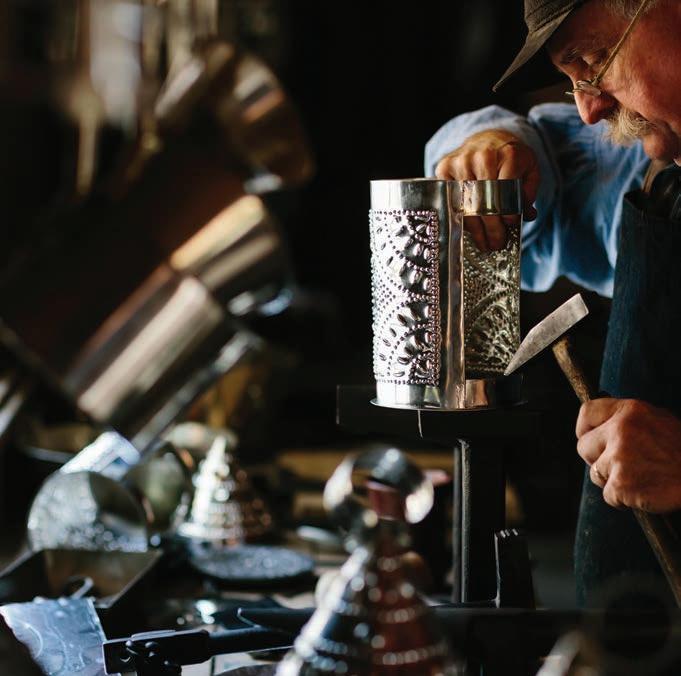

cider doughnuts, as well as apple muffins, turnovers, pies, and more. clydescidermill.com






ELICIT BREWING, Manchester. Elicit is that special brewery that welcomes the entire family. Housed in an 1800s brick mill building, the expansive space includes a beer hall with dozens of brews on tap, several rooms for private parties, and a massive beer garden with firepits out back. And there’s a kitchen counter for ordering light meals and bar foods. Numerous pinball machines and arcade games keep the kids (and adults) busy in this frenetic hall of fun. elicitbrewing.com
HOGAN’S CIDER MILL, Burlington. Tucked between Hartford and the Litchfield Hills, Hogan’s has been pressing for over a century, with a more recent foray into hard ciders. The indoor-outdoor taproom offers a dry, straight-apple product, along with berry blends and an apple sangria made with cherries, oranges, and peaches. Since cider maker and PGA pro Chet Dunlop runs the adjacent New England School of Golf, the cidery makes for an unusual 19th hole. hoganscidermill.com
OEC BREWING, Oxford . The initials stand for “Ordinem Ecentrici Coctores”—in Latin, “Order of Eccentric Cooks.” What’s cooking is an imaginative array of beers and ales, with an accent on sour beers and forays into concoctions made with fruit grown on-site. Then there’s jet-black Phantasma, made with wheat, oats, molasses, and licorice root. The eccentricities don’t extend too far into OEC’s food menu, which leans toward pizza, pretzels, and snacks. wp.oecbrewing.com
THIMBLE ISLAND BREWING COMPANY, Branford . It’s not actually located on Connecticut’s little archipelago, but this prolific brewhouse seems to offer as many brews as there are islands (well, not 365, as some locals claim). This being New England, IPAs abound, but with a nod to West Coast styles; the brewers also offer a Sour Siren series, a line of sour beers enhanced with natural fruit flavors. Hamburgers, flatbreads, sandwiches, and wraps round out a hearty pub menu. thimbleislandbrewery.com
WILLIMANTIC BREWING COMPANY, Willimantic. In a state teeming with just-opened breweries, this downtown establishment is a three-decade-old institution. Taps in a wood-paneled pub housed in the city’s former post office dispense the brewers’ signature Willibrew in an exhaustive range of styles, including unfiltered IPAs, rye ales, powerful barley wines, and coffee stout—plus beers from other American craft breweries. The food menu runs from flatbread pizza to sirloin steak. willimanticbrewingcompany.com
(Continued from p. 87)
in 2009. They’ve been monitoring the impact of these ice storms over years. What dies? What’s resurrected? Do the prayer-bowed trees rise again? What happens to the nitrogen levels in the soil? The data impacts how emergency alerts are issued and when people start getting a heads up. The results have real-world impact, and these kinds of storms, altering, cataclysmic, are on the rise.
and calm than the frantic, hungering, distracted selves we first enter with? Because we see the inside on the outside? Maybe it’s a reason so many fairy tales are set in the forest, enchanted, frightening, altering; it’s where we enter our shared mind.
is turtle shells, is pollywogs, is broth, is a history of cells. Fed by numerous tiny trickling tendrils, the water moves down the long hillside slow in gurgle and trickle and rush, over rock and twig and root and branch, over moss and lichen, picking up information, absorbing what’s there, over mud and sand, down and down to a place where it merges with the Pemigewasset River when the little brook becomes bigger than itself, spreading and widening and getting absorbed into the Pemigewasset, an Abenaki word that means “swift current and where the side current is.”
IT’S EASY TO
THESE threats when walking through the woods, surrounded by the pulse and throb of undeniable vitality. All this life, all this movement, all this light and shadow; how many greens, how many browns, roots tangling below, leaves swaying above, two orange slugs slicking over a soft and rotted stump, two bright red toadstools bulging at its base. Life, everywhere you look.
Rustad and I sit down on a bed of copper needles overlooking the brook. She sets a timer for four minutes and we sit together on the earth in silence. The water speaks, the trees speak, the water and the trees speak in prophecies; they tell us what’s to come and we’re learning how to listen.
Walt Whitman writes of the tree, “It is, yet says nothing.” I disagree with him. The tree says so much. It carries information from below the earth up through the body into the branches and into the leaves into the air into the sky into our lungs and our blood. In its quiet eloquence it brings the news we need, it breathes with us. It is, it is, yes, and it says, it communicates. Maybe one reason we’re so drawn to trees is that they resemble our neurons, which have rooted clusters, slender trunks, and branching spreads. Charged and pulsing, they carry information around the human body. To look into a forest is to see the trees repeating what exists in the wilderness of our minds, our own and actual selves. Is that why being in the woods alters us? Eases our nervous system, makes us more open, alert,
Rustad’s timer sounds. Four minutes goes by quickly. We look at each other and smile gently. When we speak again, we speak more slowly, our voices are quieter, as though coming from a deeper place in us. Rustad speaks of “warm knowing.” There’s the hard data, the figures and measurements, the precision of the tools, the meticulous monitoring, and she’s proud of bringing the forest into the digital era. And there’s what we know in our bodies. We do not enter the woods and exit the same. Even a short loop on a familiar route does something to our brains, which is to say, it does something to our bodies, which is to say, it does something to the deepest places in us and some might call that soul, I don’t know the word, that might be it.
THE TREES AND DIRT AND plants and birds get attention at Hubbard Brook, and so does the water. A big barn holds the Hubbard Brook archives. Rows of shelves are filled with bottles holding water samples from every day the experimental forest has been running. (“Find your birthday,” Rustad says.) There’s so much information. And so many hands required to gather it over all these years, people kneeling on the bank to fill a bottle with water.
As we sit by the brook, it pools in places, held by bowls of rock. Water bugs shift on their suction paws like stars which skim across the night. The water seems swift and smooth, a gentle benevolence. But the power of water moving over earth is hard to overstate. It has strong jaws. It chews through stone. It carves mountains. Like the trees, like the neurons, like blood, it carries with it so much information.
The water moving down the brook is decomposition, is dirt, is tree and root, is light and path, is the rock it caresses, tumbles, shapes, is rush, is lapping,
Blueberry, elderberry, and shadbush grow on its banks. The Pemigewasset shifts and swifts and drifts and joins the Winnipesaukee River in Franklin, New Hampshire, to form the Merrimack River, which curves over 117 miles, through Concord, Manchester, Nashua, through Tyngsborough, Chelmsford, Lowell, through Dracut, Tewksbury, Andover, Methuen, Lawrence, North Andover, and on past the red brick of the old textile mills, through Haverhill, Groveland, West Newbury, Merrimack, and Amesbury, where it reaches its mouth, its spilling wide-open mouth, where what was once the chuckling trickle of a brook is taken up into the Atlantic Ocean.
And from there, from there, the molecules of brook are swished and swallowed into the sea. And at some point a wind comes. Hot air meets cool, water is pulled from the ocean and rises into the air, rises into the sky, gets absorbed with other water molecules on the move, there, above, we can’t see it happening, but we can when a cloud forms, and it drifts over the land, swelling as it moves, shifting in the wind, as it takes up more water, as it absorbs what’s there, what we’ve put there, and it moves through the sky, the tiny bit that came from the brook, combined with so much else, it shifts shape and it moves, casting shadows on the land, passing between the sun and a mountainside on a summer afternoon, and you look up and wonder, Is it going to rain?
To learn more about Hubbard Brook research, go to hubbardbrook.org.
Easy | Our easy-to-use Jitterbug® phones feature large screens, simple menus, powerful speakers and Urgent Response buttons. The Jitterbug® Flip2 has big buttons and one-touch speed dialing while the Jitterbug® Smart3 has voice typing, video chat and internet access.

Helpful | Our specially trained caring team is here for you day or night. Whether you want to learn more about your new phone, need a ride or have a health concern, we’re here to help. And with Urgent Response, enjoy peace of mind knowing you can count on us, even in an emergency.
•
•
•
•
•
To order or learn more, call 1.800.664.3329 or visit lively.com/phones
•
•


A ordable | We o er exible and a ordable plans with unlimited talk, text and 24/7 access to our 100% U.S. based caring team for as low as $19 99 per month. 2 With no long-term contracts or cancellation fees, you can switch plans anytime. Buy in-store or online at:
125% o of device applies to regular price of $99 99 for the Jitterbug Flip2 and $149 99 for the Jitterbug Smart3. O er valid through 9/30/23 at Rite Aid, 9/23/23 at Walgreens and 10/1/23 at Best Buy and Amazon. 2$5/mo. discount when you enroll in paperless billing. Full price $24 99 /mo., plus taxes and fees. Monthly fees do not include government taxes or fees and are subject to change. A data plan is required for the Jitterbug Smart. Plans and services may require purchase of a Lively device and a one-time activation fee of $35. Pricing may vary. For details on current pricing, visit lively.com. Not all Lively services are available on all plans. See plans for details. See lively.com/link for details. Ask Lively, Urgent Response and Nurse On-Call are available 24/7. Customer Service available during normal business hours. Urgent Response or 911 calls can be made only when cellular service is available. Urgent Response tracks an approx. location of device when device is turned on and connected to the network. Lively does not guarantee an exact location. Lively is not a healthcare provider. Nurse On-Call is not a substitute for dialing 911. Emergencies will be transferred to a 911 call center, or members may be directed to call 911. See terms for details. Consistently rated among top wireless providers as fast and reliable by IHS RootScore Reports. Lively Rides provides a service through which you can request a ride to be arranged through the Lyft Platform. Ride fares are applied to your monthly Lively bill. Screen images simulated. Appearance of device may vary. Lively and Jitterbug are trademarks of Best Buy Health, Inc. ©2023 Best Buy. All rights reserved.
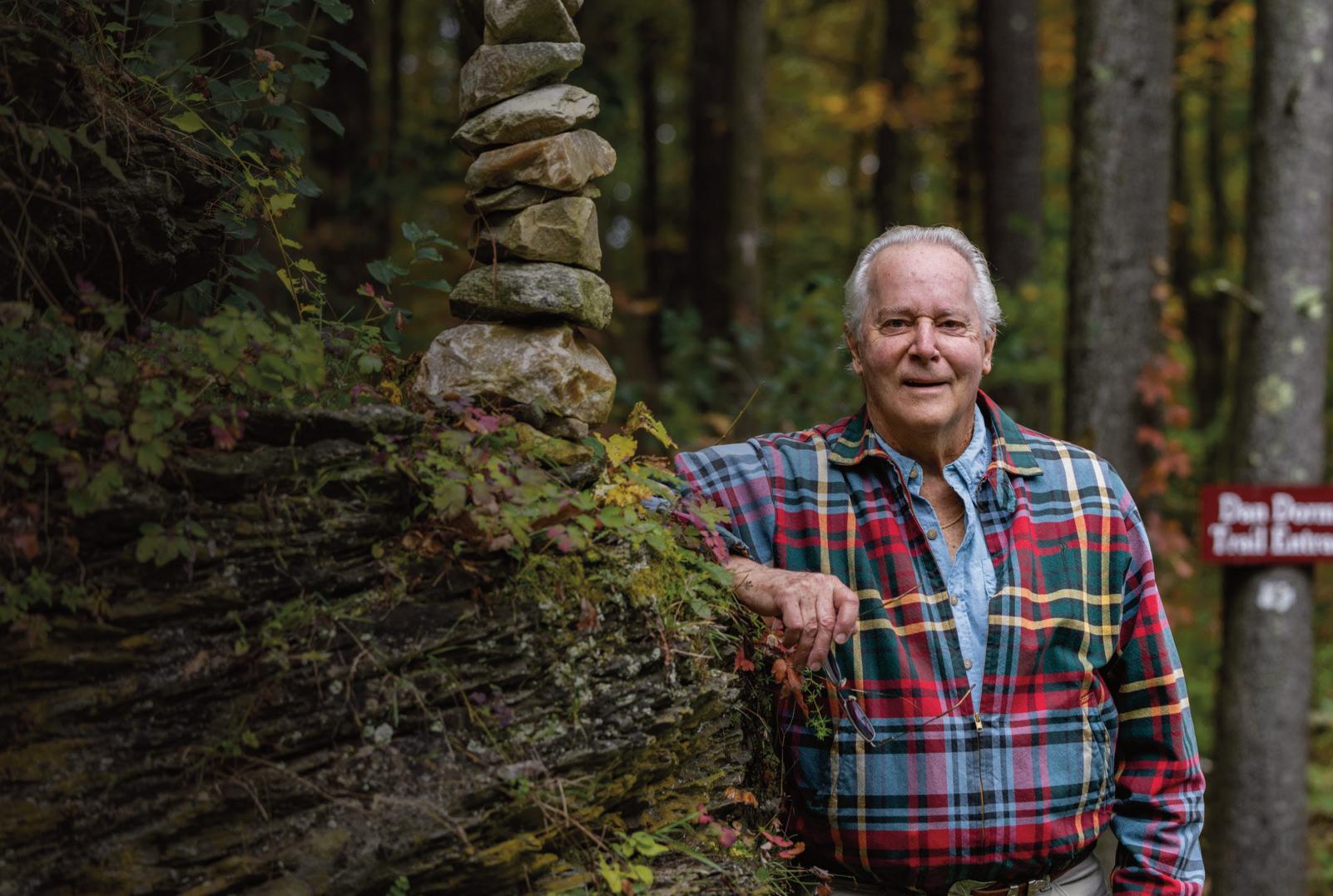
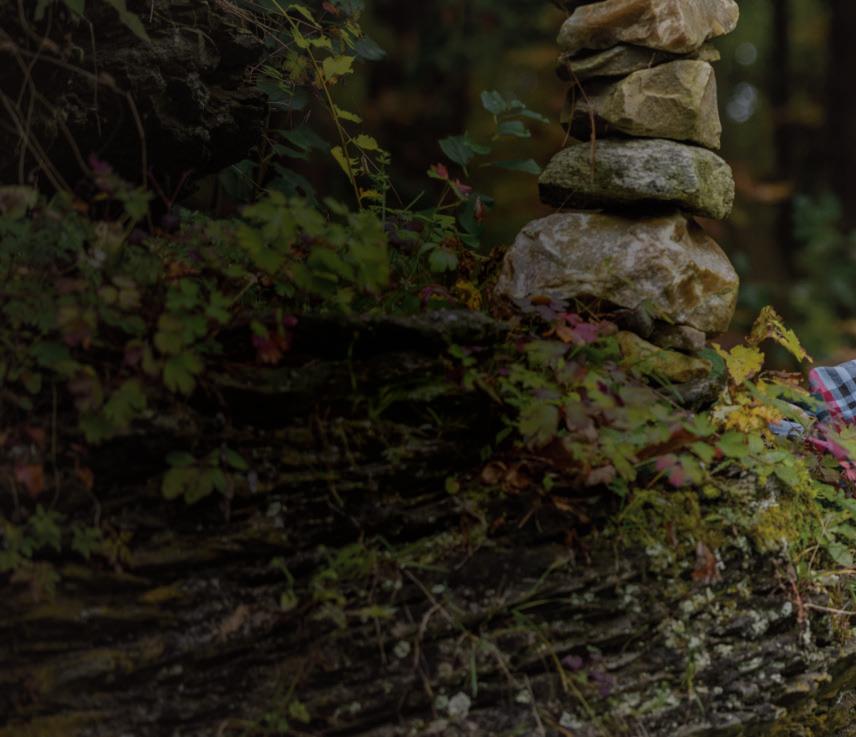
















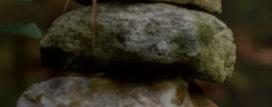





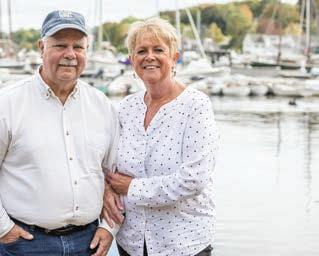



(Continued from p. 91)
who is familiar with rocks, would likely think it was just a type of rock that he’d never seen before…. And if the cave man throws away the cellphone, that will be the end of it…. But it could also be the beginning of a learning experience. The caveman may press a button and record his voice and then press another button and record his image. And then it would be clear that the cellphone is not a rock. We need to press the buttons on objects like ‘Oumuamua.”
As Loeb leaves the stage, the lights dim and the audience settles in for the story of Roy Neary, played by Richard Dreyfuss, an Indiana lineman who becomes obsessed after a close encounter with a UFO. Unlike the aliens in many popular “invasion” movies of earlier decades, these otherworldly beings aren’t coming to conquer. At its core, director Steven Spielberg’s story is one of curiosity, wonder, and the perhaps intergalactic desire for meaning and connection.
Close Encounters of the Third Kind is fiction, but it draws on multiple stories from people who are certain they, too, know what it is like to have been part of the mystery—including famous close encounters that happened right here in New England.
THE HISTORY OF UFOS IN NEW England skies is a storied one. The earliest documented sighting in the “New World” was recorded in the diary of John Winthrop, governor of the Massachusetts Bay Colony. In March 1639, he reported that “James Everell, a sober, discreet man, and two others saw a great light in the night at Muddy River. When it stood still, it flamed up, and was about three yards square; when it ran, it was contracted into the figure of a swine: it ran as swift as an arrow … up and down about two or three hours.” In the centuries that followed, UFO sightings and stories have flowed in a seemingly unending stream through New England.
New Hampshire’s “Exeter Incident” (1965) gained credibility because
two police officers were among the witnesses. Connecticut’s “Newtown Lights” (1987) were seen by hundreds of people. The claimed 1961 abduction of Betty and Barney Hill in the White Mountains became perhaps the region’s most famous UFO story, establishing tropes that have become staples of popular culture. There were many more sightings, with varying degrees of credibility, but all share one key similarity: an utter lack of tangible evidence.
“That’s part of the intrigue,” Mainebased UFO investigator Fred Richards, aka “UFO Fred,” tells me. “We can get proof that there was a light in the sky. And the way the human brain works, it’s not even entirely proof that there was a light in the sky.… Some people [who have had a sighting] want me to tell them it was an alien. Only the aliens can tell you that. Nobody on this planet can tell you for sure.”
For conspiracy-minded believers, this consistent lack of evidence seemed proof that it was being suppressed. Decades of reported sightings left many convinced that the government knew more than it was sharing. In 2017, fuel was added to the fire when a New York Times report revealed that the U.S. Department of Defense had secretly investigated incidents through its
Advanced Aerospace Threat Identification Program. Three years later, seemingly acquiescing to public demand, the U.S. Senate Select Committee on Intelligence called for a detailed analysis of UFO encounters and their national security implications. As compiled by a panel of military and intelligence officials, the resulting report (despite some tantalizing media speculation) didn’t reveal secret warehouses of confiscated alien airships. What it did do, though, was officially establish that strange phenomena and objects have been seen, and that many remain inexplicable even after thorough investigation.
In 2022, Congress held an official UFO hearing. Among those who testified was New Hampshire resident Ryan Graves, a former Navy fighter pilot who made public his own sightings; he would go on to help launch Americans for Safe Aerospace, a nonprofit to support pilots who have seen unidentified aerial phenomena and to advocate for more transparent investigations (Avi Loeb serves on the advisory board). Speaking to the press after his testimony, Graves highlighted the dangers that unidentified objects pose to pilots, arguing they should be treated like “a foreign adversary.” He added, “We have a mystery to solve.”
Welles’s 1938 radio broadcast of “The War of the Worlds” that caused nationwide panic, to the spate of “little green men” from “outer space” that could be seen on movie screens throughout the 1950s—nearly always as threatening invaders—our fascination with the possibility that we are not alone has always come tinged with dread. I have that in mind when I pull into the nearly empty parking lot of Indian Head Resort just off Route 3 in Lincoln, New Hampshire. It is late March, the sun low in the sky. I walk through a light covering of snow to the road, where a large green New Hampshire Historical Highway Marker reads:
Betty and Barney Hill Incident: On the night of September 19-20, 1961, Portsmouth, NH, couple Betty and Barney Hill experienced a close encounter with an unidentified flying object and two hours
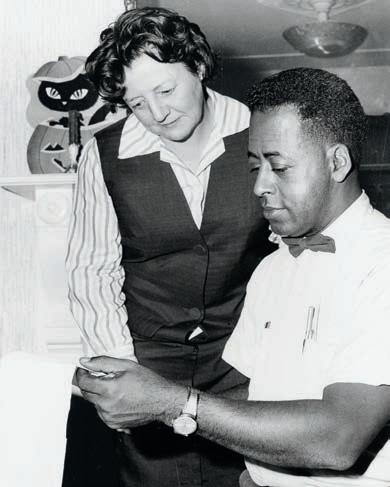
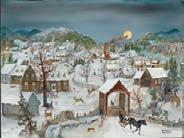


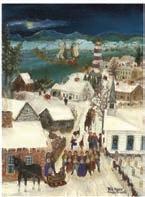
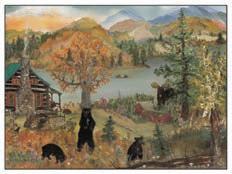


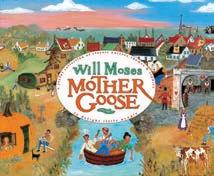
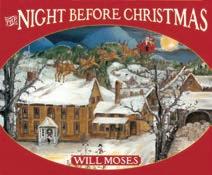
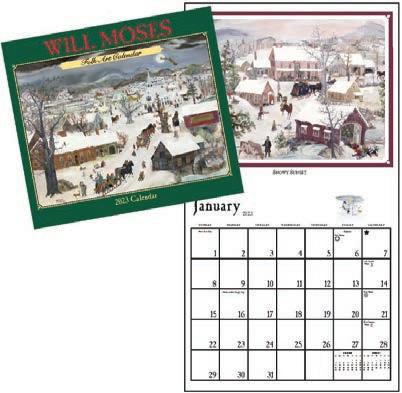


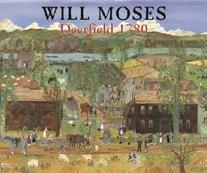


of “lost” time while driving south on Rte. 3 near Lincoln. They filed an official Air Force Project Blue Book report of a brightly lit, cigar-shaped craft the next day, but were not public with their story until it was leaked in the Boston Traveler in 1965. This was the first widely reported UFO abduction report in the United States.
As a boy I had read The Interrupted Journey, John G. Fuller’s best-selling book about the Hill incident. While the story fascinated me, I never really believed it, even as a kid. I still don’t. But in light of all the recent discoveries and reports, my curiosity has been rejuvenated.

In the resort’s gift shop I find a collection of inflatable alien heads and UFO coasters and warning signs that this is an “Alien Abduction Zone.” I grab a coffee mug with an image of the highway marker on one side and the Indian Head formation on the other, along with a copy of Captured! The Betty and Barney Hill UFO Experience , cowritten by Kathleen Marden, Betty’s niece. Halfway to the cash register, I turn back and grab a “Betty and Barney Hill UFO Experience” T-shirt, too.
The cashier smiles and asks if I’ve seen anything yet, then promises, “Spend enough time out here and you will.” Ringing up the book, he adds, “The author’s real nice. She stops by sometimes.” After sitting in my car and reading until dark, I trace the route that the Hills traveled during their encounter. But whatever insight I thought I might gain remains elusive, and I drive home with my kitschy souvenirs.
A few weeks later I dig deeper, when I visit the University of New Hampshire in Durham. Large windows brighten the Milne Special Collections room of UNH’s Dimond Library. “This is one of our most popular collections,” a librarian says. My visit was expected, so a stack of gray archival boxes and a pair of white cotton gloves await at one of the room’s long tables. Not sure of what I’m hoping to find, I grab an archival box and dig in.
When the Hills’ story became public, they came across as honest, dependable citizens with little to gain from concocting a fable. Barney Hill died in 1969; Betty lived until 2004, becom-
ing a mainstay of the UFO scene. The collection includes mundane reminders that the Hills were ordinary people who believed they had experienced something not of this world: family genealogies, certificates of birth, and marriage, and death; Barney’s discharge papers from the Army; a scrapbook of his work with the NAACP. In one early photo, Betty wears the dress that she’d be wearing the night of the UFO incident. The dress itself is also part of the collection, minus a few samples snipped for lab analysis.
A flimsy piece of paper shows a drawing Barney made of the UFO. There are transcripts and recordings of interviews and a mountain of newspaper and magazine accounts, along with documentation of the Hills’ many TV appearances, on such shows as Good Morning America and The Phil Donahue Show. There are letters from fellow
UFO celebrities including Whitley Strieber, J. Allen Hynek, and Ray Fowler, who would become known for his books about another alleged New England abductee, Betty Andreasson, who was certain that on a winter night in 1967 she had been examined by aliens at her home in South Ashburnham, Massachusetts.
Reading the transcribed recordings of the Hills under hypnosis, I find it impossible to believe that they’re lying. But that doesn’t mean that their story is true. In the decades since the Hills’ sessions with the respected Boston psychiatrist Benjamin Simon, the reliability of memories recovered through hypnosis has been largely discredited. Under hypnosis, individuals may generate false memories or inadvertently incorporate information from external sources into their recollections.
“Reality is what we take to be true,” physicist David Bohm once said. He added, “What we take to be true is what we believe.… What we believe determines what we take to be true. What we take to be true is our reality.” Bohm could have been describing not only Betty and Barney Hill, but also the universe of UFO adherents as well as disbelievers. For once we’ve settled on a truth, it becomes the easiest thing in the world to see any information that doesn’t align with it as untrue.
ON A RAINY SATURDAY MORNING the day before Halloween, I’m standing in a long line outside a hotel in downtown Waterbury, Connecticut. We are getting soaked while waiting for an event dubbed “The Warren’s Seekers of the Supernatural ParaCon,” which has clearly underestimated its own popularity. The venue, we are told, is so full that we have to wait for folks to come out before anyone else enters.
The event is named for Ed and Lorraine Warren, a Connecticut couple who founded the New England Society for Psychic Research in 1952, and who claimed to have investigated more than 10,000 cases during their career. The popular film The Conjuring and its sequels are based on some of their best-known cases. I’m here to meet the Maine researcher I spoke with on the
“Not only are we not in the center of the universe, as people thought thousands of years ago, but our backyard is not even unusual. We are not privileged in any way.”
phone, Fred Richards, who is among a lineup of presenters that—judging by the buzz whenever one of them passes by—represent superstars of this realm.
Finally inside, I slosh my way around the vendor hall, where colorful banners promote podcasts and web shows and where everything from personal seances to holy water is for sale, along with piles of books and DVDs (each seeming chock-full of “Previously Unseen Footage!!!”).
Richards lives in southern Maine. He has a good job, which for reasons related to his unusual side hustle he prefers not to talk about. In his offhours, he serves as the Maine state director for the Mutual UFO Network, or MUFON, one of the world’s oldest and largest UFO investigation groups. Here, he doesn’t come across as someone who seeks attention. Closecropped hair, well-trimmed beard, glasses. Tidy. Professional.
“I’m not real popular with some people in the community because I’m not a hard-core believer,” he tells me. “If you go in wanting a particular answer, it becomes far more likely that’s what you’re gonna find.”
Richards says he was about 10 when he had his first UFO sighting. “I woke up in the middle of the night. I looked out the window, and I saw a craft coming over the trees. It was low. It was all lit up. I watched it fly over the house. I ran to the next window and I saw it just go slowly over the woods.”
He didn’t talk about it much then, but he never stopped thinking about it. So when he discovered Art Bell’s late-night radio show, “Coast to Coast AM,” and heard people talking about experiences like his own, he was hooked. “I looked forward to it every night. I don’t know how much sleep I lost,” he laughs. “And that was where I first heard of MUFON.”
When a sighting in the state of Maine is reported on the MUFON website, the information gets forwarded to Richards, who may look into it himself, or assign it to another investigator. “What I typically do is I’ll go and collect all the hard data first,” he says. “I look at hard research—what was in the sky that night, what was the weather. I look at where the satellites and the International Space Station are. Have you seen the ISS at night? That gets reported a lot.
“Sometimes there’s an explanation for what you saw that is fascinating in its own right. The SpaceX Dragon just went up—I guarantee that gets reported. No, what you saw wasn’t an alien spacecraft, but what a cool thing to have seen. It’s a different mystery every time.
“When we get to a point that we have a concrete answer,” he continues, “maybe it becomes more serious then. But in the meantime, we can have fun, speculating and guessing and trying to figure it all out. That’s what keeps me here. I want to know the answer.”
Months later, I’m still in search
of answers when I visit Exeter, New Hampshire, where the annual UFO Festival, a popular fundraiser for the local Kiwanis Club, has returned following a pandemic hiatus. The “Exeter Incident” is New Hampshire’s other famous alien encounter, and like the Betty and Barney Hill story, it also served as the basis for a popular book by John G. Fuller in the 1960s. Today, the town is bustling—and replete with inflatable green aliens—but the epicenter is the area right in front of the red brick town hall, where the Kiwanis are selling T-shirts, hats, and posters. There are food tables, face painters, a costume contest, and even a UFO “crash debris site” for kids to play in.
Throughout the weekend, a trolley takes visitors to a scenic farmhouse that’s actually just over the Exeter town line, in Kensington. It was here, on the night of September 3, 1965, that local teenager Norman Muscarello, walking home from his girlfriend’s house, spotted a large, brilliantly illuminated object that passed so low it scared him to the point that he ended up face down in a roadside ditch. When he eventually arrived in Exeter, he told the police, and officer Eugene Bertrand Jr. was dispatched to investigate. He, too, saw the object, which he described as a red light with a pulsating white top. Officer David Hunt was next to arrive, and he witnessed it as well.
But where they may have all seen something, we just look out to the road
Four decades after the Betty and Barney Hill story put New Hampshire at the forefront of UFO lore, another Granite State resident’s account of a close encounter received national attention. In 2017, a Congressional hearing on UFOs featured an incident involving Navy pilot David Fravor of Windham, New Hampshire, who had been training with other pilots off the San Diego coast in November 2004 in an area where a Navy cruiser had reported strange sightings on its radar.
Picking up the story in an interview with podcast host Lex Fridman in 2020, Fravor said that it was “a clear day … no clouds” when he spotted a smooth white object, 40 feet long and shaped like a giant Tic Tac candy, hovering about 50 feet above the ocean and moving abruptly to the left and right. As Fravor and his copilot descended from about 20,000 feet, the object climbed toward them. “It obviously knows that we’re there, whatever this thing is,” he said. “It’s coming up and I’m coming down, and I’m just watching it.… This whole thing [lasts], like, five minutes. It’s not like we saw it and then it was gone.… On a crystal-clear day, four trained observers watched this thing fly around.” Fravor’s jet was about half a mile away when the object abruptly accelerated and disappeared. “In less than a half second, it just goes poof—it is gone.” Fravor’s encounter was not recorded, but the “Tic Tac” object was captured by another jet’s infrared camera when it soon reappeared. And while the video is grainy, it shows something was in the air that day.
After the 2017 hearing, Fravor told ABC News, “I can tell you I think it was not from this world…. After 18 years of flying, I’ve seen pretty much about everything that I can see in that realm, and this was nothing close.”


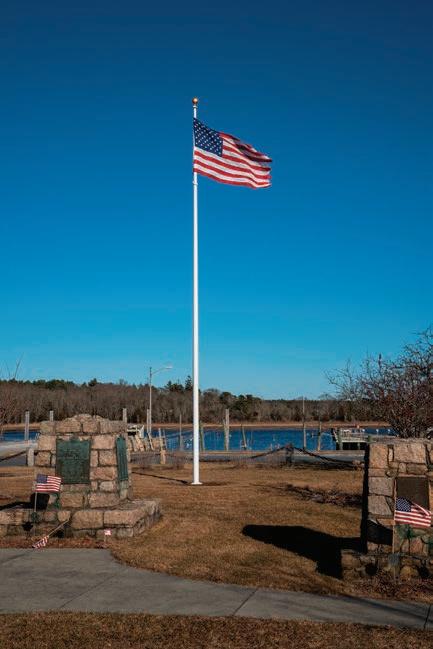
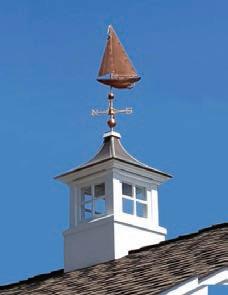
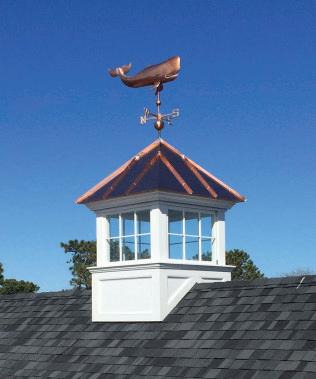
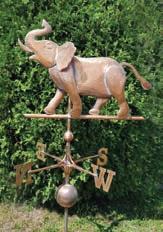





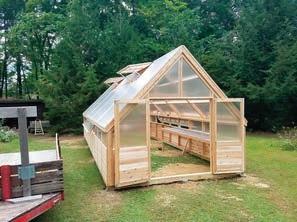







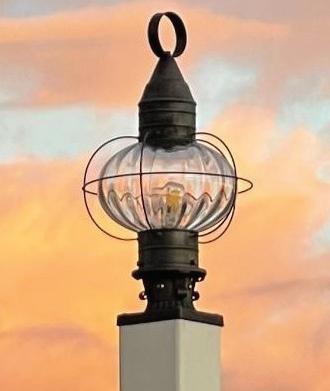
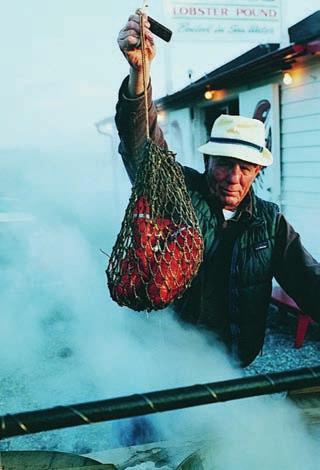
EnergAire continuously puri es up to 4,000 cubic feet (a large room) of air and makes it breathable and invigorating. Restores natural ion balance to unhealthy environments caused by industrial pollution, automobile exhaust, central airconditioning, and heating, smoke, dust, pollen, animal fur. . . removes microscopic pollution particles not removed by any other method of air puri cation. EnergAire was rated Number One for speed of removal of cigarette smoke by the leading U.S. consumer protection magazine. It has no noisy fan, no costly lter, and requires no maintenance. Uses less than 2 watts. 9" high. 3" diameter. Weighs less than 1 pound. $69.95
Issue:
Issue:_________________________
August 2013
RODAR is the super-powerful professional ultrasonic pest repeller with up to 60 or more times the power of other devices — and power is what makes RODAR so e ective. RODAR ultrasound equals a jet engine — noise unbearable to pests but at frequencies humans and pets cannot hear. RODAR units are completely safe. RODAR drives pests out and keeps them from getting in. Handsome simulated walnut cabinet 5-5/8" high. Weight 1-1/2 pounds. Uses less than 5 watts. $99.95

CHANDELIERS • SCONCES
Available in:


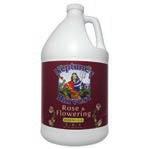


SOLID COPPER or SOLID BRASS
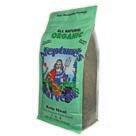



17 Jan Sebastian Dr., Unit #1, Sandwich, MA 02563 508-833-0515





proof carefully. Approval must be returned by _______________________ responsible for errors once proof has been signed— or if not returned by the above date. that color proof/pdf is to show color break only. Colors do not accurately actual printed advertisement as it will appear in the publication.
90-day money-back guarantee — 12-month warranty.To order: Send cost for unit(s) plus $10.00 each for shipping and handling (in Mass. add 6.25% tax) by check, money order, MasterCard, Visa, or Discover number and expiration date to Micron Corp. Call
www.sandwichlantern.com


mark them clearly.________________________________________________________ ________________________________________________________ Date
Issue:

Issue:_________________________


new proof necessary) Signature: _________________________________________________ needed. (send new proof) Signature: ______________________________________________


August 2013
508.771.6549 I

proof carefully. Approval must be returned by for errors once proof has been signed— or if not returned by the above date. color proof/pdf is to show color break only. Colors do not accurately actual printed advertisement as it will appear in the publication.
mark them clearly.________________________________________________________ ________________________________________________________
MEDIA GROUP



proof necessary) Signature: _________________________________________________ needed. (send new proof) Signature: ______________________________________________

















and meadow. The trolley doesn’t linger. Within minutes we are headed back, to be switched out for a fresh batch.
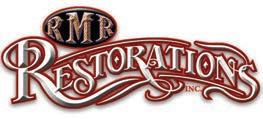
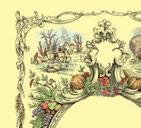
I dip in and out of speaker presentations, and in and out of conversations, for the rest of the afternoon. And somewhere along the line I realize that everyone I talked to is doing the same thing. They all believe that we must share the universe with other intelligent life, and are filling in the gaps as best they can, often with anecdotal evidence from their own experience or from those who share similar beliefs. Even Avi Loeb isn’t so different. The big difference with Loeb, of course, is that he has resources and access few others can muster.
AVI LOEB’S GRAY SHINGLED HOUSE





i s in Lexington, Massachusetts, within walking distance of the town green. A screened porch stretches across the front of the home. Loeb lives here with his wife, Ofrit, and two daughters. He offers fruit and drinks on the table between us. Our soundtrack is one of chirping birds and occasional planes overhead.
Loeb has written that scientific inquiry, over the years, has often been stifled “because the gatekeepers who established and enforced orthodoxy believed they knew all the answers ahead of time. To state the obvious, putting Galileo under house arrest did not change the fact that the earth moves around the sun.”

Loeb’s tenured position at Harvard, he says, gives him freedom from peer pressure and groupthink. “If you go to the beach, the sand that you see is basically sea shells that used to be very different from each other…. A shell gets swept ashore, where waves rub it against other shells, and break it into indistinguishable pieces. In much the same way, when humans interact with each other, they become indistinguishable. And I don’t want that. Science gives me the privilege of maintaining my childhood curiosity, of keeping my seashell from being broken by friction with other people.”

Loeb aims to answer the government’s call for better data with the Galileo Project, a privately funded effort to


conduct a systematic survey of Earth’s immediate surroundings via a network of telescopic cameras placed on rooftops around the world. The project will analyze and hopefully photograph unidentified aerial phenomena and search for evidence of extraterrestrial technology. “I established the Galileo Project to examine two things,” he says. “One of those is unidentified aerial phenomena. And the second is objects like ‘Oumuamua that enter the solar system. They may very much be the same thing; they may be related.”
The Galileo Project’s data will be shared publicly, and collaborators are welcome. “It’s like a fishing expedition where you don’t know what kind of fish you will find,” he says. “Even if we don’t find anything, if we bring in only sardines, objects with mundane explanations, so be it. Whatever we find we will report. The data will be open. The analysis will be transparent.”

It is the breadth of those fishing nets, though, that worries some in the science community. In assembling his team, Loeb has chosen not just top scientists, but also non-scientist UFO believers, including Jacques Vallée, the model for the chief UFO researcher in Close Encounters of the Third Kind. Loeb dismisses critics’ concerns, promising an agnostic collection of data and analysis. His interest, he says, is not in what certain believers or skeptics have said in the past, but in what they see through these new telescopic cameras.
“I called it the Galileo Project because when the philosophers rejected Galileo’s claim that maybe the earth moves around the sun, they didn’t just put him under house arrest. They also said, ‘We don’t want to look through your telescope.’ They were unwilling to reconsider their position based on evidence.”
And as wonderful as it is to think of ourselves as the descendants of Galileo, we must also remember that we descend, too, from those who refused to look through his telescope. “Reality does not care whether we ignore it or not,” Loeb reminds me. “The existence—or nonexistence—of our neighbors is not altered if we refuse to open the curtains. So why not look?”

arly in the morning, with a touch of frost in the air and the leaves of the maples barely starting to turn, I ride my bike past the farm that sits on a brief plateau midway up a steep hill a few miles west of our home. It is sunny, and the sunshine—coupled with the steady exertion of my pedaling—makes the chill of the air bearable. Almost welcome, even. I love a lot of farms, but I love this one especially. I love the complicated angles of its roof, and how the milk house door is slightly askew in its frame and therefore always open an inviting inch or two. I love how there’s always a pile of children’s bicycles just outside the door, and I love the sign that reads “Ford Country,” an unassuming homage to the two big blue tractors parked alongside the bike pile. Or maybe it’s not the sign itself that I love, but rather the simple fact that someone hung it. Just past the barn, the road kicks up again, a final steep
pitch before leveling out, and I stand out of the saddle to coax the last bits of power from my legs. At the top of the hill, there’s an old farmhouse on my right: big, white, peeling paint, sagging porch. There are two cars, one truck, and a motorcycle parked in the driveway, and the nose of a tractor peeking from around back. It’s red, not blue, so I must have crossed the border of Ford Country. One of the cars is an ’80s-era Chevy IROC-Z, while the other is a ’90s-era Cadillac (I’m not sure which model specifically, because unlike the IROC-Z, I never pined over a Caddy in my youth) and the truck is a Ford F-150 of similar vintage. I can’t tell much about the motorcycle, but I can see that its seat has been removed to grant access to the battery, and that the battery of the bike is connected to the battery of the truck by a pair of jumper cables.
I have no idea how many times I’ve ridden past this house
over the years, but this is one of my favorite routes, so I’m confident it’s no fewer than 100. And in all those times, I’ve never seen a human being. If it weren’t for the mowed lawn, the changing placement of the vehicles, and the appearance (and subsequent disappearance) of piled firewood, I might have assumed it abandoned.
But on this morning, there is someone outside. A boy. He’s 8, maybe 9. He’s standing at the edge of the driveway, right where it meets the road, in front of the motorcycle with its seat off that’s attached to the jumper cables. Like an umbilical cord. As I approach, he speaks. “I have a scooter,” is what he says. I pause my pedaling and coast a lazy circle in the road. “Oh yeah?” I reply. And then, because this seems an inadequate response to his overture: “Where do you ride it?” He points down the hill, toward the barn with the complicated roof angles and the slanting milk house door and the pile of bikes. “To the farm,” he replies, before adding, almost without skipping a beat, “I’m going to school.”









I’m unsure of what else to say, and I’ve already ridden two lazy circles in the road, and besides I’ve still got eight miles to ride with a very full day awaiting at the other end. So I give him a little wave and wish him a good day. He says nothing more but gives me a little wave in return, and soon I’m far enough up the road that even if I looked back (and I’m tempted to), I know he’d be out of sight.
Out of sight, perhaps, but not out of mind, because for the remainder of my ride—for the remainder of my day, truthfully, and even now, again—I think about the boy who lives in the old farmhouse with the old cars, and who rides his scooter down to the barn to ... what? Do chores, presumably, though maybe just because it’s where the road flattens at the bottom of that final pitch, and therefore offers a convenient place to turn around.
And now I remember how when I was that boy’s age or thereabouts, my friend Trevor and I would push the rolling chassis of an old motorcycle up the hill from his house to mine, then climb on and ride down, faster and faster, and maybe the brakes worked and maybe they didn’t, but we never got hurt and I guess that’s mostly what matters. And I remember how when we lived next to Melvin’s farm, back when Melvin was still farming and we still lived there, my sons would hop on their bikes in the late afternoon and ride out across the grazed plain of pasture to drive the cows down to the barn for evening milking. I remember Penny and me watching from the height of our land, knowing even then that we wouldn’t forget.
And I think about what the world has to offer a boy like this, coming of age on the top of a hill along a back








road in northern Vermont, in a house that looks like hardship, though of course I can’t really know, and besides there are many flavors of hardship, some of which may be exactly the flavors a person needs to thrive. There seems much in common with how my sons grew up, and it’s true that I don’t often worry anymore about what the world can offer them (though it’s also true that maybe I should). Yet even in the intervening decade, so much has changed, and I try to imagine how any of those changes might benefit this boy and others like him. But I cannot.
The next morning I ride the loop again, and although I pass the boy’s house within minutes of the same time, he’s not there. I pedal on, and soon I’m passing under a canopy of maples, and it’s hard to tell for certain, but I’m pretty sure the leaves have just a little more color than the day before.
Lucky for Massachusetts schoolkids, their state is field-trip heaven: From touching dinosaur tracks to seeing century-old industrial looms in action to reenacting the Boston Tea Party, the Bay State offers a world of experiences where history and culture jump off the textbook page and into the imagination. And it’s not just students who are spellbound, but also visitors of all ages who discover that in Massachusetts, the learning never stops and never stops being fun.
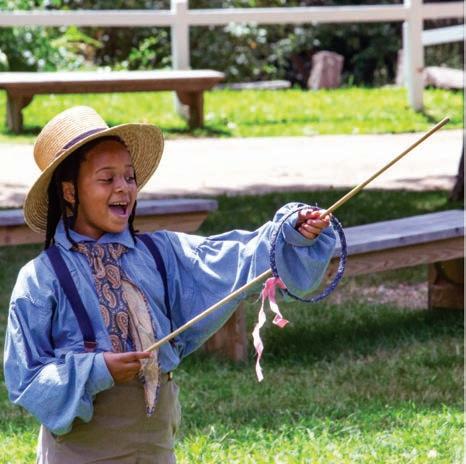
CREATURE FEATURES: Get a glimpse into prehistory at Holyoke’s Dinosaur Footprints, a Trustees of Reservations property studded with fossilized tracks left by some of the earliest known dinosaurs. At nearby Amherst College, the Beneski Museum of Natural History boasts the world’s largest collection of dinosaur prints, along with other awe-inspiring fossils that stop visitors in their own tracks.
A more modern but equally famous animal inspired the Massachusetts Whale Trail, a collection of nearly 40 maritime museums and other attractions that include Nantucket’s Whaling Museum, Maritime Gloucester, and the New Bedford Whaling Museum, home to a rare 66-foot blue whale skeleton.
HERITAGE HIKES: Speaking of trails, Massachusetts is threaded with routes that help tell stories that for too long went untold. While Boston’s Black Heritage Trail, with its connection to the Museum of African American History, may be the best-known of these, trails celebrating Black history can be found everywhere from Martha’s Vineyard and Nantucket to the Berkshires, where W.E.B. Du Bois’s boyhood home in Great Barrington is among the key stops on the Upper Housatonic Valley African American Heritage Trail. Also in Western Massachusetts,
the African American Heritage Trail in Florence highlights an abolitionist legacy anchored by the enduring influence of Sojourner Truth, a former resident. And in New Bedford, sites on the city’s Black History Trail pay homage to figures as diverse as Cape Verdean mariners, Frederick Douglass, and the 54th Massachusetts Infantry Regiment.
CULTURAL CROSSROADS: History buffs have long been drawn to Massachusetts as the site of the Pilgrims’ landing in 1620, a watershed moment that’s explored at Plimoth Patuxet Museums and Pilgrim Hall Museum in Plymouth, and the Provincetown Museum. But theirs is not a one-sided tale, as the exhibits and presentations on Indigenous peoples make clear. A deeper dive into the history of the continent’s original residents from local Wampanoag and Mohican to tribes across the continent awaits at places such as the Mashpee Wampanoag Museum and, on Martha’s Vineyard, the Aquinnah Cultural Center; the Hall of the North American Indian at Harvard University’s Peabody Museum; the Berkshires’ Native American Heritage Trail; and The Trustees’ Fruitlands Museum in Harvard, whose Native American Gallery is slated to reopen late next spring
after an extensive reinterpretation and reorganizing of the collection.
Explore the history of the Salem Witch Trials era, when nearly 200 innocent people were accused of practicing witchcraft, at the Salem Witch Museum and see artifacts from the trials at the Peabody Essex Museum in Salem. Moving ahead in Massachusetts history, you’ll find another set of stories to compare and contrast in farm life and factory towns. At the largest living history museum in New England, Old Sturbridge Village, visitors can wander a re-created 19th-century rural community where fields are plowed with oxen and butter is churned by hand. Then they can discover the flip side of that era, the Industrial Revolution, by heading to sites such as Lowell National Historical Park in Lowell, whose mills were once a hub of textile production; the Charles River Museum of Industry & Innovation in Waltham; Haverhill’s Museum of Printing; and the Wood Museum of Springfield History, part of the Springfield Museums.
FOUNDING SPIRIT: In less than three years the U.S. will celebrate a milestone birthday, marking 250 years since the signing of the Declaration of Independence. Get into the spirit now at Revolutionary War sites like Boston’s Freedom Trail and Lexington and Concord’s Minute Man National Historical Park, as well as Adams National Historical Park in Quincy, honoring founding father John Adams and his son, John Quincy Adams, both of whom served as president. But on December 16, the place to be is Boston Harbor, where the Boston Tea Party Ships & Museum will kick off the semiquincentennial party with a large-scale reenactment of the most important event leading up to the American Revolution, as the Boston Tea Party turns 250 years old this year.

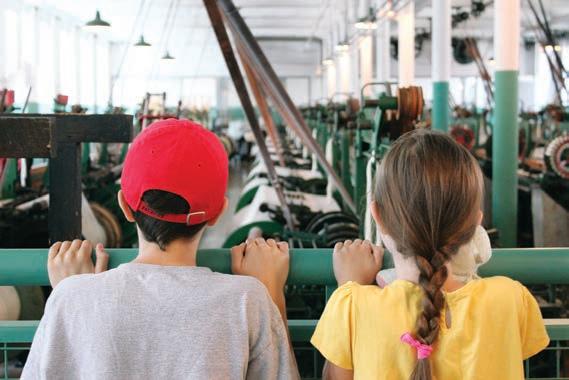
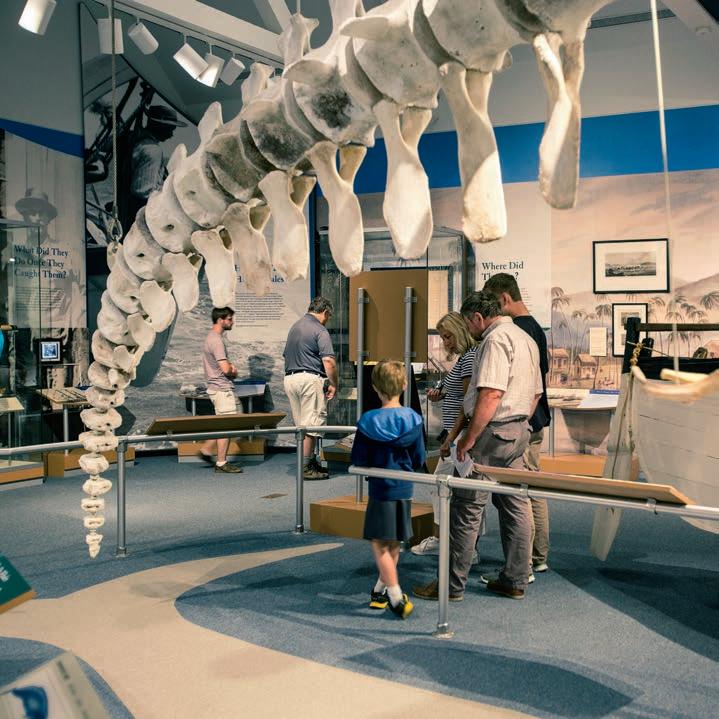
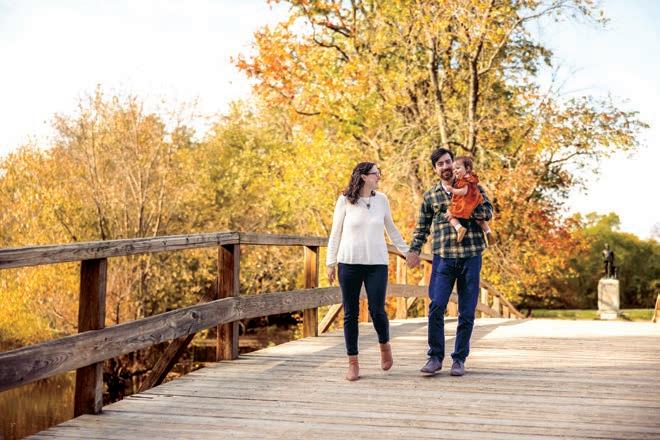 Boott Cotton Mills Museum, Lowell National Historical Park
Boston Tea Party Ships & Museum
Old North Bridge, Minute Man National Historical Park
New Bedford Whaling Museum
Boott Cotton Mills Museum, Lowell National Historical Park
Boston Tea Party Ships & Museum
Old North Bridge, Minute Man National Historical Park
New Bedford Whaling Museum
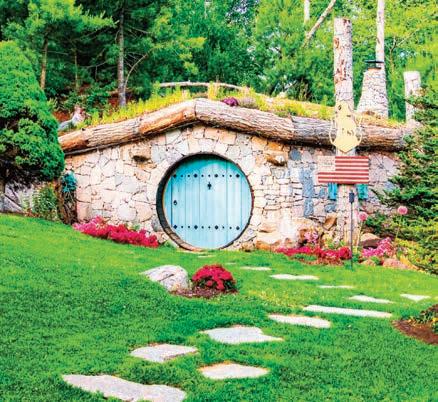
of 3,500 acres in the heart of Rhode Island, lies the most amenity rich, four-season private sporting club and resort on the East Coast. Located in Richmond, Rhode Island, The Preserve Sporting Club & Residences offers activities for guests of all ages.



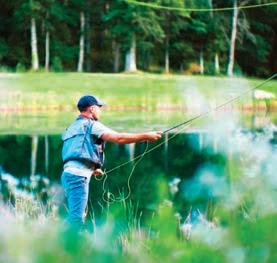


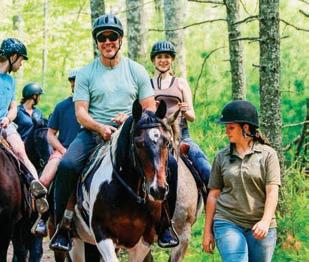
At The Preserve, you can enjoy more than 20 luxurious amenities such as the OH! Spa, The Preserve Equestrian Training Stables, The Maker’s Mark Hobbit HouseTM, The Safari Tent Scotch and Cigar Experience, the world’s longest indoor range, hiking, tennis, golf, ziplining, fishing and more. The Preserve seamlessly infuses outdoor adventure, wellness and New England hospitality into every experience. Whether you seek the thrilling or the serene, The Preserve Sporting Club & Residences offers a combination of unspoiled nature and refined luxury for everyone.
